- Best Colleges
- Application Advice

- Hidden Gem Colleges

The 10 Best Creative Writing MFA Programs in the US
The talent is there.
But the next generation of great American writers needs a collegial place to hone their craft.
They need a place to explore the writer’s role in a wider community.
They really need guidance about how and when to publish.
All these things can be found in a solid Master of Fine Arts in Creative Writing degree program. This degree offers access to mentors, to colleagues, and to a future in the writing world.
A good MFA program gives new writers a precious few years to focus completely on their work, an ideal space away from the noise and pressure of the fast-paced modern world.
We’ve found ten of the best ones, all of which provide the support, the creative stimulation, and the tranquility necessary to foster a mature writer.
We looked at graduate departments from all regions, public and private, all sizes, searching for the ten most inspiring Creative Writing MFA programs.
Each of these ten institutions has assembled stellar faculties, developed student-focused paths of study, and provide robust support for writers accepted into their degree programs.
To be considered for inclusion in this list, these MFA programs all must be fully-funded degrees, as recognized by Read The Workshop .
Creative Writing education has broadened and expanded over recent years, and no single method or plan fits for all students.
Today, MFA programs across the country give budding short story writers and poets a variety of options for study. For future novelists, screenwriters – even viral bloggers – the search for the perfect setting for their next phase of development starts with these outstanding institutions, all of which have developed thoughtful and particular approaches to study.
So where will the next Salinger scribble his stories on the steps of the student center, or the next Angelou reading her poems in the local bookstore’s student-run poetry night? At one of these ten programs.
Here are 10 of the best creative writing MFA programs in the US.
University of Oregon (Eugene, OR)

Starting off the list is one of the oldest and most venerated Creative Writing programs in the country, the MFA at the University of Oregon.
Longtime mentor, teacher, and award-winning poet Garrett Hongo directs the program, modeling its studio-based approach to one-on-one instruction in the English college system.
Oregon’s MFA embraces its reputation for rigor. Besides attending workshops and tutorials, students take classes in more formal poetics and literature.
A classic college town, Eugene provides an ideal backdrop for the writers’ community within Oregon’s MFA students and faculty.
Tsunami Books , a local bookseller with national caché, hosts student-run readings featuring writers from the program.
Graduates garner an impressive range of critical acclaim; Yale Younger Poet winner Brigit Pegeen Kelly, Cave Canem Prize winner and Guggenheim fellow Major Jackson, and PEN-Hemingway Award winner Chang-Rae Lee are noteworthy alumni.
With its appealing setting and impressive reputation, Oregon’s MFA program attracts top writers as visiting faculty, including recent guests Elizabeth McCracken, David Mura, and Li-young Lee.
The individual approach defines the Oregon MFA experience; a key feature of the program’s first year is the customized reading list each MFA student creates with their faculty guide.
Weekly meetings focus not only on the student’s writing, but also on the extended discovery of voice through directed reading.
Accepting only ten new students a year—five in poetry and five in fiction— the University of Oregon’s MFA ensures a close-knit community with plenty of individual coaching and guidance.
Cornell University (Ithaca, NY)

Cornell University’s MFA program takes the long view on life as a writer, incorporating practical editorial training and teaching experience into its two-year program.
Incoming MFA students choose their own faculty committee of at least two faculty members, providing consistent advice as they move through a mixture of workshop and literature classes.
Students in the program’s first year benefit from editorial training as readers and editors for Epoch , the program’s prestigious literary journal.
Teaching experience grounds the Cornell program. MFA students design and teach writing-centered undergraduate seminars on a variety of topics, and they remain in Ithaca during the summer to teach in programs for undergraduates.
Cornell even allows MFA graduates to stay on as lecturers at Cornell for a period of time while they are on the job search. Cornell also offers a joint MFA/Ph.D. program through the Creative Writing and English departments.
Endowments fund several acclaimed reading series, drawing internationally known authors to campus for workshops and work sessions with MFA students.
Recent visiting readers include Salman Rushdie, Sandra Cisneros, Billy Collins, Margaret Atwood, Ada Limón, and others.
Arizona State University (Tempe, AZ)

Arizona State’s MFA in Creative Writing spans three years, giving students ample time to practice their craft, develop a voice, and begin to find a place in the post-graduation literary world.
Coursework balances writing and literature classes equally, with courses in craft and one-on-one mentoring alongside courses in literature, theory, or even electives in topics like fine press printing, bookmaking, or publishing.
While students follow a path in either poetry or fiction, they are encouraged to take courses across the genres.
Teaching is also a focus in Arizona State’s MFA program, with funding coming from teaching assistantships in the school’s English department. Other exciting teaching opportunities include teaching abroad in locations around the world, funded through grants and internships.
The Virginia C. Piper Center for Creative Writing, affiliated with the program, offers Arizona State MFA students professional development in formal and informal ways.
The Distinguished Writers Series and Desert Nights, Rising Stars Conference bring world-class writers to campus, allowing students to interact with some of the greatest in the profession. Acclaimed writer and poet Alberto Ríos directs the Piper Center.
Arizona State transitions students to the world after graduation through internships with publishers like Four Way Books.
Its commitment to the student experience and its history of producing acclaimed writers—recent examples include Tayari Jones (Oprah’s Book Club, 2018; Women’s Prize for Fiction, 2019), Venita Blackburn ( Prairie Schooner Book Prize, 2018), and Hugh Martin ( Iowa Review Jeff Sharlet Award for Veterans)—make Arizona State University’s MFA a consistent leader among degree programs.
University of Texas at Austin (Austin, TX)

The University of Texas at Austin’s MFA program, the Michener Center for Writers, maintains one of the most vibrant, exciting, active literary faculties of any MFA program.
Denis Johnson D.A. Powell, Geoff Dyer, Natasha Trethewey, Margot Livesey, Ben Fountain: the list of recent guest faculty boasts some of the biggest names in current literature.
This three-year program fully funds candidates without teaching fellowships or assistantships; the goal is for students to focus entirely on their writing.
More genre tracks at the Michener Center mean students can choose two focus areas, a primary and secondary, from Fiction, Poetry, Screenwriting, and Playwriting.
The Michener Center for Writers plays a prominent role in contemporary writing of all kinds.
The hip, student-edited Bat City Review accepts work of all genres, visual art, cross genres, collaborative, and experimental pieces.
Recent events for illustrious alumni include New Yorker publications, an Oprah Book Club selection, a screenwriting prize, and a 2021 Pulitzer (for visiting faculty member Mitchell Jackson).
In this program, students are right in the middle of all the action of contemporary American literature.
Washington University in St. Louis (St. Louis, MO)

The MFA in Creative Writing at Washington University in St. Louis is a program on the move: applicants have almost doubled here in the last five years.
Maybe this sudden growth of interest comes from recent rising star alumni on the literary scene, like Paul Tran, Miranda Popkey, and National Book Award winner Justin Phillip Reed.
Or maybe it’s the high profile Washington University’s MFA program commands, with its rotating faculty post through the Hurst Visiting Professor program and its active distinguished reader series.
Superstar figures like Alison Bechdel and George Saunders have recently held visiting professorships, maintaining an energetic atmosphere program-wide.
Washington University’s MFA program sustains a reputation for the quality of the mentorship experience.
With only five new students in each genre annually, MFA candidates form close cohorts among their peers and enjoy attentive support and mentorship from an engaged and vigorous faculty.
Three genre tracks are available to students: fiction, poetry, and the increasingly relevant and popular creative nonfiction.
Another attractive feature of this program: first-year students are fully funded, but not expected to take on a teaching role until their second year.
A generous stipend, coupled with St. Louis’s low cost of living, gives MFA candidates at Washington University the space to develop in a low-stress but stimulating creative environment.
Indiana University (Bloomington, IN)

It’s one of the first and biggest choices students face when choosing an MFA program: two-year or three-year?
Indiana University makes a compelling case for its three-year program, in which the third year of support allows students an extended period of time to focus on the thesis, usually a novel or book-length collection.
One of the older programs on the list, Indiana’s MFA dates back to 1948.
Its past instructors and alumni read like the index to an American Literature textbook.
How many places can you take classes in the same place Robert Frost once taught, not to mention the program that granted its first creative writing Master’s degree to David Wagoner? Even today, the program’s integrity and reputation draw faculty like Ross Gay and Kevin Young.
Indiana’s Creative Writing program houses two more literary institutions, the Indiana Review, and the Indiana University Writers’ Conference.
Students make up the editorial staff of this lauded literary magazine, in some cases for course credit or a stipend. An MFA candidate serves each year as assistant director of the much-celebrated and highly attended conference .
These two facets of Indiana’s program give graduate students access to visiting writers, professional experience, and a taste of the writing life beyond academia.
University of Michigan, Ann Arbor (Ann Arbor, MI)

The University of Michigan’s Helen Zell Writers’ Program cultivates its students with a combination of workshop-driven course work and vigorous programming on and off-campus. Inventive new voices in fiction and poetry consistently emerge from this two-year program.
The campus hosts multiple readings, events, and contests, anchored by the Zell Visiting Writers Series. The Hopgood Awards offer annual prize money to Michigan creative writing students .
The department cultivates relationships with organizations and events around Detroit, so whether it’s introducing writers at Literati bookstore or organizing writing retreats in conjunction with local arts organizations, MFA candidates find opportunities to cultivate a community role and public persona as a writer.
What happens after graduation tells the big story of this program. Michigan produces heavy hitters in the literary world, like Celeste Ng, Jesmyn Ward, Elizabeth Kostova, Nate Marshall, Paisley Rekdal, and Laura Kasischke.
Their alumni place their works with venerable houses like Penguin and Harper Collins, longtime literary favorites Graywolf and Copper Canyon, and the new vanguard like McSweeney’s, Fence, and Ugly Duckling Presse.
University of Minnesota (Minneapolis, MN)

Structure combined with personal attention and mentorship characterizes the University of Minnesota’s Creative Writing MFA, starting with its unique program requirements.
In addition to course work and a final thesis, Minnesota’s MFA candidates assemble a book list of personally significant works on literary craft, compose a long-form essay on their writing process, and defend their thesis works with reading in front of an audience.
Literary journal Great River Review and events like the First Book reading series and Mill City Reading series do their part to expand the student experience beyond the focus on the internal.
The Edelstein-Keller Visiting Writer Series draws exceptional, culturally relevant writers like Chuck Klosterman and Claudia Rankine for readings and student conversations.
Writer and retired University of Minnesota instructor Charles Baxter established the program’s Hunger Relief benefit , aiding Minnesota’s Second Harvest Heartland organization.
Emblematic of the program’s vision of the writer in service to humanity, this annual contest and reading bring together distinguished writers, students, faculty, and community members in favor of a greater goal.
Brown University (Providence, RI)

One of the top institutions on any list, Brown University features an elegantly-constructed Literary Arts Program, with students choosing one workshop and one elective per semester.
The electives can be taken from any department at Brown; especially popular choices include Studio Art and other coursework through the affiliated Rhode Island School of Design. The final semester consists of thesis construction under the supervision of the candidate’s faculty advisor.
Brown is the only MFA program to feature, in addition to poetry and fiction tracks, the Digital/Cross Disciplinary track .
This track attracts multidisciplinary writers who need the support offered by Brown’s collaboration among music, visual art, computer science, theater and performance studies, and other departments.
The interaction with the Rhode Island School of Design also allows those artists interested in new forms of media to explore and develop their practice, inventing new forms of art and communication.
Brown’s Literary Arts Program focuses on creating an atmosphere where students can refine their artistic visions, supported by like-minded faculty who provide the time and materials necessary to innovate.
Not only has the program produced trailblazing writers like Percival Everett and Otessa Moshfegh, but works composed by alumni incorporating dance, music, media, and theater have been performed around the world, from the stage at Kennedy Center to National Public Radio.
University of Iowa (Iowa City, IA)

When most people hear “MFA in Creative Writing,” it’s the Iowa Writers’ Workshop they imagine.
The informal name of the University of Iowa’s Program in Creative Writing, the Iowa Writers’ Workshop was the first to offer an MFA, back in 1936.
One of the first diplomas went to renowned writer Wallace Stegner, who later founded the MFA program at Stanford.
It’s hard to argue with seventeen Pulitzer Prize winners and six U.S. Poets Laureate. The Iowa Writers’ Workshop is the root system of the MFA tree.
The two-year program balances writing courses with coursework in other graduate departments at the university. In addition to the book-length thesis, a written exam is part of the student’s last semester.
Because the program represents the quintessential idea of a writing program, it attracts its faculty positions, reading series, events, and workshops the brightest lights of the literary world.
The program’s flagship literary magazine, the Iowa Review , is a lofty goal for writers at all stages of their career.
At the Writers’ Workshop, tracks include not only fiction, poetry, playwriting, and nonfiction, but also Spanish creative writing and literary translation. Their reading series in association with Prairie Lights bookstore streams online and is heard around the world.
Iowa’s program came into being in answer to the central question posed to each one of these schools: can writing be taught?
The answer for a group of intrepid, creative souls in 1936 was, actually, “maybe not.”
But they believed it could be cultivated; each one of these institutions proves it can be, in many ways, for those willing to commit the time and imagination.
Related Posts

Dental hygiene has become a popular profession for students wanting to enter the health profession.…

Ranked as the #1 healthcare job, physician assistants enjoy an exciting and fulfilling career. PAs…

In 2019 there were over 130,000 phlebotomists nationwide. These medical professionals are responsible for drawing…
RELATED ARTICLES MORE FROM AUTHOR

The Best Universities in Europe

The 10 Best Universities in Japan

The Best Master’s in Public Administration Programs in the US

The Best Master’s in Education Programs

10 Colleges With Amazing Study Abroad Programs

The Best Early Childhood Education Colleges

POPULAR POSTS

The 10 Best Marine Biology Colleges in the US

Here Are the 10 Best Optometry Schools in the US

Here Are the 10 Best Dental Schools in the US
Popular category.
- Acceptance Rates 253
- Hidden Gem Colleges 81
- Medical Schools 76
- Ivy League Schools 62
- Law Schools 49
- Performing Arts 45
- Art Schools 42
- Health Sciences 40
- Summer Programs 39
- Terms of Use
- Privacy Policy
The Best 15 Creative Writing MFA Programs in 2023
April 7, 2023

Whether you studied at a top creative writing university , or are a high school dropout who will one day become a bestselling author , you may be considering an MFA in Creative Writing. But is a writing MFA genuinely worth the time and potential costs? How do you know which program will best nurture your writing? This article walks you through the considerations for an MFA program, as well as the best Creative Writing MFA programs in the United States.
First of all, what is an MFA?
A Master of Fine Arts (MFA) is a graduate degree that usually takes from two to three years to complete. Applications require a sample portfolio for entry, usually of 10-20 pages of your best writing.
What actually goes on in a creative writing MFA beyond inspiring award-winning books and internet memes ? You enroll in workshops where you get feedback on your creative writing from your peers and a faculty member. You enroll in seminars where you get a foundation of theory and techniques. Then you finish the degree with a thesis project.
Reasons to Get an MFA in Creative Writing
You don’t need an MFA to be a writer. Just look at Nobel Prize winner Toni Morrison or bestselling novelist Emily St. John Mandel.
Nonetheless, there are plenty of reasons you might still want to get a creative writing MFA. The first is, unfortunately, prestige. An MFA from a top program can help you stand out in a notoriously competitive industry to be published.
The second reason: time. Many MFA programs give you protected writing time, deadlines, and maybe even a (dainty) salary.
Third, an MFA in Creative Writing is a terminal degree. This means that this degree allows you to teach writing at the university level, especially after you publish a book.
But above all, the biggest reason to pursue an MFA is the community it brings you. You get to meet other writers, and share feedback, advice, and moral support, in relationships that can last for decades.
Types of Creative Writing MFA Programs
Here are the different types of programs to consider, depending on your needs:
Fully-Funded Full-Time Programs
These programs offer full-tuition scholarships and sweeten the deal by actually paying you to attend them.
- Pros: You’re paid to write (and teach).
- Cons: Uprooting your entire life to move somewhere possibly very cold.
Full-Time MFA Programs
These programs include attending in-person classes and paying tuition (though many offer need-based and merit scholarships).
- Pros: Lots of top-notch programs non-funded programs have more assets to attract world-class faculty and guests.
- Cons: It’s an investment that might not pay itself back.
Low-Residency MFA Programs
Low-residency programs usually meet biannually for short sessions. They also offer one-on-one support throughout the year. These MFAs are more independent, preparing you for what the writing life is actually like.
- Pros: No major life changes required. Cons: Less time dedicated to writing and less time to build relationships.
Online MFA Programs
Held 100% online. These programs have high acceptance rates and no residency requirement. That means zero travel or moving expenses.
- Pros: No major life changes required.
- Cons: These MFAs have less name-recognition
The Top 15 Creative Writing MFA Programs Ranked by Category
The following programs are selected for their balance of high funding, impressive return on investment, stellar faculty, major journal publications , and impressive alums.
Fully Funded MFA Programs
1) johns hopkins university, mfa in fiction/poetry (baltimore, md).
This is a two-year program, with $33,000 teaching fellowships per year. This MFA offers the most generous funding package. Not to mention, it offers that sweet, sweet health insurance, mind-boggling faculty, and a guaranteed lecture position after graduation (nice). No nonfiction MFA (boo).
- Incoming class size: 8 students
- Admissions rate: 11.1%
- Alumni: Chimamanda Adiche, Jeffrey Blitz, Wes Craven, Louise Erdrich, Porochista Khakpour, Phillis Levin, ZZ Packer, Tom Sleigh, Elizabeth Spires, Rosanna Warren
2) University of Texas, James Michener Center (Austin, TX)
A fully-funded 3-year program with a generous stipend of $29,500. The program offers fiction, poetry, playwriting and screenwriting. The Michener Center is also unique because you study a primary genre and a secondary genre, and also get $3,000 for the summer.
- Incoming class size : 12 students
- Acceptance rate: a bone-chilling less-than-1% in fiction; 2-3% in other genres
- Alumni: Fiona McFarlane, Brian McGreevy, Karan Mahajan, Alix Ohlin, Kevin Powers, Lara Prescott, Roger Reeves, Maria Reva, Domenica Ruta, Sam Sax, Joseph Skibell, Dominic Smith
3) University of Iowa (Iowa City, IA)
The Iowa Writers’ Workshop is a 2-year program on a residency model for fiction and poetry. This means there are low requirements, and lots of time to write groundbreaking novels or play pool at the local bar. Most students are funded, with fellowships worth up to $21,000. The Translation MFA, co-founded by Gayatri Chakravorti Spivak, is also two years, but with more intensive coursework. The Nonfiction Writing Program is a prestigious three-year MFA program and is also intensive.
- Incoming class size: 25 each for poetry and fiction; 10-12 for nonfiction and translation.
- Acceptance rate: 3.7%
- Fantastic Alumni: Raymond Carver, Flannery O’Connor, Sandra Cisneros, Joy Harjo, Garth Greenwell, Kiley Reid, Brandon Taylor, Eula Biss, Yiyun Li, Jennifer Croft
4) University of Michigan (Ann Arbor, MI)
Anne Carson famously lives in Ann Arbor, as do the MFA students U-Michigan’s Helen Zell Writers’ Program. This is a big university town, which is less damaging to your social life. Plus, there’s lots to do when you have a $23,000 stipend, summer funding, and health care.
This is a 2-3-year program, with an impressive reputation. They also have a demonstrated commitment to “ push back against the darkness of intolerance and injustice ” and have outreach programs in the community.
- Incoming class size: 18
- Acceptance rate: 4% (which maybe seems high after less-than-1%)
- Alumni: Brit Bennett, Vievee Francis, Airea D. Matthews, Celeste Ng, Chigozie Obioma, Jia Tolentino, Jesmyn Ward
5) Brown University (Providence, RI)
Brown offers an edgy, well-funded program in a place that doesn’t dip into arctic temperatures. Students are all fully-funded for 2-3 years with $29,926 in 2021-22. Students also get summer funding and—you guessed it—that sweet, sweet health insurance.
In the Brown Literary Arts MFA, students take only one workshop and one elective per semester. It’s also the only program in the country to feature a Digital/Cross Disciplinary Track.
- Incoming class size: 12-13
- Acceptance rate: “highly selective”
- Alumni: Edwidge Danticat, Jaimy Gordon, Gayl Jones, Ben Lerner, Joanna Scott, Kevin Young, Ottessa Moshfegh
Best MFA Creative Writing Programs (Continued)
6) university of arizona (tucson, az).
This 3-year program has many attractive qualities. It’s in “ the lushest desert in the world ”, and was recently ranked #4 in creative writing programs, and #2 in Nonfiction. You can take classes in multiple genres, and in fact, are encouraged to do so. Plus, Arizona dry heat is good for arthritis.
This notoriously supportive program pays $20,000 a year, and offers the potential to volunteer at multiple literary organizations. You can also do supported research at the US-Mexico Border.
- Incoming class size: 9
- Acceptance rate: 4.85% (a refreshingly specific number after Brown’s evasiveness)
- Alumni: Francisco Cantú, Jos Charles, Tony Hoagland, Nancy Mairs, Richard Russo, Richard Siken, Aisha Sabatini Sloan, David Foster Wallace
7) Arizona State University (Tempe, AZ):
Arizona State is also a three-year funded program in arthritis-friendly dry heat. It offers small class sizes, individual mentorships, and one of the most impressive faculty rosters in the game. Everyone gets a $19,000 stipend, with other opportunities for financial support.
- Incoming class size: 8-10
- Acceptance rate: 3% (sigh)
- Alumni: Tayari Jones, Venita Blackburn, Dorothy Chan, Adrienne Celt, Dana Diehl, Matthew Gavin Frank, Caitlin Horrocks, Allegra Hyde, Hugh Martin, Bonnie Nadzam
FULL-RESIDENCY MFAS (UNFUNDED)
8) new york university (new york, ny).
This two-year program is in New York City, meaning it comes with close access to literary opportunities and hot dogs. NYU is private, and has one of the most accomplished faculty lists anywhere. Students have large cohorts (more potential friends!) and have a penchant for winning top literary prizes.
- Incoming class size: 40-60
- Acceptance rate: 6%
- Alumni: Nick Flynn, Nell Freudenberger, Aracelis Girmay, Mitchell S. Jackson, Tyehimba Jess, John Keene, Raven Leilani, Robin Coste Lewis, Ada Limón, Ocean Vuong
9) Columbia University (New York, NY)
Another 2-3 year private MFA program with drool-worthy permanent and visiting faculty. Columbia offers courses in fiction, poetry, translation, and nonfiction. Beyond the Ivy League education, Columbia offers close access to agents, and its students have a high record of bestsellers.
- Incoming class size: 110
- Acceptance rate: 21%
- Alumni: Alexandra Kleeman, Rachel Kushner, Claudia Rankine, Rick Moody, Sigrid Nunez, Tracy K. Smith, Emma Cline, Adam Wilson, Marie Howe, Mary Jo Bang
10) Sarah Lawrence (Bronxville, NY)
Sarah Lawrence offers speculative fiction beyond the average fiction, poetry, and nonfiction course offerings. With intimate class sizes, this program is unique because it offers biweekly one-on-one conferences with its stunning faculty. It also has a notoriously supportive atmosphere.
- Incoming class size: 30-40
- Acceptance rate: N/A
- Alumni: Cynthia Cruz, Melissa Febos, T Kira Madden, Alex Dimitrov, Moncho Alvarado
LOW RESIDENCY
11 bennington college (bennington, vt).
This two-year program boasts truly stellar faculty, and meets twice a year for ten days in January and June. It’s like a biannual vacation in beautiful Vermont, plus mentorship by a famous writer, and then you get a degree. The tuition is $23,468 per year, with scholarships available.
- Acceptance rate: 53%
- Incoming class: 40
- Alumni: Larissa Pham, Andrew Reiner, Lisa Johnson Mitchell, and others
12) Institute for American Indian Arts (Santa Fe, NM)
This two-year program emphasizes Native American and First Nations writing. With truly amazing faculty and visiting writers, they offer a wide range of genres offered, in screenwriting, poetry, fiction, and nonfiction.
Students attend two eight-day residencies each year, in January and July, in Santa Fe, New Mexico. At $12,000 a year, it boasts being “ one of the most affordable MFA programs in the country .”
- Incoming class size : 22
- Acceptance rate: 100%
- Alumni: Tommy Orange, Dara Yen Elerath, Kathryn Wilder
13) Vermont College of Fine Arts
One of few MFAs where you can study the art of the picture book, middle grade and young adult literature, graphic literature, nonfiction, fiction, and poetry for young people. Students meet twice a year for nine days, in January and July, in Vermont. You can also do many travel residencies in exciting (and warm) places like Cozumel.
VCFA boasts amazing faculty and visiting writers, with individualized study options and plenty of one-on-one time. Tuition is $48,604.
- Incoming class size: 18-25
- Acceptance rate: 63%
- Alumnx: Lauren Markham, Mary-Kim Arnold, Cassie Beasley, Kate Beasley, Julie Berry, Bridget Birdsall, Gwenda Bond, Pablo Cartaya
ONLINE MFAS
14) university of texas at el paso (el paso, tx).
The world’s first bilingual and online MFA program in the world. UTEP is considered the best online MFA program, and features award-winning faculty from across the globe. Intensive workshops allow submitting in Spanish and English, and genres include poetry and fiction. This three-year program costs $14,766 a year, with rolling admissions.
- Alumni: Watch alumni testimonies here
15) Bay Path University (Long Meadow, MA)
This 2-year online program is dedicated entirely to nonfiction. A supportive, diverse community, Bay Path offers small class sizes, close mentorship, and a potential field trip in Ireland.
There are many tracks, including publishing, Narrative Medicine, and teaching. Core courses include memoir, narrative journalism, and the personal essay. The price is $785/credit, for 39 credits, with scholarships available.
- Incoming class size: 20
- Acceptance rate: an encouraging 78%
- Alumni: Read alumni testimonies here
Prepare for your MFA in advance:
- Best English Programs
- Best Creative Writing Schools
- Writing Summer Programs
Best MFA Creative Writing Programs – References:
- https://www.pw.org/mfa
- The Creative Writing MFA Handbook: A Guide for Prospective Graduate Students , by Tom Kealey (A&C Black 2005)
- Graduate School Admissions

Julia Conrad
With a Bachelor of Arts in English and Italian from Wesleyan University as well as MFAs in both Nonfiction Writing and Literary Translation from the University of Iowa, Julia is an experienced writer, editor, educator, and a former Fulbright Fellow. Julia’s work has been featured in The Millions , Asymptote , and The Massachusetts Review , among other publications. To read more of her work, visit www.juliaconrad.net
- 2-Year Colleges
- Application Strategies
- Best Colleges by Major
- Best Colleges by State
- Big Picture
- Career & Personality Assessment
- College Essay
- College Search/Knowledge
- College Success
- Costs & Financial Aid
- Dental School Admissions
- Extracurricular Activities
- High School Success
- High Schools
- Law School Admissions
- Medical School Admissions
- Navigating the Admissions Process
- Online Learning
- Private High School Spotlight
- Summer Program Spotlight
- Summer Programs
- Test Prep Provider Spotlight

“Innovative and invaluable…use this book as your college lifeline.”
— Lynn O'Shaughnessy
Nationally Recognized College Expert
College Planning in Your Inbox
Join our information-packed monthly newsletter.
I am a... Student Parent Counselor Educator Other Zip Code Sign Up Now
Explore your training options in 10 minutes Get Started
- Graduate Stories
- Partner Spotlights
- Bootcamp Prep
- Bootcamp Admissions
- University Bootcamps
- Coding Tools
- Software Engineering
- Web Development
- Data Science
- Tech Guides
- Tech Resources
- Career Advice
- Online Learning
- Internships
- Apprenticeships
- Tech Salaries
- Associate Degree
- Bachelor's Degree
- Master's Degree
- University Admissions
- Best Schools
- Certifications
- Bootcamp Financing
- Higher Ed Financing
- Scholarships
- Financial Aid
- Best Coding Bootcamps
- Best Online Bootcamps
- Best Web Design Bootcamps
- Best Data Science Bootcamps
- Best Technology Sales Bootcamps
- Best Data Analytics Bootcamps
- Best Cybersecurity Bootcamps
- Best Digital Marketing Bootcamps
- Los Angeles
- San Francisco
- Browse All Locations
- Digital Marketing
- Machine Learning
- See All Subjects
- Bootcamps 101
- Full-Stack Development
- Career Changes
- View all Career Discussions
- Mobile App Development
- Cybersecurity
- Product Management
- UX/UI Design
- What is a Coding Bootcamp?
- Are Coding Bootcamps Worth It?
- How to Choose a Coding Bootcamp
- Best Online Coding Bootcamps and Courses
- Best Free Bootcamps and Coding Training
- Coding Bootcamp vs. Community College
- Coding Bootcamp vs. Self-Learning
- Bootcamps vs. Certifications: Compared
- What Is a Coding Bootcamp Job Guarantee?
- How to Pay for Coding Bootcamp
- Ultimate Guide to Coding Bootcamp Loans
- Best Coding Bootcamp Scholarships and Grants
- Education Stipends for Coding Bootcamps
- Get Your Coding Bootcamp Sponsored by Your Employer
- GI Bill and Coding Bootcamps
- Tech Intevriews
- Our Enterprise Solution
- Connect With Us
- Publication
- Reskill America
- Partner With Us
- Resource Center
- Bachelor’s Degree
- Master’s Degree
Best MFA Creative Writing Programs
Creative writing is a career chased by those who have a passion and talent for writing. Whether your medium is fictional stories, poetry, screenwriting, or non-fictional stories, creative writing allows you to express yourself through your work. If you think this is what you want to do with your life, you should pursue a Master of Fine Arts in Creative Writing.
Entertainment is one of the most commonly overlooked necessities in life. Everyone you speak to throughout your day will be looking forward to some form of entertainment. Most often, people go home at night to watch movies, TV shows, or read books. As a creative writer, you could help provide a steady stream of entertainment, making your job surprisingly vital to society. For anyone wanting a creative job, creative writing is a fantastic option.
Find your bootcamp match
Before we get to the best MFA in Creative Writing programs, let’s explore the difference between an MFA and Master’s Degree in Creative Writing.
MFA vs Master’s in Creative Writing
Chances are you have already completed an undergraduate degree in creative writing or a similar field. Assuming this is the case, you’re likely trying to decide your next step. With the two most common paths at this point being so similar, choosing MFA or a master’s degree can be a difficult decision. So what sets them apart and which one should you choose?
An MFA is often considered to be the highest-level academic degree you can earn for certain fine arts specializations, including creative writing. In a master’s of fine arts program , there is more of a focus on writing and preparing you to become a writer. It does require more credit hours than a master’s degree program, but if you want to be a writer, this path gives you the best education and preparation.
A Master’s Degree in Creative Writing, on the other hand, most often allows for a concentration in creative writing instead of a specialization. With a master’s degree, you would receive an education more focused on analyzing and studying literature rather than writing and composing. While a master’s degree is the quicker option, due to fewer required credit hours, it may not be the best if you plan to become a writer.
In either degree program, there are options for concentrations within creative writing. The most common are fiction, literary nonfiction, poetry, genre fiction, and at some schools, screenwriting. These are pretty self-explanatory; fiction focuses on writing fictional works, nonfiction focuses on nonfictional writing, poetry focuses on writing poems, genre fiction allows you to focus on one genre of fiction like romance or horror, and screenwriting focuses on writing scripts for movies, plays, and TV shows.
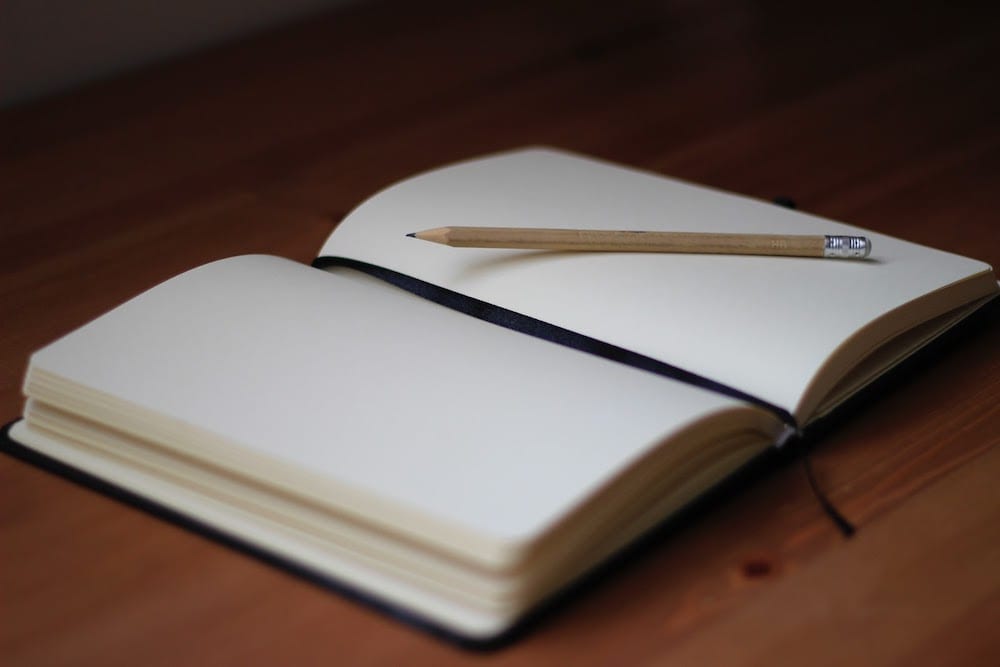
Attending a school with a great MFA in Creative Writing program is essential to receiving the best education. While many schools offer these programs, you will want to be fully prepared for your career as a writer upon graduating, and not every school can promise you will be. Applying to one of the following 11 schools, which are ranked as some of the absolute best for MFA in Creative Writing programs, is a great way to secure your future writing career.
University of Nebraska-Omaha
In Omaha, Nebraska, you can enroll in the University of Nebraska’s MFA in Creative Writing program. Students of this program will complete 60 credit hours of coursework in various genres while focusing on one genre based on the student’s specialization. The program is made up of four 16-week long writing seminars and five 10-day long residency workshops. Both the seminars and the workshops are designed to help prepare you as a writer.
To enroll in this program, applicants will need to provide their official transcripts, a resume, two letters of recommendation, a statement of purpose, and a writing sample that consists of 15 to 40 pages in their genre. As with all MFA programs, you will also need to have completed a Master’s Degree in Creative Writing or a similar subject.
Queens University of Charlotte
The Queens University of Charlotte in Charlotte, North Carolina, offers a low-residency MFA in Creative Writing. This program ensures there are never more than four students per teacher, which helps students get the quality education they need. Students of this program will have opportunities to write for the school’s literary journal or start an internship to help get their work published.
Requirements to apply to this program include submitting a resume, official transcripts, two letters of recommendation, and a 25-page writing portfolio. There is no requirement as to the genre the writing portfolio must be in, though you should focus on the genre you wish to pursue in your career.
Lindenwood University
At Lindenwood University in Saint Charles, Missouri, students can enroll in an MFA in Creative Writing. This program consists of 48 required credit hours that can be completed entirely online or on-campus. For both paths, no residency is required. Students of this program can take courses designed for both creative writers and those interested in journalism and editing. Most of the courses are taught by experienced authors and journalists, giving students a unique perspective.
Many opportunities are available to you at Lindenwood University, including being an editorial assistant for the school’s literary journal. To enroll in this program, you will need to submit a sample of your reactive writing as well as your official transcripts.
National University-San Diego
For those who wish to complete an online master’s degree , National University in San Diego, California, offers a completely online MFA in Creative Writing with no residency required. This program offers online workshops and seminars to provide students with an interactive online learning experience.
Students of this program will be required to complete elective courses. Many of these courses are unique and can help customize your degree, like film and directing courses or literary studies courses.
University of Texas-El Paso
In El Paso, Texas, students can enroll in a unique bilingual MFA in Creative Writing at the University of Texas. In fact, this is the only bilingual MFA program available in the world, providing students with a classroom experience in which English and Spanish coexist. While this program is on-campus, the university also offers an online MFA in Creative Writing program that can be completed from anywhere in the world.
The programs at this university require students to complete 48 credit hours made up of 42 credit hours of workshops and six for thesis work. To enroll, students must provide official undergraduate transcripts, three letters of recommendation, a statement of purpose and either eight to 10 pages of poetry or 20 pages of fictional writing.
Eastern Kentucky University
At the Eastern Kentucky University in Richmond, Kentucky, students can enroll in a low-residency MFA in Creative Writing program that is primarily online. The program requires students to attend at least 12 credit hours of residencies which are available in the winter in Lexington, Kentucky and in the summer in Lisbon, Portugal. Students can choose which residencies to attend, providing freedom of scheduling and the ability to travel.
To apply to the program at Eastern Kentucky University, students will need to provide GRE scores, undergraduate transcripts, a well-written resume , multiple letters of recommendation, and a writing portfolio. Students must also have completed an undergraduate degree with a GPA of 3.0 or higher.
Oregon State University
Oregon State University offers an on-campus MFA in Creative Writing program at its Corvallis, Oregon, location as well as an online MFA in Creative Writing through its campus in Bend, Oregon. This university is known for having many successful graduates from the MFA program and currently has the highest cumulative GPA of any college in the state of Oregon.
These programs consist of many different focuses, from spiritual writing to physical geography writing, and take around two years to complete. After completion, students will be considered for external GTA positions by the school, helping students find employment right away. To enroll, you will need to submit a resume highlighting achievements and awards, a writing portfolio, transcripts, and a statement of objectives.
Bay Path University
Bay Path University in Longmeadow, Massachusetts, offers a fully online MFA in Nonfiction Writing with no required residencies. There is also an option for students to study abroad in Ireland through this program. This is a great option for anyone who is unable to attend residencies and other on-campus activities but still wishes to earn a degree. The program here consists of 39 required credit hours and is designed for students at all levels of their writing careers.
To be accepted into this program, you will need to have maintained a GPA of 3.0 or higher and submit official transcripts with a 250-word essay, 10 pages of writing samples, and two letters of recommendation.
University of Arkansas-Monticello
In Monticello, Arkansas, you can enroll in the University of Arkansas’ non-residency MFA in Creative Writing program. This program consists of 48 required credit hours in one of three genres: poetry, fiction, or creative nonfiction. Students of this program will be able to learn at their own pace, with allowances of anywhere between three and 12 credit hours per semester.
To apply to the University of Arkansas at Monticello’s MFA in Creative Writing, you will need to apply with official transcripts showing a GPA of 3.0 or higher, a manuscript, a personal essay, a critical writing analysis, and three letters of recommendation.
University of New Orleans
The University of New Orleans in New Orleans, Louisiana, offers both online and on-campus versions of their MFA in Creative Writing program. Both programs take students around three years to complete and allow for focuses in poetry, fiction, or creative nonfiction. Students of these programs will also have the opportunity to study abroad in Ireland or Italy over the summers.

"Career Karma entered my life when I needed it most and quickly helped me match with a bootcamp. Two months after graduating, I found my dream job that aligned with my values and goals in life!"
Venus, Software Engineer at Rockbot
To enroll in one of these programs, students need to apply with GRE scores, official transcripts, and other documentation such as a resume and writing portfolio. Students do need to maintain at least a B in all classes to stay in the program once accepted.
Emerson College
In Boston, Massachusetts, you can attend Emerson College and enroll in its MFA in Popular Fiction Writing. This program is taught by award-winning faculty members and offers a concentration in all sorts of genres. Some of the more popular choices include mystery, horror, and young adult writing. The program requires students to complete 36 credit hours, 16 of which are workshops and four of which must be spent on a thesis.
Emerson College focuses on teaching students that writing is both a professional career and a form of art. They strive to help students learn about the history of their chosen genre, and help them to develop their own unique voice as a writer.
Creative writing is a great way to express yourself and your own interests in a way that benefits your career. Whether you wish to be a fiction writer, poet, or journalist, creative writing is a great skill to have. Being able to write unique works ensures an interested audience, which helps you become more successful.
While it is possible to land creative jobs without a degree , earning an MFA in Creative Writing is one of the best ways to turn your passion into a career. With plenty of job opportunities and a societal demand for constant entertainment, you are sure to make a decent living.
Attending one of the best 11 schools listed above is the best way to make sure your education is tailored to your needs. With options for online and on-campus degrees, you can’t go wrong with any of the best MFA in Creative Writing programs mentioned above.
About us: Career Karma is a platform designed to help job seekers find, research, and connect with job training programs to advance their careers. Learn about the CK publication .
What's Next?
Get matched with top bootcamps
Ask a question to our community, take our careers quiz.
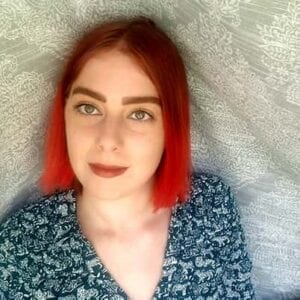
Leave a Reply Cancel reply
Your email address will not be published. Required fields are marked *


- Majors & Careers
- Online Grad School
- Preparing For Grad School
- Student Life
The 10 Best MFA Creative Writing Programs [2024]
Many people have a talent for stories, but not everyone will become a successful author. In many cases, people simply need to hone their skills – and the best MFA creative writing programs are the key.
If you have an undergrad degree and are looking for the next step in your academic adventure, you’re in luck: We’ve scoured MFA creative writing rankings to find you the best programs.
Table of Contents
The 10 Best MFA Creative Writing Programs
1. johns hopkins university – krieger school of arts & sciences.
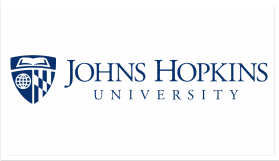
Master of Fine Arts in Fiction/ Poetry
Located in Baltimore, Maryland, Johns Hopkins is a world-renowned private research university. Their Master of Fine Arts in Fiction/Poetry is one of the best MFA creative writing programs anywhere. Students take courses and receive writing practice (in fiction or poetry) at the highest level. This MFA program also offers the opportunity to learn with an internationally renowned faculty.
- Duration: 2 years
- Financial aid: Full tuition, teaching fellowship (for all students set at $33,000/year)
- Acceptance rate: 11.1%
- Location: Baltimore, Maryland
- Founded: 1876
2. University of Michigan – Helen Zell Writers’ Program
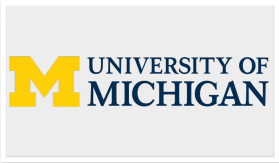
Master of Fine Arts
The University of Michigan is a public research university – and the oldest in the state. Its Master of Fine Arts program is one of the best MFA creative writing programs in the country, exposing students to various approaches to the craft. While studying under award-winning poets and writers, students may specialize in either poetry or fiction.
- Duration: 2 years
- No. of hours: 36
- Financial aid: Full funding
- Acceptance rate: 26.1%
- Location: Ann Arbor, Michigan
- Founded: 1817
3. University of Texas at Austin – New Writers Project
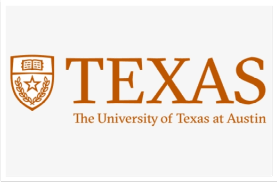
Master of Fine Arts in Creative Writing
The University of Texas at Austin is a well-known public research university with around 50,000 students at the graduate and undergraduate levels. It offers one of the best MFA programs for creative writing, aiming to enhance and develop its students’ artistic and intellectual abilities.
- Duration: 3 years
- Financial aid: Full funding
- Acceptance rate: 32%
- Location: Austin, Texas
- Founded: 1883
4. University of Nebraska – Kearney
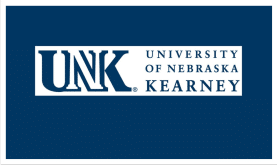
Master of Arts
The University of Nebraska strives to provide quality, affordable education, including its online MA English program. Students can focus on four areas, including Creative Writing (which provides experiential learning in either poetry or prose).
- Credit hours: 36
- Tuition : $315 per credit hour
- Financial aid : Grants, Work-study, Student loans, Scholarships, Parent loans
- Acceptance rate: 88%
- Location: Online
- Founded: 1905
5. Bay Path University (Massachusetts)
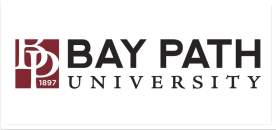
MFA in Creative Nonfiction Writing
Bay Path University is a private university with various programs at undergraduate, graduate, and doctorate levels (including women-only undergraduate programs). This creative non-fiction writing program is one of the first fully online programs in the country. No matter their location, students are able to develop their creative writing skills and knowledge – in a range of literary genres.
- Credits: 39
- Tuition: $775 per credit
- Financial aid : Federal Stafford loan, Student loans
- Acceptance rate: 78%
- Founded: 1897
6. Brown University (Rhode Island)
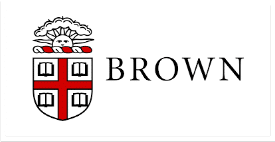
MFA in Literary Arts
Brown is a world-famous Ivy League university based in Providence, Rhode Island. Its two-year residency MFA in Literary Arts is designed for students looking to maximize their intellectual and creative exploration. The highly competitive program offers extensive financial support. In fact, over the past 20 years, all incoming MFA students were awarded full funding for their first year of study (and many for the second year).
- Tuition: $57,591 (but full funding available)
- Financial aid : Fellowship, teaching assistantships, and stipends.
- Acceptance rate: 9%
- Location: Providence, Rhode Island
- Founded: 1764
7. University of Iowa (Iowa)
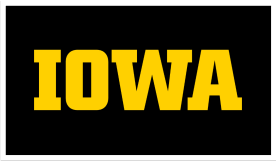
MFA in Creative Writing
The University of Iowa is a public university located in Iowa City. As one of the most celebrated public schools in the Midwest, students learn under established professors and promising writers during their two-year residency program.
- Credits: 60
- Tuition: $12,065 for in-state students, and $31,012 out-of-state
- Financial aid : Scholarships, teaching assistantships, federal aid, and student loans.
- Acceptance rate: 84%
- Location: Iowa City, Iowa
8. Cornell University (New York State)
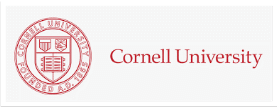
Cornell is an Ivy League university located in Ithaca, New York. This highly competitive program accepts only eight students annually, and just two from each concentration. Not only do students enjoy a generous financial aid package, but they also have the opportunity to work closely with members of the school’s celebrated faculty.
- Tuition: $29,500
- Financial aid : All accepted students receive a fellowship covering full tuition, stipend, and insurance.
- Acceptance rate: 14%
- Location: Ithaca, New York
- Founded: 1865
9. Columbia University ( NYC )
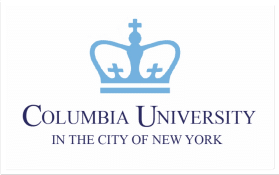
MFA in Fiction Writing
Founded in 1754, Columbia University is the oldest tertiary education institution in New York – and one of the oldest in the country. The school offers a Writing MFA in nonfiction, fiction, poetry, and literary translation. The fiction concentration promotes artistic and aesthetic diversity, with a diverse teaching staff and adjunct faculty from a wide range of diverse experience.
- Credits: 60 points
- Tuition: $34,576
- Financial aid : Scholarships, fellowships, federal aid, work-study, and veterans’ grants.
- Acceptance rate: 11%
- Location: NYC, New York
- Founded: 1754
10. New York University (NYC)
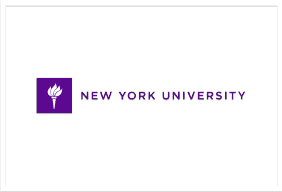
New York University (NYU) is known for delivering high-quality, innovative education in various fields. Located in the heart of NYC, the institution’s MFA in Creative Writing boasts celebrated faculty from poetry, fiction, and creative non-fiction backgrounds. This dynamic program fosters creativity and excellence through literary outreach programs, public reading series, a literary journal, and special seminars from visiting writers
- Credits: 32
- Tuition: $53,229
- Financial aid : Fellowships, scholarships, and federal aid.
- Location: NYC
- Founded: 1886
Common Courses for MFAs in Creative Writing
As part of your master’s in creative writing program, you’ll usually need to complete a number of compulsory courses, along with certain electives. Common courses you’ll need to take include:
- Literary theory
- History of storytelling
- Genre conventions
- Market trends
- Marketing manuscripts to publishers
- Thesis or dissertation
Typical Requirements for Applying to an MFA Creative Writing Program
Besides the application form and fee, most MFA in creative writing programs have standard requirements. While the following are the most typical requirements, always check with the specific program first:
Make sure your resume includes all relevant information to showcase your interests, skills, and talent in writing.
2. Writing Sample(s)
MFA creative writing program selection committees look for applicants who are serious about writing. Therefore, they typically ask for at least one 10-20 page writing sample. The best samples showcase talent in your preferred area of writing (e.g., fiction, non-fiction). MFA poetry programs have varied sample requirements.
3. Transcripts
You’ll need to show your undergraduate degree (and possibly high school) transcript.
4. Statement of Purpose
A statement of purpose is usually 1-2 pages and shows your passion for writing and potential to succeed in the program.
5. Recommendation Letters
Most programs require letters of recommendation from academic or professional contacts who know you well.
Related reading: How to Ask a Professor for a Grad School Recommendation
6. GRE Scores
Some MFA programs require GRE scores (though this is not the case for all universities). If you happen to need some assistance while studying for your GRE or GMAT, be sure to check out Magoosh for easy test prep!
What Can Creative Writers Do After Graduation?
As a creative writer with an MFA, you’ll have a variety of career options where your skills are highly valued. Below are a few of the common jobs an MFA creative writing graduate can do, along with the average annual salary for each.
Creative Director ( $90,389 )
A creative director leads a team of creative writers, designers, or artists in various fields, such as media, advertising, or entertainment.
Editor ( $63,350)
An editor helps correct writing errors and improve the style and flow in media, broadcasting, films, advertising, marketing , and entertainment.
Academic Librarian ( $61,190)
An academic librarian manages educational information resources in an academic environment (such as a university).
Copywriter ( $53,800 )
Copywriters typically work to present an idea to a particular audience and capture their attention using as few words as possible.
Technical Writers ($78,060)
Technical writers are tasked with instruction manuals, guides, journal articles, and other documents. These convey complex details and technical information to a wider audience.
Writer ( $69,510 )
A writer usually provides written content for businesses through articles, marketing content, blogs, or product descriptions. They may also write fiction or non-fiction books.
Social Media Manager ( $52,856 )
A social media manager is responsible for creating and scheduling content on social media, and may also track analytics and develop social media strategies.
Journalist ($ 48,370 )
Journalists may work for newspapers, magazines, or online publications, researching and writing stories, as well as conducting interviews and investigations.
Public Relations Officer ( $62,800)
A public relations officer works to promote and improve the public image of a company, government agency, or organization. This is done through work such as: preparing media releases, online content, and dealing with the media.
Lexicographer ( $72,620 )
Lexicographers are the professionals who create dictionaries. They study words’ etymologies and meanings, compiling them into a dictionary.
Can You Get a Creative Writing Degree Online?
Yes, a number of institutions offer online master’s degrees , such as Bay Path University and the University of Nebraska. Online courses offer a high degree of flexibility, allowing you to study from anywhere – and often on your own schedule. Many students can earn their degrees while continuing with their current job or raising a family.
However, students won’t receive the full benefits of a residency program, such as building close connections with peers and working with the faculty in person. Some on-campus programs also offer full funding to cover tuition and education expenses.
Pros and Cons of an MFA in Creative Writing
Like anything, studying an MFA in Creative Writing and pursuing a related career can have its benefits as well as drawbacks.
- It’ll motivate you to write.
Many people are talented but struggle sitting down to write. An MFA program will give you the motivation to meet your deadlines.
- You’ll have a community.
Writing can be a solitary pursuit. It can be hard to connect with others who are just as passionate about writing. An MFA program provides students with a community of like-minded people.
- Graduates have teaching prospects.
An MFA is one option that can help you find a teaching job at the university level. Unlike some majors that require a Ph.D. to enter academia, many post-secondary instructors hold an MFA.
- Not always the most marketable job skills
Although an MFA in Creative Writing will provide several useful skills in the job market, these are not as marketable as some other forms of writing. For example, copywriting arguably has a wider range of job prospects.
- It could limit your creativity.
There is a risk that your writing could become too technical or formulaic, due to the theories learned during your MFA. It’s important to know the theory, but you don’t want to let it limit your creativity.
How Long Does It Take to Get an MFA Degree in Creative Writing?
A master’s in creative writing typically takes between 2-3 years to complete. Unlike other master’s degrees’ accelerated options, creative writing program requirements require a greater number of workshops and dissertations.
Alternatives to Creative Writing Majors
There are plenty of similar majors that can set you on the path to a career in the creative writing field. Consider alternatives like an MA in English , literature, humanities, media studies, and library sciences.
Related Reading: Master’s in Fine Arts: The Ultimate Guide
Frequently Asked Questions
What can i do with an mfa in creative writing .
An MFA graduate could teach creative writing at a secondary or college level. They may pursue a career in advertising, publishing, media, or the entertainment industry. They could also become an author by publishing fiction, non-fiction, or poetry.
Are MFA Creative Writing Programs Worth It?
Having an MFA opens doors to a range of well-paid careers (more on that above). If you’re skilled in writing – and want to make a decent living with it – an MFA program might be an excellent choice.
How Do I Choose an MFA in Creative Writing?
First, consider whether an on-campus or online MFA program is best for you (depending on your lifestyle and commitments). Another key consideration is a university with renowned authors on their teaching staff who will give you the highest levels of training in creative writing. Also, consider your preferred focus area (e.g., fiction, poetry, nonfiction) .
What Are MFA Writing Programs?
An MFA in writing or creative writing is an advanced program that teaches students the art and practice of writing. During these programs, students hone their writing skills and equip themselves to publish their own work – or pursue a career in media, teaching, or advertising.
Can You Teach with an MFA?
Yes! Teaching is one of the many career options an MFA provides . An MFA in creative writing can qualify you to be a teacher in creative writing (in schools or the higher education sector).
Is It Hard to Be Admitted to MFA Creative Writing Programs?
MFA creative writing programs are relatively competitive. Therefore, not all applicants will get into the program of their choice. However, if you are talented and ambitious that becomes more likely. Having said that, the most prestigious universities with the best MFA creative writing programs accept a small percentage of the applicants.
What Is the Best Creative Writing Program in the World?
A number of creative writing programs are known for their famous faculty and excellent courses, like the Master of Fine Arts in Fiction/ Poetry from Johns Hopkins and the MFA in Literary Arts from Brown University . Outside the US, the most celebrated English program is likely the University of Cambridge’s MSt in Creative Writing.
How Hard Is It to Get an MFA in Creative Writing?
An MFA is an intensive, highly-involved degree that requires a certain amount of dedication. Anyone with a passion for creative writing should find it rewarding and satisfying.
Should I Get an MA or MFA in Creative Writing?
Whether you choose an MA or MFA in creative writing depends on your own interests and career ambitions. An MFA in creative writing is ideal for anyone passionate about pursuing a career in fiction, poetry, or creative non-fiction. An MA is a broader degree that equips students for a wider range of career choices (though it will qualify them for many of the same roles as an MFA).
Can I Get Published Without an MFA?
Absolutely. However, studying for an MFA will equip you with a range of skills and knowledge that are extremely helpful in getting your work published, from honing your craft to submitting your manuscript to working with publishers.
What Are the Highest-Paying Jobs with a Master’s in Creative Writing?
An MFA in creative writing can help you land a range of jobs in the creative and literary fields. The highest-paying jobs for graduates with a master’s in creative writing include creative directors ($90,000) and technical writers ($78,000).
Key Takeaways
An MFA in creative writing program will hone your talents and develop the skills you need to become a successful writer. The best MFA creative writing programs will give you incredible knowledge of the field while developing your practical skills in fiction, non-fiction, or poetry.
The acceptance rate for the best MFA writing programs is fairly low, so it’s crucial to understand the requirements well and prepare thoroughly. To help you with your application, check out our guide to applying to grad school .
- Top 5 Easiest Master’s Degrees + 10 Easiest Grad Schools to Get Into
- Top 10 Cheap Online Master’s Degrees in the US

Lisa Marlin
Lisa is a full-time writer specializing in career advice, further education, and personal development. She works from all over the world, and when not writing you'll find her hiking, practicing yoga, or enjoying a glass of Malbec.
- Lisa Marlin https://blog.thegradcafe.com/author/lisa-marlin/ ACBSP Vs AACSB: Which Business Program Accreditations is Better?
- Lisa Marlin https://blog.thegradcafe.com/author/lisa-marlin/ BA vs BS: What You Need to Know [2024 Guide]
- Lisa Marlin https://blog.thegradcafe.com/author/lisa-marlin/ The 19 Best MBA Scholarships to Apply for [2024-2025]
- Lisa Marlin https://blog.thegradcafe.com/author/lisa-marlin/ 25 Best Gifts for Law Students for 2024
Top 13 Highest-Paying MBA Jobs in 2024
Master’s in fine arts: the ultimate guide, related posts.

- 73% of job seekers believe a degree is needed for a well-paying role–but is it?

Tech Talent Crunch: Cities with More Jobs Than Workers

The Most Under-Rated Career Advancement Tip for 2024

Top 5 Best Psychology PhD Programs in 2024

Good News For Early Careers: Skills-Based Hiring is Surging

These Are The Best States To Start Your Tech Career

Master's in Fine Arts: The Ultimate Guide
Leave a reply cancel reply.
Your email address will not be published. Required fields are marked *
Save my name, email, and website in this browser for the next time I comment.
Recent Posts
- Is a Master’s Degree Worth It? [2024 Guide]
- Graduate Certificate vs Degree: What’s the Difference? [2024 Guide]
- ACBSP Vs AACSB: Which Business Program Accreditations is Better?
- What is a Good GRE Score?

© 2024 TheGradCafe.com All rights reserved
- Partner With Us
- Results Search
- Submit Your Results
- Write For Us

Choose Your Test
Sat / act prep online guides and tips, the 12 best creative writing colleges and programs.
College Info

Finding a dedicated creative writing program at a school you're excited about can be a real challenge, and that's even before you start worrying about getting in. Nonetheless, there are some great options. In order to help you find the best school for you, this list rounds up some of the best colleges for creative writing in the United States .
The Best Creative Writing Programs: Ranking Criteria
You should never take college rankings as absolute truth —not even the very official-seeming US News ones. Instead, use these kinds of lists as a jumping-off place for your own exploration of colleges. Pay attention not just to what the rankings are but to how the rankings are determined.
To help with that, I'll explain how I came up with this highly unscientific list of great creative writing colleges. I started by narrowing my search down to schools that offered a specific creative writing major. (If you don't see a school you were expecting, it's likely because they only have a minor.)
In ranking the schools, I considered five major criteria:
- #1: MFA Ranking —If a school has a great graduate creative writing program, it means you'll be taught by those same professors and the excellent graduate students they attract. Schools with strong MFA programs are also more likely to have solid alumni networks and internship opportunities. However, many schools with great undergrad programs do not offer MFAs, in which case I simply focused on the other four options.
- #2: General School Reputation —The vast majority of your classes won't be in creative writing, so it's important that other parts of the school, especially the English department, are great as well.
- #3: Extracurricular Opportunities —One of the key advantages of majoring in creative writing is that it can provide access to writing opportunities outside the classroom, so I took what kind of internship programs, author readings, and literary magazines the school offers into consideration.
- #4: Diversity of Class Options —I gave extra points to schools with a variety of genre options and specific, interesting classes.
- #5: Alumni/Prestige —This last criterion is a bit more subjective: is the school known for turning out good writers? Certainly it's less important than what kind of education you'll actually get, but having a brand-name degree (so to speak) can be helpful.
The Best Creative Writing Schools
Now, let's get to the good stuff: the list of schools! The exact numbering is always arguable, so look at it as a general trend from absolutely amazing to still super great, rather than fixating on why one school is ranked #3 and another is ranked #4.
#1: Northwestern University
Northwestern's undergrad creative writing program boasts acclaimed professors and an unparalleled track record of turning out successful writers (including Divergent author Veronica Roth and short-story writer Karen Russell).
Outside the classroom, you can work on the student-run literary journal, intern at a publication in nearby Chicago, or submit to the Department of English's yearly writing competition . The university is also home to a top journalism program , so if you want to try your hand at nonfiction as well, you'll have plenty of opportunities to do so.
#2: Columbia University
Like Northwestern, Columbia is home to both a world-class creative writing program and a top journalism school (plus one of the best English departments in the country), so you have a wide range of writing-related course options. Columbia also benefits from its location in New York City, which is bursting at the seams with publishing houses, literary journals, and talented authors.

#3: University of Iowa
The University of Iowa's big draw is the infrastructure of its graduate Writers' Workshop, which is often considered the best MFA program in the country.
As an English and Creative Writing major here, you'll take classes from great young writers and established professors alike, and get to choose from a wide range of topics. This major provides transferable skills important for a liberal arts major with a creative focus. You'll also have access to the university's impressive literary community, including frequent readings, writing prizes and scholarships, and the acclaimed literary journal The Iowa Review .
#4: Emory University
Emory is renowned for its dedicated undergrad creative writing program , which draws the very best visiting scholars and writers. Students here have the chance to attend intimate question-and-answer sessions with award-winning authors, study a range of genres, compete for writing awards and scholarships, and work closely with an adviser to complete an honors project.
#5: Oberlin College
A small liberal arts school in Ohio, Oberlin offers very different advantages than the schools above do. You'll have fewer opportunities to pursue writing in the surrounding city, but the quality of the teachers and the range of courses might make up for that. Moreover, it boasts just as impressive alumni, including actress and writer Lena Dunham.
#6: Hamilton College
Hamilton is another small college, located in upstate New York. It's known for giving students the freedom to pursue their interests and the support to help them explore topics in real depth, both inside and outside the classroom. Hamilton's creative writing program takes full advantage with small classes and lots of opportunities to intern and publish; it also has one of the best writing centers in the country.
#7: Brown University
Brown's Literary Arts program offers one of the top MFAs in the US as well as an undergraduate major . For the major, you must take four creative writing workshops and six reading-intensive courses, which span an array of departments and topics, from music and literature to Middle East studies and Egyptology.

#8: Washington University in St. Louis
Washington University has an excellent creative writing MFA program, lots of super specific class options, and a number of scholarships specifically earmarked for creative writing students. This school’s undergraduate English program also offers a concentration in creative writing that allows students to specialize in a specific genre: poetry, fiction, or creative nonfiction. If you’re interested in exploring your potential in a specific writing genre, Washington University could be a great pick for you.
#9: Massachusetts Institute of Technology
MIT might not be a school you generally associate with writing, but it actually has an excellent program that offers courses in digital media and science writing, as well as creative writing, and provides plenty of guidance on how graduates can navigate the tricky job market.
Not to mention the school is located in Cambridge, a haven for book lovers and writers of all kinds. Though it probably isn’t a good fit for students who hate science, MIT is a great place for aspiring writers who want to build writing skills that are marketable in a wide range of industries.
#10: University of Michigan
University of Michigan is one of the best state universities in the country and has a top-notch MFA program. This school’s undergrad creative writing sub-concentration requires students to submit applications for admittance to advanced creative writing courses. These applications give students crucial practice in both building a writing portfolio and articulating their interest in creative writing to an audience who will evaluate their work. If you're looking to attend a big school with a great creative writing major, this is a fantastic choice.
#11: Johns Hopkins University
Johns Hopkins is another school that's known more for engineering than it is for writing, but, like MIT, it has a dedicated writing program. As a major here, you must take not only courses in prose, poetry, and literature, but also classes on topics such as philosophy and history.
#12: Colorado College
Colorado College is a small liberal arts school known for its block plan , which allows students to focus on one class per three-and-a-half-week block. The creative writing track of the English major includes a sequence of four writing workshops and also requires students to attend every reading of the Visiting Writers Series.
Bonus School: New York University
I didn't include NYU in the main list because it doesn't have a dedicated creative writing major, but it's a great school for aspiring writers nonetheless, offering one of the most impressive creative writing faculties in the country and all the benefits of a Manhattan location.

How To Pick the Best Creative Writing School for You
Just because Northwestern is a great school for creative writing doesn't mean you should set your heart on going there. (The football fans are completely terrifying, for one thing.) So where should you go then?
Here are some questions to ask yourself when looking at creative writing programs to help you determine the best school for you:
Does It Have Courses You're Interested In?
Look at the course offerings and see whether they interest you. While you can't predict exactly what classes you'll love, you want to avoid a mismatch where what you want to study and what the program offers are completely different. For example, if you want to write sonnets but the school focuses more on teaching fiction, it probably won't be a great fit for you.
Also, don't forget to look at the English courses and creative writing workshops! In most programs, you'll be taking a lot of these, too.
What Opportunities Are There To Pursue Writing Outside of Class?
I touched on this idea in the criteria section, but it's important enough that I want to reiterate it here. Some of the best writing experience you can get is found outside the classroom, so see what kind of writing-related extracurriculars a school has before committing to it.
Great options include getting involved with the campus newspaper, working on the school's literary journal, or interning at the university press.
Who Will Be Teaching You?
Who are the professors? What kind of work have they published? Check teacher ratings on Rate My Professors (but make sure to read the actual reviews—and always take them with a grain of salt).
If you're looking at a big school, there's a good chance that a lot of your teachers will be graduate students. But that's not necessarily a bad thing: a lot of the best teachers I had in college were graduate students. Just take into consideration what kind of graduate program the school has. If there's a great creative writing MFA program, then the graduate students are likely to be better writers and more engaged teachers.
What Are the Alumni Doing Now?
If you have a sense of what you want to do after you graduate, see if any alumni of the program are pursuing that type of career. The stronger the alumni network is, the more connections you'll have when it comes time to get a job.
What About the Rest of the School?
Don't pick a school for which you like the creative writing program but dread everything else about it. Most of your time will be spent doing other things, whether hanging out in the dorms, exploring off campus, or fulfilling general education requirements.
Many schools require you to apply to the creative writing major, so make doubly sure you'll be happy with your choice even if you aren't accepted to the program.
What's Next?
Are you sure a creative writing major is the right fit for you? Read our post on the pros and cons of the major to help you decide what path to take in college.
For more general advice about choosing a college, check out our complete guide to finding the right school for you. Some major factors to consider include deciding whether you're interested in a small college or a big university , an in-state or out-of-state institution , and a public or private school .
Want to improve your SAT score by 160 points or your ACT score by 4 points? We've written a guide for each test about the top 5 strategies you must be using to have a shot at improving your score. Download it for free now:

Alex is an experienced tutor and writer. Over the past five years, she has worked with almost a hundred students and written about pop culture for a wide range of publications. She graduated with honors from University of Chicago, receiving a BA in English and Anthropology, and then went on to earn an MA at NYU in Cultural Reporting and Criticism. In high school, she was a National Merit Scholar, took 12 AP tests and scored 99 percentile scores on the SAT and ACT.
Student and Parent Forum
Our new student and parent forum, at ExpertHub.PrepScholar.com , allow you to interact with your peers and the PrepScholar staff. See how other students and parents are navigating high school, college, and the college admissions process. Ask questions; get answers.

Ask a Question Below
Have any questions about this article or other topics? Ask below and we'll reply!
Improve With Our Famous Guides
- For All Students
The 5 Strategies You Must Be Using to Improve 160+ SAT Points
How to Get a Perfect 1600, by a Perfect Scorer
Series: How to Get 800 on Each SAT Section:
Score 800 on SAT Math
Score 800 on SAT Reading
Score 800 on SAT Writing
Series: How to Get to 600 on Each SAT Section:
Score 600 on SAT Math
Score 600 on SAT Reading
Score 600 on SAT Writing
Free Complete Official SAT Practice Tests
What SAT Target Score Should You Be Aiming For?
15 Strategies to Improve Your SAT Essay
The 5 Strategies You Must Be Using to Improve 4+ ACT Points
How to Get a Perfect 36 ACT, by a Perfect Scorer
Series: How to Get 36 on Each ACT Section:
36 on ACT English
36 on ACT Math
36 on ACT Reading
36 on ACT Science
Series: How to Get to 24 on Each ACT Section:
24 on ACT English
24 on ACT Math
24 on ACT Reading
24 on ACT Science
What ACT target score should you be aiming for?
ACT Vocabulary You Must Know
ACT Writing: 15 Tips to Raise Your Essay Score
How to Get Into Harvard and the Ivy League
How to Get a Perfect 4.0 GPA
How to Write an Amazing College Essay
What Exactly Are Colleges Looking For?
Is the ACT easier than the SAT? A Comprehensive Guide
Should you retake your SAT or ACT?
When should you take the SAT or ACT?
Stay Informed
Get the latest articles and test prep tips!
Looking for Graduate School Test Prep?
Check out our top-rated graduate blogs here:
GRE Online Prep Blog
GMAT Online Prep Blog
TOEFL Online Prep Blog
Holly R. "I am absolutely overjoyed and cannot thank you enough for helping me!”

Editor’s Top Selections – Best Creative Writing MFA Programs

Created by CreativeWritingEDU.org Contributor
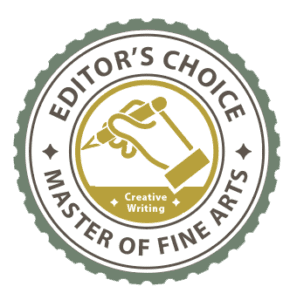
Once few and far between, master’s degrees aimed specifically at teaching creative writing have ballooned to meet demand in recent years. As of 2022, there were more than 300 of them.
Each MFA offers a distinctive experience and comes with its own theories and techniques for fanning the creative spark in students.
- Some come with exquisite and carefully curated libraries exhibiting the finest selection of literature for study.
- Others offer a fully-funded education , covering tuition and offering a stipend to give you the free time you need to write to your fullest potential.
- Many have well-known authors serving as guest lecturers or even permanent presenters, offering a kind of access to genius you can’t find anywhere else.
It’s nice to have choices, but having choices also means making hard decisions. We’re here to help take some of the pain out of that process by presenting our own select choices for the very best universities offering MFA Creative Writing programs today.
How We Made Our Selections for the Finest Creative Writing MFA Programs
Schools that only teach creative writing at the master’s level have made a conscious choice to focus on a high level of training in the craft of writing. It’s completely appropriate to hold them to high standards.
It’s notoriously difficult to weigh any kind of artistic education program against another, however. Every writer is different. The process and program that you will get the most out of may be completely different from what the next author would benefit from.
So we look at the kinds of factors these degrees deliver that don’t revolve around process. Regardless of how an advanced level of creative writing is being taught, there are just some things that offer a better education no matter how they are applied. In our view, those include:
Top-notch Instructors With Genuine Writing and Publication Expertise
There’s no substitute for professors who have been there and done that in creative writing. Competition for top writers to teach at creative writing MFA programs is intense, and for good reason: when you are trying to master the muse, you want to hear about it from someone who already has.
But literary success is no guarantor of teaching ability. You wouldn’t want to be in a class taught by brilliant sci-fi author Harlan Ellison, for example, who has a whole section on his Wikipedia entry titled “Temperament.” Mentoring and the gentle art of delivering critical feedback to boost and not hinder students are key skills.
So, the best MFA in creative writing degrees employ professors with the rare combination of literary and academic talent—which is what you will find at each of the schools on this list.
The Resources To Support Your Writing Vision
Writers only float in a sea of ideas. The top MFA programs in creative writing have the resources to fill that ocean:
- Expansive libraries for conducting research
- Endowments to help fund student fellowships
- Visiting writer and other lecture and reading series to develop broad visions and connections
- School-run or affiliated literary journals or publishers to open up publication opportunities
- International or other off-campus programs to broaden your literary experiences
- Calm and inspiring writing residency options to put you in the right frame of mind to write
- Small class sizes and workshops to foster intimacy and feedback
Although not all these programs will check every one of those boxes, each of them has a wealth of different resources to offer to help get students off the ground in both their creative exercises and their publishing careers.
A Track Record of Educational Success in Creative Writing
Most MFA programs are quick to acknowledge that you can’t teach talent—but you can foster and hone it.
That leads to demonstrable results in the form of graduates who have attracted top-dollar publishing deals, industry awards and recognition, and who have gone on to critical acclaim or even become instructors themselves.
This kind of reputation is golden in the literary world and all of these schools will have people sitting up and taking note when their name pops up in your author bio.
Strong Publishing Industry and Literary Community Connections
When you produce successful writers and hire well-known authors to instruct classes, important industry connections are an asset included in the deal. Those industry ties prove to be among the most important characteristics of the best creative writing MFA programs.
Each of these programs has developed connections to major publishers, agencies, and trade groups that help lay the groundwork for you to launch your writing career. There is fierce competition to land book deals in the publishing industry today. Every editor receives stacks and stacks of submissions and query letters; even the best authors have trouble making it out of the slush piles without a recommendation or introduction.
These schools have the kind of connections that will help get you introduced to decision-makers in big agencies and book publishers. Who you know still isn’t as important as how good your writing is, but with these programs, you’ll get the best of both worlds.
Diverse and Original Coursework in Foundational and Advanced Writing Skills
A Master of Fine Arts in Creative Writing puts a clear stamp on your work. It’s designed to get the best out of your native skill and polish it to the finest shine.
That means both ironing out the fundamentals of the writing craft and developing new and advanced skills. All of these degrees have a wide range of courses and workshops that offer a deep background in the knowledge and skills required for solid plotting, character development, and essential technical expertise as a writer. But they also go far beyond those to help you seek new sources of inspiration and experience. Exploring the poetry of science fiction; diving into post-apocalyptic writing; focusing on the art of telling a joke; comparing Western and Eastern literary forms and storytelling… all these kinds of classes and more offer you an edge in taking your writing to the next level with a degree from these schools.
Helping You Choose From Among the Finest Creative Writing MFA Programs in the Nation
All those features are what make these programs the best. But the real question you need to answer is which one will actually be the best for you ?
We can help you figure that out, too. Although each of these schools comes in on top of the pack of master’s-level creative writing programs in the country in general, each also has unique features that will determine how they fit in with your personal goals and style.
So for each listing, we give you plenty of additional information to help you make your decision. That includes data on:
You’ll also get a thumbnail sketch of what makes the school a great one, outlining many of the supporting facts behind the criteria we evaluated them on. But you’ll also get some of the highlights, the things that really make them stand out, such as:
- Whether the school also offers undergraduate and doctoral degrees
- Which concentration or specializations are offered
- The formats in which the program is available
- Whether the school is public or private
- Rankings by respected third-party evaluators like The Princeton Review
- Exemplary student-published literary magazines
- Super low student-to-faculty ratios
- Unique workshops or internship opportunities offered
- Generous fellowship opportunities
It’s easy access to the kind of information that will help make your decision easy… all in one place.
State-By-State: Top Selections for the Best Creative Writing Master of Fine Arts (MFA) Programs in the U.S.
Competition to get into these elite MFA creative writing programs can be stiff. But if you are determined to get the finest graduate education in creative writing available today, then choosing from among these schools offers your best chances.
Find the Best MFA Creative Writing Programs in Your State
Connecticut.
District of Columbia
Massachusetts
Mississippi, new hampshire, north carolina, pennsylvania, rhode island, south carolina, university of arizona (public).
COLLEGE OF SOCIAL AND BEHAVIORAL SCIENCES

MFA in Creative Writing (on-campus)
Fully funded through graduate teaching assistantships
Also offers: BA in Creative Writing (on-campus)
- Both programs allow students to focus on fiction, nonfiction, or poetry
- MFA program is ranked among the top programs in the nation
- Fully funded MFA offered through graduate teaching assistantships
- MFA features unparalleled opportunities to write and research at the US-Mexico border through the Southwest Field Studies on Writing Program
The University of Arizona offers a BA and MFA in Creative Writing, both of which are part of one the top-ranked creative writing programs in the nation! Choose the BA in Creative Writing and you’ll learn from award-winning writers as you refine your skillset in writing, research, critical thinking, and literary analysis and explore the genres of fiction, nonfiction, and poetry (you’ll choose one genre as a focus after your first year of study). You’ll also be encouraged to take a variety of courses in professional and technical writing, the study of literature, writing and publishing, writing and community, and language, making this a truly well-rounded course of undergraduate study. The University of Arizona’s MFA in Creative Writing has been producing award-winning writers for 50 years and is regarded as one of the top programs of its kind in the nation. This fully funded, three-year program features your choice of fiction, poetry, or nonfiction concentration and a dynamic classroom experience that includes a world-class faculty and small, workshop-style courses.
University of Arkansas (Public)
FULBRIGHT COLLEGE OF ARTS AND SCIENCES
Fayetteville, AR

MFA in Creative Writing & Translation (poetry, fiction, literary translation) (on-campus)
Fully funded MFA with absolutely no tuition costs for students accepted into the program
- Highly selective program admits up to five students each year in each genre (poetry, prose, and literary translation)
- Outstanding opportunities to learn from established writers through the Walton Reading Series
- Consistently ranked among the top MFA programs in the country by Poets & Writers
- Named among the “Top Five Most Innovative” programs of its kind by Atlantic Monthly
The University of Arkansas’ MFA in Creative Writing & Translation is a unique course of graduate study that’s personalized with your choice of concentration in poetry, fiction, or literary translation. This program is among the nation’s oldest MFA programs, yet never fails to impress with its dynamic, forward-thinking curriculum. In fact, it was named among the “Top Five Most Innovative” programs of its kind by Atlantic Monthly ! For more than 50 years, the university’s MFA in Creative Writing & Translation has produced some of the country’s top writers – and it’s little wonder why. The robust curriculum of this program is built on a solid foundation of coursework in craft and literary studies and complemented with a superb, student-centered learning environment that boasts small class sizes and a dedicated faculty.
University of California-Davis (Public)
COLLEGE OF LETTERS AND SCIENCES

Also offers: BA in English-Creative Writing emphasis (on-campus)
- Full funding guaranteed in the second year of the MFA program in exchange for undergrad teaching positions
- Ranked among the top five public universities in the nation by the Wall Street Journal/Times Higher Education
- MFA students choose a single genre – fiction, nonfiction, or poetry, or a multi-genre focus
The University of California – Davis offers both an undergraduate and graduate program in creative writing that are designed to inspire the emerging or established writer! Focused on the mastery of craft with a solid foundation in literary traditions, the BA in English with a Creative Writing emphasis is designed to expand your knowledge and refine your writing skills in preparation for a variety of careers in areas like publishing, marketing, journalism, advertising, and more. The innovative Creative Writing MFA program features a nice blend of studio and literature courses in your choice of fiction, nonfiction, poetry, or multi-genre. In the second year, you’ll teach creative writing courses to undergrad students as you prepare to become a successful practitioner in your own right. All students of the MFA are guaranteed full funding in their second year!
University of California-Irvine (Public)
SCHOOL OF HUMANITIES

MFA in English-Creative Writing (Fiction, Poetry) (on-campus)
Full funding available through graduate teaching assistantships
- UCI named a Fulbright Hispanic-Serving Institution (HIS) Leader
- Your choice of poetry or fiction concentration/emphasis
- Superb student engagement and feedback through the Graduate Writers’ Workshop
The University of California – Irvine is home to the esteemed MFA in English with a Creative Writing emphasis, an exciting course of graduate study that allows students to explore poetry or fiction through dynamic workshops and seminars. Designed to bring together a talented group of writers with plans on a writing-intensive career, the MFA program is rich in close mentorship from accomplished visiting writers. This highly selective program admits just 12 new students each year to ensure one-on-one guidance and support from the program’s faculty. This program is built on the Graduate Writers’ Workshop, a group that meets each quarter to share and critique one another’s writing. Throughout the course of the program, students participate in the Graduate Writers’ Workshop and attend graduate-level seminars.
San Diego State University (Public)
COLLEGE OF ARTS AND LETTERS
San Diego, CA

- Competitive graduate teaching associate positions available
- Exciting Fulbright Fellowships available to study in places like Austria, Brazil, and Poland.
- Your choice of focus in fiction, poetry, or cross-genre
San Diego State University’s MFA in Creative Writing offers is innovative, personalized, and designed to arouse your creative skillset. As one of the oldest MFA Creative Writing programs in the nation, this course of graduate study enjoys a long history of producing skilled, inspired writers. But don’t expect a stale, rote curriculum. Instead, you’ll immerse yourself in a dynamic program that includes your choice of concentration in fiction, poetry, or cross-genre as you work toward producing a manuscript of your original work. Students of this program also enjoy studying under internationally acclaimed visiting writers from around the world, and many students receive Fulbright Fellowships to study in places like Austria, Brazil, and Poland.
California College of the Arts (Private)
San Francisco, CA

MFA in Writing (on-campus)
Also offers: BA in Writing and Literature (on-campus)
- Superb faculty of accomplished scholars, writers, poets, and playwrights
- Outstanding internship opportunities with Bay Area literary organizations available
For aspiring and emerging writers, the California College of the Arts offers a BA in Writing and Literature and an MFA in Writing! The BA offers a foundation in literature and critical inquiry and dynamic workshops in prose, poetry, drama, screenwriting, graphic novels, improvisation, and more. You’ll refine your skills in literary journalism, hybrid narratives, lyric essays, and much more as you conduct close readings and analyses of writing across time. BA students learn from acclaimed authors through the HearSay Reading Series… they contribute their talents to Humble Pie , the undergraduate journal… and they enjoy outstanding internship experiences with Bay Area literary organizations. The MFA program is offered at the Writers’ Studio, where students participate in workshops, readings, and craft talks and learn from accomplished authors through the famed Tuesdays Talk series. Here students explore nonfiction, fiction, and poetry in a close, supportive atmosphere that naturally elicits creativity and inspiration.
Saint Mary’s College of California (Private)
SCHOOL OF LIBERAL ARTS
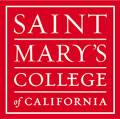
MFA in Creative Writing (Creative Non-Fiction, Fiction, Poetry, Book Manuscript) (on-campus)
Also offers: BA in English – Creative Writing (on-campus)
- Ranked among the top five regional universities in the West by U.S. News & World Report
- All MFA students receive partial funding and opportunities to apply for teaching fellowships, assistantships, and paid internships
- Exciting selection of undergraduate internship opportunities available
- Two-year MFA also includes the option of completing a third year in an additional genre or taking a fifth semester Book Manuscript Intensive course
Saint Mary’s College offers both undergraduate and graduate programs for the creative writer in a supportive private school setting that’s heralded for its academic rigor and plentiful hands-on learning experiences. The BA in English with a Creative Writing emphasis offers a foundation in the creative writing process and options to focus on a specific genre of creative writing like poetry, fiction, nonfiction, dramatic writing, or screenwriting. All students of this program also participate in the Creative Writing Reading Series, which includes attending events and meeting with visiting writers. On-campus internship opportunities include working with the Office of Marketing and Communications or the Center for Writing Across the Curriculum and contributing to riverrun , the undergraduate literary journal, while off-campus internship opportunities include organizations and publications like Counterpoint Press, Diablo Magazine , No Starch Press, Sierra Magazine , and more! The MFA in Creative Writing is a two-year course of study that features an award-winning faculty (including visiting writers in residence); opportunities to contribute to the MFA journal, MARY: A Journal of New Writing ; and your choice concentration in creative nonfiction, fiction, or poetry. Students may also complete a third year in an additional genre or take a fifth semester Book Manuscript Intensive course.
Western Colorado University (Public)
COMMUNICATION ARTS, LANGUAGE AND LITERATURE (CALL) DEPARTMENT
Gunnison, CO

MA/MFA in Creative Writing (low-residency)
- Supportive, student-centered learning environment features an average class size of just 16
- BA students gain valuable experience by editing a book published by Western Press Books and preparing their own work for submission
- MFA offers convenient and flexible online study complemented with one-week on-campus residencies
- MFA offers your choice of one of five genre concentrations: nature writing, genre fiction, poetry, publishing, or screenwriting
Western Colorado University is home to not one, but two creative writing programs that are designed to meet you wherever you are in your career. The BA in English with a Creative Writing emphasis is ideally designed for emerging writers who seek a comprehensive course of study delivered within a supportive community. Students of this program enjoy a strong foundation in English literature traditions, theory, and criticism with advanced courses in poetry, fiction, creative nonfiction, and scripts. You’ll also enjoy flexing your creative skills by contributing to WordHorde, the Creative Writing student organization, and lending help to other students through the Writing Center. Before you graduate, you’ll edit a book published by Western Press Books and prepare your own work for submission. The MFA Creative Writing program here provides an advanced course of study in one of five genres: nature writing, genre fiction, poetry, publishing, or screenwriting. This program comes complete with a dedicated faculty of award-winning writers and a low-residency model that delivers outstanding convenience and flexibility.
Western Connecticut State University (Public)
MACRICOSTAS SCHOOL OF ARTS AND SCIENCES
Danbury, CT

MFA in Creative and Professional Writing (low-residency)
- Outstanding record of graduate success: 87% of all graduates go on to publish books and/or work full-time as professional writers
- Convenient and flexible program features a low-residency model that combines online study with dynamic residencies, either on-campus or abroad
- Competitive graduate assistantships available
Western Connecticut State University offers the MFA in Creative and Professional Writing, which comes complete with a dynamic curriculum that’s delivered in a low-residency model for outstanding convenience and flexibility. We love this program because it offers a comprehensive graduate course of study in multiple genres (students here take workshops and course in all genres and styles), thereby preparing students as well-rounded, versatile writers who find success in both creative and professional writing fields. We also love this program’s exciting residency opportunities that now include options to study in Dublin, Ireland (during the Bram Stoker Festival) and at the Highlights Foundation Retreat Center in the Poconos!
Fairfield University (Private)
COLLEGE OF ARTS AND SCIENCES
Fairfield, CT

MFA in Creative Writing (poetry, fiction, creative nonfiction, screenwriting) (low-residency)
Also offers: Major in English-Creative Writing concentration (on-campus)
- Options to focus the MFA on poetry, fiction, creative nonfiction, or screenwriting
- Ranked among the top national universities by U.S. News & World Report
- Low-residency model features dynamic, engaging residencies on Ender Island in Mystic, CT
Fairfield University’s MFA in Creative Writing offers your choice of focus in poetry, fiction, creative nonfiction, or screenwriting and a low-residency model that’s sure to fit well into your busy schedule. The program’s flexible and challenging curriculum is ideally designed to allow students to design a course of study that best aligns with their professional goals and personal interests. It’s also home to the CT Writing Project, which is home to outstanding opportunities to learn from visiting writers; attend writers’ retreats; and more. Choose Fairfield for your creative writing master’s program and you’ll enjoy opportunities to complete an internship in journalism, public relations, business writing, publishing, and more.
District of Columbia - DC
American university (private).
Washington, DC

- Competitive Merit Awards (tuition and stipends) available
- Exciting opportunities to study in an intimate learning environment that encourages constructive feedback and support
- Your choice of focus on a single genre or multiple genres
American University’s MFA in Creative Writing has been producing the next generation of creative writers for more than 30 years! The only program of its kind in our nation’s capital, the MFA in Creative Writing is your opportunity to explore the art and craft of fiction, nonfiction, and poetry. The flexible design of this program allows students to pursue a single genre or multiple genres, and the tightknit, supportive learning environment encourages superb guidance and feedback from peers and faculty. Students of this program contribute to Folio , the College of Arts and Sciences’ nationally recognized literary journal and Café MFA , the online journal of the Creative Writing program.
Florida State University (Public)
Tallahassee, FL

Also offers: Major in Creative Writing (on-campus)
- Ranked among the top national public universities by U.S. News & World Report
- Home to a nationally and internationally renowned, award-winning faculty
- Superb internship opportunities available
Florida State University offers both undergraduate and graduate programs in creative writing within one of the top writing programs in the country! Just some of the reasons why emerging creative writers flock to FSU include an award-winning faculty (many are recipients of the Pulitzer Prize, the National Book Award, the Guggenheim Foundation Fellowship and more)… opportunities to complete a teaching apprenticeship program through graduate teaching assistantships… and an Editing Internship, your chance to gain valuable, hands-on experiences with a magazine, newspaper, publishing house, television station, marketing firm, nonprofit organization, and more. FSU’s English Department is also home to the Southeast Review , a national literary magazine, and The Kudzu Review , the undergraduate literary magazine, both of which are great sources of hands-on learning experiences.
Florida International University (Public)
ARTS, SCIENCES, AND EDUATION
North Miami, FL

- Program graduates have published 200+ books
- Ranked among the Best Colleges in the nation for social mobility and innovation by U.S. News & World Report
- Home to a dedicated faculty of award-winning, working writers
Florida International University’s MFA in Creative Writing is where you’ll advance your understanding of professional standards and expectations as you hone your creative skillset in your chosen genre. Ideal for future endeavors in teaching, editing, publishing, the arts, and more, this illustrious program of study comes complete with an intimate learning environment; a curriculum of seminar-style courses, workshops, and form and theory courses; outstanding, one-on-one mentoring; and a dedicated faculty of award-winning, working writers. As you progress throughout the program, you’ll work toward the completion of a publishable, book-length creative thesis.
Stetson University (Private)

MFA in Creative Writing (low-residency)
- Program features a concentration in poetry and prose in the expanded field
- Outstanding guidance and mentorship found here – residency workshops include a low, 5:1 student-to-faculty ratio
- Exciting, low-residency model features online study combined with two residencies annually
- Named among the nation’s Best Colleges by U.S. News & World Report
Stetson University’s MFA in Creative Writing offers an outstanding course of graduate study that’s delivered in a low-residency format to accommodate your busy schedule. Choose this program and you’ll enjoy intensive, dynamic mentorship and engagement marked by small workshop groups, individual mentoring sessions, craft lectures, translation workshops, and more. This program is innovative and dynamic, allowing students to explore the many political, social, aesthetic, and cultural factors that are reflective of your work. The low-residency model features online courses that are complemented with two, ten-day residencies where students gather to learn from accomplished writers and exchange their work with faculty mentors. Residencies are held at the Atlantic Center for the Arts in New Smyrna Beach, Florida, and at various international locations! Past residencies were held in Buenos Aires, Argentina and Rio de Janeiro, Brazil!
Georgia State University (Public)
Atlanta, GA

MA/MFA in English-Creative Writing concentration (on-campus)
Also offers: BA in English-Creative Writing (on-campus)
- Ranked among the top innovative universities in the nation by U.S. News & World Report
- Also offers: PhD in English, Concentration in Creative Writing, which is ranked among the top programs of its kind in the nation by Poets & Writers
- Exciting international exchange and study abroad programs available to places like England, France, Italy, Germany, and China
Two creative writing programs, one world-class university—Georgia State University is where emerging writers head for outstanding instruction and inspiration! Choose the BA in English with a Creative Writing concentration and you’ll complete undergraduate study in British and American literature and culture alongside courses focused on the craft and art of creative writing and the poetry, fiction, and creative nonfiction genres. The MA/MFA in English with a Creative Writing concentration features your choice of focus on poetry or fiction and a superb curriculum that prepares students for further study at the PhD level or for careers in a variety of writing-intensive fields. We love the English Department’s award-winning faculty of poets, and authors and the exciting opportunities to hone your craft by contributing to the award-winning Five Points: A Journal of Literature and Art and the student-edited literary magazine, New South .
University of Idaho (Public)
DEPARTMENT OF ENGLISH

- Fully funded MFA for all students through graduate teaching assistantships
- Ranked among the top 8% best colleges in the nation by the Princeton Review
- Ranked among the top 15% of American National Universities by U.S. News & World Report
- Three MFA students are awarded fellowships to write in residence at the Taylor Ranch Research Station in the Frank Church Wilderness Area of the Selway-Bitterroot Mountains
The University of Idaho’s creative writing programs are part of the Department of English’s vibrant community where you can always find inspiration in the form of literary readings, scholarly lectures, conferences, student gatherings, and more. The BA in English with a Creative Writing emphasis boasts engaging courses in fiction, creative fiction, and poetry; esteemed professors who offer one-on-one mentorship; and outstanding opportunities to flex your creative writing skillset and gain valuable, hands-on experiences. The MFA offers a fully funded, three-year course of graduate study in nonfiction, poetry, and fiction. We love the mix of genre workshops, technique studios, and traditional seminars that provide students with an outstanding blend of study in the craft. And the practicum in literary magazine and editing production provides students with an expanded skillset upon graduation.
University of Illinois Urbana-Champaign (Public)
COLLEGE OF LIBERAL ARTS AND SCIENCES

MFA in Creative Writing (Fiction, Poetry) (on-campus)
Fully funded program
Also offers: BA in Liberal Arts and Sciences-Creative Writing (on-campus)
- Also offers a PhD in Writing Studies
- Fully funded MFA offered through full tuition waivers, guaranteed teaching assistantships, and fellowships
- MFA features your choice of focus on fiction or poetry and extensive study in literary publishing and editing
Two creative writing programs at one nationally renowned university – the University of Illinois Urbana-Champaign is where you want to be! The undergraduate creative writing major, which is one of the oldest programs of its kind in the country, is built on small, workshop-style courses in poetry, fiction, and nonfiction that are ideally designed to prepare students for exciting careers in a number of fields or for future graduate study. Students of this program edit and publish the Montage Arts Journal , the university’s undergraduate literary arts journal, which offers outstanding, hands-on learning experiences. The MFA Creative Writing program is a three-year, rigorous course of study in creative writing and literature that offers students the option of specializing in fiction or poetry. You’ll study under the program’s distinguished and dedicated graduate faculty as you take four workshops in your chosen genre and work toward producing a book-length, publishable manuscript. You’ll also receive extensive, hands-on experience in literary editing and publishing in this fully funded graduate program!
Northwestern University (Private)
WEINBERG COLLEGE OF ARTS & SCIENCES
Evanston, IL

MFA in Creative Writing (program is combined with a simultaneous MA in English) (low-residency)
Fully funded through fellowships and graduate assistantships
- MFA is fully funded through fellowships and graduate assistantships
- MFA allows students to work in one genre (poetry, fiction, or creative nonfiction) and also explore a second genre
Northwestern University’s creative writing programs are home to an accomplished faculty of award-winning authors and offered in a supportive, creative community where inspiration naturally flourishes. The Creative Writing major enjoys an outstanding record of graduate success and a reputation as one of the finest undergraduate programs of its kind in the nation. Through this program, you’ll explore poetry, fiction, and creative nonfiction, as well as other courses that explore hybrid genres. Students of this program enjoy a lively curriculum that includes learning from guest writers-in-residence through the Annual Writers’ Festival; participating in the Undergraduate English Association; and contributing their talents to the award-winning student literary magazines, Helicon and Prompt. The MFA + MA in Creative Writing and English program is a unique dual graduate program that provides students with the opportunity to pursue both creative and critical writing. This program boasts intimate classes; close mentorship from a renowned faculty of writers; and a variety of writing workshops in poetry, fiction, or creative nonfiction. And while students of this program are admitted in one genre, they enjoy opportunities to explore a second genre. This program is fully funded through fellowships and graduate assistantships. During the program’s two funded summers, students serve as part-time editorial assistantships for the prestigious online literary journal, TriQuarterly !
School of the Art Institute of Chicago (Private)
Chicago, IL

MFA in Writing (low-residency)
Also offers: BFA in Writing (on-campus)
- Named as “the most influential art college in the United States” by a Columbia University’s National Arts Journalism survey
- Consistently ranked among the top graduate fine arts programs in the nation by U.S. News and World Report
- BA program emphasizes writing across genres, including interdisciplinary and hybrid genres
- Low-residency MFA combines online study with engaging, on-campus summer residencies
Whether the BFA or MFA is what you seek, the School of the Art Institute of Chicago has what you need! The BFA features a dynamic course of study that emphasizes writing across genres, including interdisciplinary and hybrid genres, and producing a creative project of your choice. Students also enjoy the many immersive, hands-on learning experiences available here that include contributing to Mouth , the student-run literary journal and F newsmagazine , the award-winning student newspaper; attending readings and workshops through the Visiting Writer and Artist Lectures; and attending Publishing Panel presentations. The low-residency MFA is a three-year program that’s designed for 21 st century artists and writers. This flexible program engages students and prepares them across various teaching platforms, with much of the curriculum focused on writing and studying other artists’ writings. The low-residency model features online study complemented with three, consecutive summer residencies where you’ll connect with your peers on campus to create and critique work.
Indiana University-Bloomington (Public)
Bloomington, IN

Fully funded program through fellowships and teaching assistantships
- Highly selective MFA enrolls just eight students each year (four in fiction, four in poetry)
- Outstanding reputation for its focus on a diverse student body
- Fully funded program offered through fellowships and assistantships
Indiana University – Bloomington’s MFA in Creative Writing features three years of fully funded graduate study at IU’s flagship campus! This dynamic program is focused on honing craft concepts and workshopping original student poetry and fiction under an award-winning faculty as you work toward the completion a book-length manuscript in the genre of your choice. This highly selective program enrolls just eight new students each year (four in fiction, four in poetry) to ensure an intimate learning environment of top emerging writers.
University of Notre Dame (Private)
Notre Dame, IN

Fully funded through tuition scholarships and fellowships
- Consistently ranked among the top 25 institutions of higher learning in the nation by esteemed publications like U.S. News & World Report, Forbes , and Niche
- Exciting study abroad experiences available to the University College Dublin, Oxford, Cambridge, the University of East Anglia, Trinity College (Dublin), St. Andrews (Scotland), and Galway, Ireland
- All students of the fully funded MFA program gain teaching, editorial, and publication experience
The University of Notre Dame offers both an undergraduate and graduate program in creative writing – your opportunity to explore and refine your craft within a world-renowned university. The Major in English with a Creative Writing concentration allows students to study the many ways in which literature shapes the human experience. Through small class sizes (just 15-17 students), students here connect with one another and engage with the distinguished faculty while honing their critical thinking, public speaking, and writing skills. The creative writing faculty, which is ranked among the best in the nation, teaches 15-20 creative writing classes ranging from fiction to poetry to nonfiction prose to playwriting/screenwriting. Students here often round out their undergraduate experience by engaging in internship, service learning, and study abroad experiences and by contributing to the university’s student-run publications. Notre Dame’s MFA in Creative Writing boasts a two-year, fully funded course of study that’s marked by a rigorous, self-directed learning experience and a diverse, international body of students. All students of this program gain teaching, editorial, and publication experience; participate in outreach programs with community partners; engage with visiting writers and artists; and conduct their own reading series.
University of Kansas (Public)
COLLEGE OF LIBERAL ARTS
Overland Parks, KS

MFA – Tracks in Fiction, Poetry, Playwriting (on-campus)
Also offers: BA, BGS (Bachelor of General Studies) Literature, Language and Writing-option to earn a Creative and Analytical Writing certificate (on-campus)
- Also offers: PhD in Creative Writing
- Competitive graduate teaching assistantships available for MFA students
- Home to an esteemed faculty of published authors
- BA/BGS in Literature, Language and Writing offers a nice selection of afternoon, evening, online, and hybrid courses
- MFA offers concentrations in fiction, poetry, or playwriting
The University of Kansas boasts both undergraduate and graduate programs for the creative writer! The innovative BA/BGS in Literature, Language and Writing provides students with a versatile foundation in technical writing, editing, marketing, writing, and authoring, while the Creative and Analytical Writing certificate provides a deep dive into the craft of creative writing. Just some of the highlights of the BA/BGS in Literature, Language and Writing include an outstanding selection of afternoon, evening, online, and hybrid courses… an experienced, published faculty… and unmatched student engagement and mentorship. The MFA program features a three-year course of study and options to focus on fiction, poetry, or playwriting. You’re sure to love learning from the widely published faculty here that have been recipients of distinctions like the Hugo Award, the Gertrude Stein Award, the Nebula Award, and more. The MFA is ideally positioned within a university that’s home to esteemed centers like the J. Wayne & Elsie M. Gunn Center for the Study of Science Fiction (dedicated to research and education in science fiction) and the Project on the History of Black Writing (research unit focused on literary recovery work in black studies).
Western Kentucky University (Public)
POTTER COLLEGE OF ARTS AND LETTERS
Bowling Green, KY

- Ranked among the top public universities in the nation by U.S. News & World Report
- Competitive MFA teaching assistantships available
- MFA tracks include fiction, poetry, creative nonfiction, or scriptwriting; secondary concentration in literature, composition & rhetoric, or teaching English as a second language
- Exciting undergraduate experiential learning opportunities available
Western Kentucky University offers both undergraduate and graduate programs in creative writing to meet students wherever they are in their academic and professional journey! The undergraduate Creative Writing program features a curriculum that’s grounded in the study of literature and marked by an exciting blend of courses in creative nonfiction, fiction, play/screenwriting, and poetry. Learning outside of the classroom is also standard fare here. You’ll find students learning from esteemed, visiting writers through the Readers Series; contributing to Zephyrus , the school’s literary publication; connecting with their peers through the English Club, the annual Senior Reading, and through the many open-mic nights and coffeehouse gatherings; and attending the annual Undergraduate Conference on Literature, Language, and Culture. The MFA in Creative Writing features a three-year course of study; tracks in fiction, poetry, creative nonfiction, and scriptwriting; and secondary areas in literature, composition & rhetoric, or teaching English as a second language.
Eastern Kentucky University (Public)
COLLEGE OF LETTERS, ARTS, AND SOCIAL SCIENCES
Richmond, KY

- Low-residency model offers optimal convenience and flexibility for working adults
- Superb summer residency offered in Lisbon, Portugal
- Real-time online workshops ensure superb engagement and communication with faculty and peers
Eastern Kentucky University’s MFA in Creative Writing – Bluegrass Writers Studio features a low-residency model that’s designed with flexibility and convenience in mind. Students of this program study in a close-knit, supportive community alongside other emerging writers in both literary and genre-writing. The Bluegrass Writers Studio is an innovative program that offers students an optimal blend of online courses and workshops complemented with intensive residency workshops and unparalleled international literary and cultural experiences. The program’s Domestic Summer Residencies, which are held in Richmond and in Lisbon, Portugal, are rich in intensive workshops, lectures, and readings and focused on individual writing.
McNeese State University (Public)
Lake Charles, LA

Also offers: BA in English-Writing (on-campus)
- All MFA students are offered teaching assistantships that include a partial tuition waiver and stipend
- Ranked as one of the top regional universities in the South by U.S. News & World Report
- MFA in Creative Writing is the oldest program of its kind in Louisiana and one of the oldest in the southeast
- Option to add an MA in English to the MFA in Creative Writing without adding any additional hours or costs
McNeese State University offers both undergraduate and graduate programs in creative writing, making it a sure bet for emerging writers like you! The BA in English with a Writing concentration offers a firm foundation in classic and contemporary literature alongside courses and hands-on learning experiences designed to hone your creative writing skills and elevate your knowledge and skills in the areas of editing, rhetorical writing, and technical writing . Students of this program enjoy small class sizes and a highly engaging learning environment that’s marked by high-quality instruction from a widely published, dedicated faculty. The MFA in Creative Writing is the oldest programs of its kind in Louisiana and among the oldest in the southeast! Offering outstanding, hands-on instruction through a host of creative writing programs, this program is where poetry and fiction writers flock to elevate their creative writing skills and produce a book-length manuscript. McNeese’s MFA is one of the only programs in the country to offer students the opportunity to concurrently earn an MA in English without adding any additional hours or costs!
University of Baltimore (Public)
YALE GORDON COLLEGE OF ARTS AND SCIENCES
Baltimore, MD

- Named as one of the most distinctive programs of its kind in the nation by Poets & Writers Magazine
- Competitive graduate fellowships and teaching assistantships available
- Your choice of focus in fiction, nonfiction, or poetry
- Exciting internship and study teaching opportunities available
The University of Baltimore’s MFA in Creative Writing is one of the top programs of its kind in the nation and a dynamic, inspiring hub for emerging writers in the genres of fiction, nonfiction, and poetry. Students of this program hone their creative voice and elevate their skillset in writing , editing, and publishing as they gain valuable, hands-on experience through internships and student teaching opportunities. Just some of the places where students here intern include the Baltimore City Paper , Baltimore Magazine , Baltimore Jewish Times , and Baltimore Style Magazine !
Johns Hopkins University (Private)
KRIEGER SCHOOL OF ARTS AND SCIENCES

MFA in Writing Seminars-Creative Writing (on-campus)
Fully funded through teaching fellowships
Also offers: Major in Writing Seminars-Creative Writing concentration (on-campus)
- Fully funded MFA features a generous teaching fellowship
- The Writing Seminars program is the second-oldest creative writing program in the country
- BA program features a focus on fiction and poetry
- Home to a nationally and internationally renowned faculty and acclaimed visiting writers
John Hopkins University offers both an undergraduate and graduate program in their famed Writing Seminars program! Undergraduate students here enjoy a solid liberal arts framework that’s complemented with courses in fiction and poetry and seminars on literature and the history and technique of poetry and prose. The Writing Seminar’s MFA program offers an advanced exploration of fiction and poetry. This program boasts a nationally and internationally renowned faculty; acclaimed visiting writers; and a curriculum that’s rich in intensive literary seminars and small workshops. Students complete a first-year portfolio and then round out their graduate course of study with a second-year thesis. This highly selective, fully funded program includes a generous teaching fellowship!
Hampshire College (Private)
Amherst, MA

MFA in Writing for Film and Television (low-residency)
- Student-designed learning environment features personalized, independent work, close collaboration with faculty, and exciting hands-on experiences
- MFA in Creative Writing features your choice of focus on poetry, fiction, or nonfiction
- MFA Writing for Film and Television combines online study with weeklong residencies at the college’s Boston or Los Angeles campus
- Hampshire is part of the Five College Consortium that allows students to explore academic offerings at Amherst College, Mount Holyoke College, Smith College, and the University of Massachusetts Amherst
Hampshire College offers no less than three, outstanding creative writing programs for emerging and practicing writers alike! The Major in Creative Writing offers a well-rounded exploration of fiction, literary journalism, and poetry through dynamic, workshop-style courses that feature intensive writing, active reading, and constructive feedback. Students of this program enjoy engaging with their peers and sharing ideas through writers’ coffeehouses; learning from acclaimed visiting writers; and flexing their creative skillset through one of the school’s publications. The low-residency MFA in Writing for Film and Television offers a convenient and flexible blend of online courses with week-long residencies at the Boston or Los Angeles campus at the beginning of each semester. This program features an esteemed faculty of filmmakers, producers, and screenwriters and the opportunity to produce a professional-caliber portfolio of original feature, pilot, and short screenplay samples. The Creative Writing MFA program is one of the longest-running programs of its kind in the nation. Some of the highlights of this program include an esteemed, published faculty; two award-winning literary journals; and close ties with the Boston publishing community.
Boston University (Private)

- Ranked among the top 5% of all creative writing programs in the nation by The Atlantic for the distinction of its faculty and alumni
- Superb opportunity to study and travel abroad through the Global Fellowship
- Small cohorts ensure an outstanding, student-centered learning environment
Boston University’s MFA in Creative Writing is built on the university’s legacy of academic excellence and the Creative Writing Program’s reputation as one of most prestigious programs of its kind in the country! This program features your choice of fiction or poetry and a one-year course of study that’s highlighted by creative writing workshops and literature courses. It’s designed in small cohorts that accept just ten fiction writers and eight poets annually, and it’s fully funded, covering all tuition costs and offering a stipend for all students. All students of this program teach at least one course and fulfill a foreign language requirement during their MFA. Students are also eligible to receive a Global Fellowship for travel and study anywhere outside of the U.S. upon successful completion of their coursework and submission of their thesis.
University of Michigan-Ann Arbor (Public)
RESIDENTIAL COLLEGE
Ann Arbor, MI

Also offers: Major in Creative Writing and Literature (on-campus)
- Outstanding study abroad opportunities available (University of Michigan has the most students studying abroad among the Big Ten universities)
- Ranked among the top public national universities by U.S. News & World Report
- Highly selective, fully funded MFA program accepts just nine poets and nine fiction writers annually
- Undergraduate major in Creative Writing and Literature includes your choice of focus on fiction/creative nonfiction, poetry, or digital storytelling
Whether you’re interested in pursuing undergraduate or graduate study in creative writing, the University of Michigan – Ann Arbor has what you’re looking for! Undergraduate students in the Creative Writing and Literature program study fiction, poetry, and creative nonfiction (and choose a focus on fiction/creative nonfiction, poetry, or digital storytelling) in a student-centered learning environment that features dedicated faculty mentors and small, engaging writing seminars. Whether your plans include graduate study or a career in an area like education, editing, journalism, publishing, or beyond, this program is designed with you in mind! The fully funded Creative Writing MFA program features two years of study and options to focus on fiction or poetry. We love the program’s esteemed faculty of published poets and fiction writers and the many opportunities to learn from acclaimed writers through the Zell Visiting Writers Series. This highly selective program accepts just nine poets and nine fiction writers annually.
Western Michigan University (Public)
Kalamazoo, MI

MFA in Creative Writing
Also offers: BA in English-Creative Writing option (on-campus)
- Superb record of student success: 9 out of 10 students are employed and working quickly in their fields upon graduation
- Outstanding study abroad opportunities – more than 100 programs in 40 countries available
- Engaging workshop-style courses ensure outstanding opportunities to hone your creative skillset
Western Michigan University is home to both BA and MFA programs in creative writing for the emerging writer! The BA in English with a Creative Writing option is built on a foundation in British and American literature and the English language and complemented with dynamic, creative writing workshops that vary from introductory to advanced. Students of this program explore writing poetry, plays, fiction, and creative nonfiction alongside focused study in news, feature, and professional writing. The MFA in Creative Writing program offers a streamlined path to writing-intensive careers in poetry, fiction, or drama or future PhD study within prestigious programs.
University of Minnesota-Twin Cities (Public)
Minneapolis, MN

- Fully funded program through teaching assistantships and/or fellowships
- Exciting program features an exploration of poetry, fiction, and nonfiction
- Consistently ranked among the top graduate creative writing programs in the country
The University of Minnesota – Twin Cities offers an esteemed MFA in Creative Writing – a three-year course of graduate study that features a dynamic deep dive into writing, language, and literature, along with study in a related field. This exciting program, which has long been ranked among the top ten graduate creative writing programs nationally, offers a well-rounded exploration of poetry, fiction, and nonfiction. In fact, students of this program are encouraged to experiment and write across genres as they work toward honing their own creative voice. Housed within the flagship institution of the University of Minnesota System, which enjoys a reputation as being among the most prestigious public research universities in the nation, this program comes with full funding for all MFA students and exciting opportunities to conduct research, intern with major corporations and organizations, and study abroad.
Hamline University (Private)
Saint Paul, MN

MFA in Creative Writing (on-campus)
Also offers: BFA in Creative Writing (on-campus)
- BA in English-Creative Writing concentration (on-campus)
- Exciting, undergraduate faculty-led research opportunities available
- Home to a nice variety of internship experiences
- Superb faculty of accomplished writers
- MFA features your choice of focus on poetry, fiction, or creative nonfiction
Hamline University is home to three different creative writing programs that are designed to meet you wherever you are in your career! Offering two undergraduate creative writing programs – one in creative writing and the other in English with a creative writing concentration, Hamline offers students the opportunity to hone their creative writing skillset and prepare for exciting careers in publishing, journalism, marketing, business, education, and beyond! The BFA in Creative Writing provides students with a well-rounded exploration of poetry, fiction, creative nonfiction, literary traditions, textual analysis, and the opportunity to refine your skillset in any number of genres. The BA in English with a Creative Writing concentration offers a journey in literature as you explore the process of writing a novel, script, or other creative work. We love their undergraduate creative writing programs here because they come complete with exciting opportunities to participate in faculty-led research; contribute to one of the many student-led publications like Runestone , the award-winning undergraduate online literary magazine; and complete internships with major names like Graywolf Press, the Minnesota Historical Society, and the Loft Literary Center. The MFA in Creative Writing boasts an in-depth course of study that’s marked by your choice of focus in poetry, fiction, or creative nonfiction; an esteemed faculty of accomplished writers; and a curriculum that prepares you for in-demand teaching and publishing careers.
Augsburg University (Private)
DIVISION OF ARTS AND SCIENCES

MFA in Creative Writing (Teaching, Translation, Publishing) ( low-residency )
- MFA program features a low-residency model that combines convenient, flexible online study with summer residencies
- Exciting study abroad opportunities to Denmark and Iceland for undergraduate students
- Undergraduate creative writing students may qualify for the MFA Masterclass option – an opportunity to participate in a single summer residency that includes a creative writing workshop
Augsburg University’s undergraduate and graduate programs in creative writing are exactly what emerging and practicing writers are looking for! The BA in English with a Creative Writing concentration offers a nice blend of both English literature and the creative writing process. Through this course of study, students explore the craft under the guidance of a dedicated faculty of working writers. Students also enjoy plenty of opportunities to flex their creative skillset outside of the classroom, with opportunities to participate in the Many Voice Project – a series that brings together students, professors, and staff to explore successful communication among diverse readers and writers; contribute to Thó Win Magazine , the campus literary, visual, and musical arts publication; and study abroad to Denmark and Iceland. The low-residency Creative Writing MFA program offers students a deep dive into writing in multiple genres and features a convenient and flexible format that blends online study with summer residencies. Students of this program hone their skillset in fiction, nonfiction, poetry, screenwriting, and playwriting over the course of three years to prepare for exciting careers in fields like teaching, publishing, and translation. Are you an undergraduate creative writing student with future graduate study in your sights? You may qualify for the MFA Masterclass option, which allows undergrad students to enroll in a single summer residency that includes a creative writing workshop.
University of Mississippi (Public)
University, MS

MFA in English (on-campus)
- Also offers: Ph.D. in English with Creative Writing Concentration
- Outstanding visiting scholars and creative writers - past visitors have included filmmaker, Spike Lee, Pulitzer Prize winner Jeffery Eugenides, and National Book Award winner Mark Doty
- MFA in English named among The Atlantic Monthly’s “Top Five Up and Coming Programs”
Creative writing is part of the fabric of the University of Mississippi, and it shows! The BA in English with a Creative Writing emphasis boasts a curriculum that brings together study in literature from all time periods and through diverse perspectives, along with a close examination and exploration of the craft of creative writing. The MFA in English, which has been consistently ranked among the top programs of its kind in the nation, offers your choice of concentration in poetry & fiction or creative nonfiction. This highly selective program (accepting between 6-8 students each year) is supportive, engaging, and fully funded!
Washington University in Saint Louis (Private)
St. Louis, MO

Fully funded program available through fellowships
Also offers: BA in English-Creative Writing concentration (on-campus)
- Small, student-centered learning environment boasts first-year seminars of 15 or fewer students
- Highly competitive program accepts just 15 students (five each in fiction, poetry, and creative nonfiction)
- Fully funded MFA program is offered through fellowships
Regardless of where you are in your academic journey or your career, Washington University in St. Louis has the creative writing program for you! The BA in English with a Creative Writing concentration brings together emerging writers in a small, student-centered learning environment that boasts engaging poetry and fiction writing workshops. Small, first-year seminars of 15 students or less transition nicely to second semester workshops that take students to the next level in their writing journey and guide them to become outstanding readers and critics of literature. Interested in adding an international dimension to your undergraduate creative writing program? Many students study abroad at some of the top universities like Oxford, Edinburg, Trinity College in Dublin, the King’s College in London, and the University of Sydney. The Creative Writing MFA is a two-year program that allows students to refine their craft in fiction, poetry, and creative nonfiction. A distinguished, world-renowned faculty oversees dynamic and engaging workshops and craft courses, while the school’s reading series brings some of the most acclaimed authors and poets to the department for unmatched learning opportunities.
New England College (Private)
Manchester, NH

- Low-residency MFA features a studio/research academic model that combines online study with on-campus residencies at the beginning of each semester
- MFA features your choice of track in poetry, fiction, nonfiction, writing for stage and screen, or dual genre
- MFA students may also pursue specialized study in areas like translation, editing & publishing, new media, performance, or cross-genre/hybrid forms
- Competitive MFA teaching assistantships and scholarships available
New England College offers both a BA and MFA in Creative Writing to meet students wherever they are in their academic journey and career path! The BA in Creative Writing is supported by a dedicated faculty of published writers who are committed to providing students with close mentorship and support, while the program’s focus on individual transformation encourages students to explore many areas and genres. Through this program, students complete genre workshops in fiction, poetry, and creative nonfiction and courses focused on literary movements for a well-rounded course of study. The Creative Writing MFA is offered in a low-residency model that combines convenient and flexible online study with lively residencies at the beginning of each semester. Students here pursue a highly individualized program that features close mentorship by an award-winning faculty of writers and their choice of track in poetry, fiction, nonfiction, writing for stage and screen, or dual genre. Students may also pursue additional study in areas like translation, editing & publishing, new media, performance, or cross-genre/hybrid forms.
Rutgers University-Camden (Public)
GRADUATE SCHOOL OF ARTS AND SCIENCES

- Competitive teaching assistantships available
- Multi-genre approach to learning includes workshops in your choice of genre (fiction, poetry, or nonfiction) and at least one other genre
- Exciting opportunities to complete a writing residency at the Rutgers University Pinelands Field Station
- Exciting study abroad opportunities available
Rutgers University – Camden offers an MFA in Creative Writing that features an in-depth exploration of the theory and practice of writing for poets, fiction writers, and nonfiction writers. This dynamic course of graduate study allows students to focus their work on a single genre yet still explore other genres. An outstanding faculty of esteemed writers and poets guides this esteemed program. Students here enjoy superb inspiration from a host of visiting writers and poets; they contribute to the university’s award-winning literary magazine, StoryQuarterly ; and they participate in inspiring writing residencies at the Rutgers University Pinelands Field Station. And if your academic goals include an international experience, you’ll be pleased to know that students here often study abroad in Europe, Asia, and South America.
Rutgers University-Newark (Public)
SCHOOL OF ARTS AND SCIENCES

- Home to an outstanding, award-winning faculty of writers
- Program enjoys exciting connections to big regional names for superb learning experiences
- Fully funded, highly selective program accepts 14-16 full-time students per year—half in Fiction and half in Poetry
Rutgers University – Newark offers an established, dynamic, and nationally ranked MFA in Creative Writing that features your choice of fiction or poetry writing track. We love the many connections this program has to big names like the Newark Museum, the New Jersey Historical Society, and the New Jersey Performing Arts Center, all of which offer students unique opportunities for hands-on learning experiences. This fully funded course of study provides students with an unmatched opportunity to explore their craft, while the esteemed, award-winning faculty (many of whom are the recipients of awards like the Guggenheim, the National Endowment of the Arts, National Book Awards, and more) ensure outstanding support and mentorship.
Monmouth University (Private)
THE WAYNE D. MCMURRAY SCHOOL OF HUMANITIES AND SOCIAL SCIENCES
West Long Branch, NJ

MA/MFA in Creative Writing Dual Degree (on-campus)
- Ranked among the best regional universities in the North by U.S. News & World Report
- Exciting undergraduate internship experiences available
- Exciting MFA course options include opportunities to study themes like thrillers, romance, and fantasy
Whether you’re seeking an undergraduate or graduate creative writing program, Monmouth University has what you need! The BA in English with a concentration in Creative Writing features a well-rounded liberal arts core alongside an in-depth exploration of creative writing, including fiction, nonfiction, and poetry. Students of this program enjoy studying under esteemed visiting writers; contributing to The Monmouth Review ; and completing exciting internship opportunities with big names like Penguin, Random House, and St. Martin’s Press, and with organizations like the National Geographic Society and the Monmouth County SPCA. The MA/MFA is an innovative and unique dual degree in Creative Writing that boasts a published, award-winning faculty; outstanding course options in fiction, nonfiction, and poetry; and exciting options to explore themes like thrillers, romance, and fantasy. Students of this program begin by completing the 30-credit MA in English with a Creative Writing concentration and then complete an additional 18 credits of intensive creative writing study that culminate in a book-length creative thesis.
Columbia University in the City of New York (Private)
SCHOOL OF THE ARTS
New York, NY

MFA in Writing (Nonfiction, Fiction, Poetry, Literary Translation) (on-campus)
- Home to an outstanding, internationally acclaimed faculty of writers and editors
- Major in Creative Writing offers your choice of poetry, fiction, nonfiction, or multi-genre concentration
- MFA offers your choice of fiction, poetry, or creative nonfiction concentration
Columbia University in the City of New York is where you’ll find both undergraduate and graduate programs in creative writing! These outstanding courses of study are housed in the famed School of the Arts, which enjoys a legacy of unmatched literary creation. Did you know that J.D. Salinger enrolled in a short story course here in 1939? Choose the Major in Creative Writing and you’ll study under an acclaimed, world-class faculty as you elevate your creative skillset in poetry, fiction, nonfiction, or multi-genre (combination of two genres). This program comes complete with writing workshops at all levels and exciting seminars that are sure to inspire and excite. The esteemed MFA Writing program is renowned for its faculty of acclaimed writers and editors; its focus on literary instruction; and its artistic and literary diversity. Students of this program choose a concentration in fiction, poetry, or creative nonfiction. They study in intimate workshops (just 7 to 12 students) and regularly present their work, receive constructive feedback from their peers, and meet with faculty for one-on-one conferences.
Sarah Lawrence College (Private)
Bronxville, NY

Also offers: Major in Writing (on-campus)
- Home to one of the largest writing faculties in the country
- Workshop-style courses offer unmatched support, guidance, and constructive feedback
- Exciting research and teaching opportunities available to MFA students
- MFA concentrations in poetry, creative nonfiction, or speculative fiction
Whether you’re interested in an undergraduate or graduate degree in creative writing, Sarah Lawrence College has what you need to prepare for an exciting career or future graduate school! One of the first things you’ll notice is the vibrant artistic and writing community at Sarah Lawrence. It’s home to one of the largest writing faculties in the country; an outstanding selection of courses in fiction, nonfiction, and poetry; and engaging workshop-style courses that offer unmatched support and guidance. Thanks to a prime location near NYC, creative writing students enjoy access to opportunities in a vibrant, second-to-none arts and culture scene. The MFA program here boasts a dedicated faculty of distinguished writers; concentrations in fiction, poetry, creative nonfiction, or speculative fiction; and a versatile curriculum that allows students to explore writing that transcends genres. Some of the features of the MFA we’re particularly fond of include frequent meetings with faculty; small, intimate classes; and exciting graduate teaching and research opportunities.
Syracuse University (Private)
Syracuse, NY

- Highly selective MFA program admits just six poets and six fiction writers annually
- Outstanding record of student success – 94% of graduates are employed or in graduate school within six months of graduation
- Ranked among the best national universities by U.S. News & World Report
Syracuse University offers a BA and MFA in Creative Writing and a storied legacy of producing acclaimed writers. From Stephen Crane to Joyce Carol Oates, Syracuse has long been where emerging and practicing writers flock for intensive study and unmatched inspiration! The BA program offers a balanced blend of literary study, workshop-style writing courses, and craft classes in creative nonfiction, fiction, and poetry. The renowned MFA in Creative Writing program is a three-year, highly selective course of graduate study that admits just six poets and six fiction writers each year.
Pratt University-Main (Private)
SCHOOL OF LIBERAL ARTS AND SCIENCES
Brooklyn, NY

- BFA features your choice of specialization in fiction, poetry, or nonfiction
- MFA boasts exciting opportunities to participate in guided fieldwork residencies with an outside community organization, nonprofit, or activist group
- MFA offers superb faculty mentoring
Pratt University boasts a BFA and MFA in Writing – your pathway to outstanding careers in publishing, editing, journalism, marketing, business, education, and beyond! Undergraduate creative writing students here study in a studio-based learning environment that includes specializing in fiction, poetry, or nonfiction and exploring contemporary genres like playwriting, screenwriting, children’s book writing, and young adult writing. The MFA in Writing program offers a highly rigorous, engaging program of study that’s built to address the needs of today’s contemporary writer in changing times. Some of the features of this program that you’re sure to love include The Writing Studio, a weekly critiquing forum; outstanding, one-on-one faculty mentoring; and guided fieldwork residencies with an outside community organization, nonprofit, or activist group.
North Carolina State University at Raleigh (Public)
COLLEGE OF HUMANITIES AND SOCIAL SCIENCES
Raleigh, NC

- Outstanding, student-centered learning environment features a low, student-to-faculty ratio of just 15:1
- Named the top public university in North Carolina by Money Magazine
- MFA in Creative Writing is the only one of its kind in the Raleigh/Durham/Chapel Hill region
- MFA is fully funded through graduate teaching assistantships
North Carolina State University at Raleigh is home to both an undergraduate and graduate degree in creative writing! The BA in English with a Creative Writing concentration features a solid English foundation alongside courses in several genres, including fiction, poetry, nonfiction, and screenwriting. Intensive writing workshops here are designed to create an engaging, tightknit learning environment where students are encouraged to hone their creative voice. The MFA in Creative Writing boasts a two-year intensive course of graduate study that’s rich in workshops and interdisciplinary coursework and culminates in a final thesis of your original work. Students of this graduate course of study apprentice under master writers and learn from an experienced faculty of working writers and poets.
Warren Wilson College (Private)
THE MFA PROGRAM FOR WRITERS AT WARREN WILSON COLLEGE
Asheville, NC

- Home to the first and one of the most prestigious low-residency MFA programs in the nation
- Originally founded in 1976 by Ellen Bryant Voigt, and in residence at Warren Wilson College since 1981
- Superb faculty of award-winning authors and poets (many of whom are recipients of the Pulitzer Prize, Guggenheim and MacArthur Fellowships, National Book Awards, and more)
- Low-residency MFA effortlessly combines individualized mentorship with on-campus residencies for maximum convenience and flexibility
- MFA features a superb standard student-to-faculty ratio of just 3:1
The MFA Program for Writers at Warren Wilson College enjoys a national reputation as a top-ranked MFA program and features a prime learning environment that’s marked by extensive one-one-one exchanges between faculty mentor and student as well as on-campus residencies every six months. Well regarded for its craft-based rigor as well as its fostering of a supportive and noncompetitive environment, the MFA Program for Writers at Warren Wilson College prepares its graduates for a lifetime of writing.
Warren Wilson College’s undergraduate program in Creative Writing is designed to allow students to focus their undergraduate course of study on two genres (choose from fiction, creative nonfiction, and poetry). It’s also home to the Writing Studio, a place where students hone their creative voice and explore new ideas and techniques. Outstanding student and faculty feedback and exciting opportunities to engage in hands-on learning round out this comprehensive course of study.
The undergraduate program benefits from presence of Warren Wilson’s highly-regarded MFA program through twice-yearly visits by MFA Writers in Residence: faculty members who provide a class and reading. They also have the opportunity to attend January residency lectures and readings and work with MFA Mentors as part of an undergraduate “Residency Class.”
Miami University-Oxford (Public)

- Outstanding record of student success – 96% of all graduates are employed or continuing their education
- Ranked among the top 50 public universities in the nation by U.S. News & World Report
- Fully funded MFA provides graduate teaching assistantships to all MFA students; non-teaching assistantships may also be available
Miami University – Oxford is home to both a BA and MFA in Creative Writing – your opportunity to refine your creative skillset and become a successful writer in any number of fields! The BA program boasts a full-time creative faculty of eight award-winning writers who provide unmatched learning opportunities for a select group of students (usually between 20-25) in fiction, poetry, creative nonfiction, and screenwriting. Intensive, engaging workshop-style courses ensure outstanding collaboration, communication, and constructive feedback, while visiting authors offer readings and craft talks that are guaranteed to inspire. The MFA brings some of the most talented, emerging writers from across the country to participate in a close-knit, rigorous course of study in creative nonfiction, poetry, fiction, multimedia, and performance writing. Some of the highlights of this program include four, practice-oriented workshops and seminars in literature; close mentorship from faculty; and the opportunity to create a publishable, full-length work of fiction, poetry, or creative nonfiction by the end of the program. This fully funded program provides graduate teaching assistantships to all MFA students; non-teaching assistantships may also be available. And each year, two MFA students are awarded creative writing internships in China!
Kent State University at Kent (Public)

Northeast Ohio MFA in Creative Writing (on-campus)
- Program is a superb consortium of four universities - Kent State University, Cleveland State University, the University of Akron, and Youngstown State University
- The program is marked by outstanding faculty guidance and mentorship
- Students enjoy exciting opportunities to participate in regional and national events and programs
- Full and partial funding opportunities available
Kent State University’s Northern Ohio MFA in Creative Writing (NEOMFA) offers a superb course of graduate study for the emerging creative writer! This program is a consortium program between Kent State, the University of Akron, Cleveland State University, and Youngstown State University. It boasts an award-winning faculty of fifteen and unmatched opportunities to hone your craft in plays, poetry, fiction, and creative nonfiction. This program brings together a diverse group of students for superb instruction, hands-on learning, faculty mentorship, and individual attention. Students here enjoy access to exciting programs and events like the Juniper Institute of Massachusetts, the Imagination Writers Conference in Cleveland, and the annual Association of Writers and Writing Programs Conference.
University of Oklahoma-Norman Campus (Public)
DODGE FAMILY COLLEGE OF ARTS AND SCIENCES

MA in English-Creative Writing (on-campus)
- Competitive graduate teaching assistantships available
- Versatile and flexible programs give students the freedom to choose courses and create a personalized course of study that best reflects their personal interests and career goals
- Option to round out your program by creating a thesis of your original work in fiction, poetry, or creative nonfiction
The University of Oklahoma Norman is home to the esteemed MA in English with a Creative Writing emphasis – a superb graduate course of study for those with a love of creating the written word! We love the flexible and versatile design of this program that gives students the freedom to choose courses that best reflect their personal interests and professional goals. As a student of this program, you’ll work alongside a departmental advisor to design a personalized program of study. You’re also sure to appreciate the tightknit, engaging academic environment here that features small, seminar and pro-seminar courses and close mentorship from an internationally recognized faculty. You’ll also enjoy the option of rounding out your creative writing graduate program by creating a thesis of your original work in fiction, poetry, or creative nonfiction.
Eastern Oregon University (Public)
COLLEGE OF ARTS, HUMANITIES AND SOCIAL SCIENCES
La Grande, OR

MFA in Creative and Environmental Writing (low-residency)
Also offers: BA/BS in English-Writing (on-campus, online)
- Outstanding, student-centered learning environment features small class sizes and a low, student-to-faculty undergraduate ratio of just 17:1
- Flexible BA/BS degree offers your choice of on-campus or online study
- Low-residency MFA blends convenient, online study with on-campus summer residencies
- Specialty, one-of-a-kind Wilderness, Ecology, and Community MFA program, which connects students to the Pacific Northwest’s rich tradition of writers
Eastern Oregon University is where emerging creative writers flock for unmatched academic opportunities at the undergraduate and graduate level! The BA/BS in English – Creative Writing program boasts small class sizes; superb support from a dedicated faculty; and an opportunity to complete your degree 100% online! The online program features a fully online course delivery and options to study on a part- or full-time basis for outstanding convenience and flexibility. The MFA in Creative and Environmental Writing offers an in-depth exploration of the craft; a low-residency curriculum model that ensures superb convenience for working adults; genre focus options in fiction, poetry, or young adult literature; and a superb opportunity to specialize your program through the one-of-a-kind Wilderness, Ecology, and Community program, which connects students to the Pacific Northwest’s rich tradition of writers such as Gary Snyder, William O. Douglas, Kathleen Dean Moore, Annie Dillard, Robert Michael Pyle, and more.
University of Oregon (Public)
DIVISION OF GRADUATE STUDIES

Each MFA student is offered a teaching appointment in return for a full tuition waiver and stipend.
- Opportunity to fully fund your MFA through a teaching appointment
- Ranked a top-tier public research university and the top public university in Oregon by U.S. News & World Report
- Highly selective program accepts just 10 students annually – five in poetry, and five in fiction
The University of Oregon’s MFA in Creative Writing features two years of study; your choice of focus in poetry or fiction; and a rich curriculum that’s highlighted by engaging, workshop-style courses and craft seminars. This rigorous course of study, which is one of the oldest and most distinguished programs of its kind in the nation, boasts unmatched opportunities to hone your craft and enjoy career success in a variety of fields. This highly selective program admits just 10 applicants each year (five in fiction and five in poetry) to ensure an intimate, highly engaging graduate experience.
University of Pittsburgh-Pittsburgh Campus (Public)
KENNETH P. DIETRICH SCHOOL OF ARTS AND SCIENCES
Pittsburgh, PA

Also offers: BA in Writing (Fiction, Poetry, Nonfiction) (on-campus)
- Ranked as the top university in the Northeast U.S. by the Wall Street Journal/Times Higher Education
- Outstanding opportunities to learn from esteemed, visiting writers through the Pittsburgh Contemporary Writers Series
- MFA features your choice of focus in fiction, nonfiction, or poetry
The University of Pittsburgh is home to a BA in Writing and an MFA in Writing, both of which are housed in the university’s famed Writing Program – a large and diverse community of artists who explore both traditional and emerging media. It’s where you’ll find students lending their talents to esteemed literary journals and digital publications and where visiting writers come to educate and inspire through the Pittsburgh Contemporary Writers Series. At the graduate level, the Writing Program admits nine students across the genres each year for a fully funded course of study in fiction, nonfiction, or poetry. We love the many exciting opportunities to expand your college experience through internships and study abroad experiences to places like London, Sydney, Berlin, Dublin, Paris, and Madrid.
Cedar Crest College (Private)
DEPARTMENT OF HISTORY, LANGUAGES AND LITERATURE
Allentown, PA

Pan-European Creative Writing MFA (low-residency)
- Options to focus on poetry, fiction, nonfiction, or travel writing
- Home to the first pan-European graduate-level writer’s program offered by an American university
- MFA boasts an award-winning internationally acclaimed faculty of writers
- Exciting European residencies are complemented with online study for a flexible, versatile course of study
Cedar Crest is where you’ll find a superb course of graduate study in creative writing that comes complete with your choice of poetry, fiction, nonfiction, or travel writing focus… a low-residency model that delivers outstanding flexibility and convenience… and an unmatched opportunity to be inspired as you travel across Europe! The MFA in Creative Writing features an in-depth exploration of the craft of creative writing that culminates in the creation of your own original work of literature. Choose a focus (or two) and learn to refine your skillset under the guidance of an award-winning faculty of writers. This truly unique course of study brings together talented writers from around the world for three, 15-day intensive workshops held in superb European locations that are sure to spark your creativity. Residencies here are held in July and rotate between Dublin, Ireland; Barcelona, Spain; and Vienna, Australia. You’ll complete the rest of your program requirements through convenient online study.
Brown University (Private)
THE COLLEGE
Providence, RI

MFA in Literary Arts (on-campus)
Also offers: BA in Literary Arts (on-campus)
- Outstanding, student-centered learning environment features a low, 6:1 student-to-faculty ratio
- Superb record of student success – 96% of all graduates are employed or in grad school within six months of graduation
- Home to exciting, dynamic creative writing workshops for outstanding, hands-on learning
Brown University’s undergraduate and graduate programs in Literary Arts offer a deep dive into the craft of writing. Choose the undergraduate program and you’ll develop your skills in one or more genres through four creative writing workshops and six, reading-intensive courses. This unique course of undergraduate study (it’s one of just a few in the nation) is where emerging writers in fiction, poetry, electronic writing (hypertext), and mixed media gather to elevate and refine their creative skillset. The MFA program welcomes just 12 graduate student writers annually for an in-depth exploration of creative writing and a choice of focus in fiction, poetry, or digital-cross-disciplinary. This innovative program is focused on student-centered learning and features a rigorous curriculum that’s delivered by a faculty of internationally acclaimed writers.
University of South Carolina-Columbia (Public)
Columbia, SC

Also offers: BA in English-Writing concentration (on-campus)
- Fully funded, highly selective MFA program accepts just eight students annually – four poets and four fiction writers
- Ranked among the nation’s institutions with the best first-year experience by U.S. News & World Report
- Highly versatile BA allows students to create a personalized program through their choice of writing courses
The University of South Carolina – Columbia’s BA and MFA programs are designed to inspire the emerging writer for an exciting pathway to careers in publishing, journalism, editing, marketing, business, and beyond! The BA in English with a Creative Writing concentration features a core of literature courses that are complemented with creative writing courses. Under the guidance of a faculty advisor, you’ll create a personalized course of study that best matches your personal interests and professional goals. We love the small class sizes and the superb faculty that’s dedicated to your success. The fully funded MFA program here is chocked full of features that are sure to align with your career goals. You’ll appreciate the intimate learning environment that comes complete with an award-winning faculty of writers, world-class visiting writers, and plenty of exciting opportunities to flex your creative skillset through hands-on experiences. The highly selective Creative Writing MFA accepts just four poets and four fiction writers each year and caps workshops at just 12 students for a truly engaging, dynamic program of study. Interested in pursuing education after you graduate? You’ll love the MFA program’s signature writing outreach program, Split P, which allows MFA students to hone their teaching skills in local public elementary schools.
Vanderbilt University (Private)
Nashville, TN

- Ranked among the top 15 MFA programs in the country by Poets and Writers magazine
- All MFA students receive a three-year, 12-month funding package
- Highly selective MFA accepts students in poetry and prose
Vanderbilt University offers emerging and practicing writers their choice of an undergraduate or graduate-focused course of study in creative writing, both of which are built on the university’s longstanding reputation as a world-renowned institution. Both programs are delivered in small, seminar-style classes that encourage creativity, collaboration, and outstanding constructive feedback. The Creative Writing MFA program, which has been part of Vanderbilt’s fabric for nearly a century, features a three-year, fully funded course of graduate study that brings together emerging writers of fiction and poetry. This highly selective program is home to just 18 students at any time (nine in poetry and nine in prose), which ensures a truly tightknit, supportive learning environment. Just some of the unique opportunities available to students of the MFA include serving on the editorial board of the Nashville Review ; studying under distinguished, visiting writers-in-residence; and teaching introductory creative writing workshops.
University of Texas at Austin (Public)

New Writer’s Project – MFA in Creative Writing (on-campus)
Michener center for writers – mfa in writing (on-campus).
*Both MFA options are fully funded with absolutely no tuition costs for students accepted into the programs
- Home to the Oxford Summer Program – an exciting exploration of life and literature at Oxford University in England
- Features two, world-class MFA programs – one in creative writing and one in writing – both offer fully funded programs of study
- Outstanding opportunities to learn from esteemed, working authors, attend events, and become immersed in the writing community, both on-campus and throughout Austin
The University of Texas at Austin plays host to both undergraduate and graduate programs in creative writing that are expertly designed to inspire and prepare emerging writers for a host of outstanding professional opportunities in fields like marketing, publishing, business, editing, education, and beyond! The Major in English with a Creative Writing concentration features a solid foundation in British, American, and world literature alongside focused courses in the art and craft of creative writing. The New Writer’s Project – MFA in Creative Writing and the Michener Center for Writers – MFA in Writing boast fully funded programs of study that are delivered in tightknit learning environments under close faculty mentorship. The three-year studio MFA in Creative Writing program features opportunities to study and practice fiction and poetry and connect with students and faculty of its partner MFA program, the Michener Center for Writers. This MFA in Writing program features a three-year program of study that admits writers in a primary genre (fiction, poetry, playwriting, or screenwriting) yet also provides them with ample opportunities to study a second genre. While the MFA in Creative Writing offers teaching experiences, the MFA in Writing funds students through fellowships alone, thereby requiring no teaching requirements.
Virginia Polytechnic Institute and State University (Public)
COLLEGE OF LIBERAL ARTS AND HUMAN SCIENCES
Blacksburg, VA

- Exciting, study abroad opportunities include a faculty-led trip to London (offered through an exchange program with Loughborough University)
- Fully funded MFA provides equal funding to all students
- MFA program has been consistently ranked among the top 30 programs in the nation by Poets & Writers magazine
- Highly selective MFA program admits just 4-5 students annually in each genre (fiction and poetry)
Virginia Tech is home to both a BA and MFA in Creative Writing and a rich learning environment that opens the door to a superb exploration of your creative interests. The BA program features an examination of major writers and literary traditions and a faculty of published writers that provide unmatched support and guidance as you work toward producing a portfolio of your own creative work. Explore your interests by choosing among the program’s more than 100 English courses (you’ll have 36 credits of free electives to personalize your course of study); study modern and contemporary literature; and dive deep into playwriting, nonfiction, or writing fiction for young people! The three-year, fully funded MFA features your choice of focus in poetry or fiction, a faculty of esteemed, published writers and scholars, and plenty of opportunities to explore your craft across genres.
Hollins University (Private)
JACKSON CENTER FOR CREATIVE WRITING
Roanoke, VA

Also offers:
- BA in Creative Writing (on-campus)
- Superb undergraduate record of success – 95% of all graduates are employed or in graduate school within a year of graduating
- MFA program features a personalized curriculum and outstanding faculty support
- Hollins’ Creative Writing MFA has one of the highest publishing records of any graduate school in the nation
- Hollins University has long been called “Pulitzer U” for its award-winning faculty and alumni
Hollins University’s Jackson Center for Creative Writing is where you’ll find exciting pathways to rewarding, writing-intensive careers in a variety of fields! Hollins’ multi-genre approach allows students to study and explore their craft in poetry, fiction, and nonfiction while also gaining a valuable foundation of knowledge in literature. Creative writing here is supported by a faculty of esteemed, award-winning writers and scholars and marked by outstanding, hands-on learning experiences both within and outside the walls of the classroom. At the undergraduate level, you’ll choose from a Major in Creative Writing or an English Major with a concentration in Creative Writing, while at the graduate level, you’ll have the opportunity to pursue the two-year MFA program, which is home to a versatile and personalized curriculum and the type of support that creates the most successful writers. This small program enrolls just 20-24 students at any given time, thereby keeping the learning environment small and highly engaging. This program includes funding opportunities that include travel and research funding.
University of Washington-Seattle Campus (Public)
Seattle, WA

MFA in Creative Writing (Poetry, Prose) (on-campus)
- Fully funded MFA – students funded through teaching assistantships, fellowships, and through the Amazon Literary Partnership
- Home to an esteemed faculty of award-winning authors
- Highly selective MFA program admits just 8-10 students annually
Creative writing is part of the fabric of the University of Washington – Seattle’s English Department, long offering outstanding courses of undergraduate and graduate study to produce competent, talented writers with skills that transcend career fields. The English major with a Creative Writing option is your opportunity to grow as a communicator and artist! This program features a small, student-centered learning environment that’s marked by writing workshops that are designed to spark your creativity and hone your skills. The MFA in Creative Writing is a two-year program of poetry and prose that boasts an outstanding faculty of award-winning writers (many of whom have been awarded fellowships from the Guggenheim Foundation, the MacArthur Foundation, and the National Endowment for the Arts). This highly selective, fully funded course of study admits just 8-10 students each year, thereby ensuring outstanding support and collaboration. Students here participate in literary seminars and workshops and round out their graduate study by completing a creative manuscript of original work.
University of Washington-Bothell Campus (Public)
SCHOOL OF INTERDISCIPLINARY ARTS AND SCIENCES
Bothell, WA
MFA in Creative Writing and Poetics (on-campus)
- Versatile and flexible MFA encourages writing across the genres and exploring hybrid genres
- Evening courses accommodate the lives of today’s busy, working students
- Lively, on-campus gatherings bring together students, faculty, and renowned writers and artists
The University of Washington (Bothell campus) offers an esteemed MFA in Creative Writing and Poetics – a program rich in exploration and discovery. This uniquely structured program is structured according to areas of inquiry instead of genres, which allows students to explore and experiment across genres. You’re free to hone your craft here as you see fit, with experimentation with hybrid genres encouraged. Each year, students meet at the Fall Convergence, which brings together internationally renowned writers and artists. And the school year closes with the Spring Festival, a place for students to share their thesis work and get inspired by a student-nominated speaker. This program features evening courses that are designed to accommodate the busy lives of working students.
- EXPLORE Random Article
How to Choose an MFA Creative Writing Program
Last Updated: June 21, 2020 References
This article was co-authored by Stephanie Wong Ken, MFA . Stephanie Wong Ken is a writer based in Canada. Stephanie's writing has appeared in Joyland, Catapult, Pithead Chapel, Cosmonaut's Avenue, and other publications. She holds an MFA in Fiction and Creative Writing from Portland State University. This article has been viewed 9,911 times.
Pursuing a Masters in Fine Arts in Creative Writing can give you the time and space to focus on your writing. It can also connect you to other writers in the community and allow you to learn from your professors as well as your peers. It can be daunting to choose an MFA creative writing program, especially when there are so many options across North America. You should start by identifying your goals as a writer to determine if an MFA is the right path for you. You should then do extensive research into MFA programs and reach out to current students and faculty for insight into the programs of your choice.
Determining Your Goals as Writer

- Keep in mind you do not need an MFA to be a successful writer, as some publishers are not partial to writers with an MFA. You are not guaranteed a book deal at the end of an MFA program. If you view an MFA as your only shot at being a legitimate writer, you may want to reconsider your expectations for the degree. [2] X Research source
- Many successful writers do not have MFAs but some do and the value of the degree will often be more personal than professional. Though your chances of landing a teaching position in a writing program may increase if you have an MFA, you will still need to work hard to have a career in teaching creative writing. Having an MFA is a benefit to landing a teaching position, but it is not a guarantee.

- You should look over your finances, paying close attention to any savings or investments you may have. You should be prepared to take out loans to pay for tuition in the event you do not get funding and do not have enough saved to afford school.

- Perhaps you are already a member of a local writing group, but you feel an MFA will help you take your writing to a higher level. Or maybe you have published a few short stories and are working on several different writing projects, but think that an MFA will improve your craft and give you the time to work on these projects.
- Consider how the MFA will provide you with opportunities that you cannot create outside of school or a program. If the MFA seems necessary to your goals as a writer, it may be worth pursuing.
Researching MFA Programs

- If you do not want to relocate for the program, but you are not interested in programs in your area, you should look into low-residency programs. Low-residency programs allow you to complete your degree without spending time on a particular campus. You will work with faculty members to send and revise work while only having to spend one to two weeks a year on the campus. [6] X Research source
- Low-residency programs are also a good option if you have professional or personal commitments that you cannot move away from, such as a professional career or a family. Many writers also choose low-residency MFAs for financial reasons, as they do not have to factor in the costs of relocating to go to school.

- Keep in mind that an MFA program being highly rated does not necessary mean it will suit you. You may have other considerations, such as where you want to live in the country for two years as well as how much money you can afford to spend on school.
- You can view a complete database of MFA creative writing programs at Poets & Writers.com .

- However, you should check to see if your favorite writers are full time faculty and how often they teach in the program. Some bigger name writers may not teach very often in a program or spend very little time actually mentoring students, as they may be occupied with writing their next novel. Ideally, you want faculty that will spend one-on-one time with you and mentor you. [10] X Research source

- Often, fully or partially funded programs only accept a small number of students every year, another plus if you’re looking for one-on-one instruction with a certain writer or instructor. Having smaller class sizes can end up being more of a benefit than having a superstar writer as a teacher, as your work may get more hands-on instruction and attention.
- You may set your own person limit on how much you are willing to spend on your MFA. You may then have a hard line on applying for programs that only offer full funding or try applying for a mix of programs that offer full funding, partial funding, and no funding.

- Landing a TA position or a GA position can also allow you to get valuable teaching experience. This may be useful later if you plan to pursue a career teaching in higher education, as you can show employers that you have teaching experience at the undergraduate level.
- You may need to contact the financial aid or scholarship office at the institution for more information on other funding options.

- For example, some programs offer classes in hypertext or new media and they encourage interdisciplinary studies, where you can take classes in other genres like poetry or non-fiction. Some programs are more traditional, offering only workshop classes and seminars around certain craft elements in writing.

- Some programs also have higher publishing rates for their graduates and are renowned in the literary world for the high caliber of their graduates. You should look for a program that fits your budget and your needs, but also consider the other perks offered by the program.
Speaking to Current Students and Faculty

- You can request contact information for current and former students through the program’s applications page or the program’s prospective student contact.
- You should send a list of questions to these students to help you get some perspective on the program. You may ask, “What has your experience been like in the program?”, “How has the program improved your writing?”, and “What is the most positive and least positive aspect of the program?”

- Reaching out to faculty members can also allow you to see how responsive and in touch they are with student requests. If the faculty member appears friendly and full of information and interest, this may be a good sign. Ideally you want faculty members who appear dedicated to their students, even prospective ones.

- Do not try to visit an MFA program until after you have been accepted, since most programs do not arrange visits for anybody except accepted students. A campus visit is a good way to get a sense of the institution and what your standard of living will be like if you choose a particular program.
Expert Q&A
You might also like.

- ↑ http://www.huffingtonpost.com/seth-abramson/six-myths-about-the-creat_b_705279.html
- ↑ http://therumpus.net/2010/10/on-blowing-my-load-thoughts-from-inside-the-mfa-ponzi-scheme/
- ↑ http://www.pw.org/content/mfa_programs?cmnt_all=1
- ↑ http://www.writersdigest.com/editor-blogs/guide-to-literary-agents/4-factors-for-choosing-an-mfa-program
- ↑ http://www.thebestschools.org/blog/2011/08/29/ten-best-creative-writing-programs/
About this article

Did this article help you?

- About wikiHow
- Terms of Use
- Privacy Policy
- Do Not Sell or Share My Info
- Not Selling Info
Jump to navigation Skip to content

Search form
- P&W on Facebook
- P&W on Twitter
- P&W on Instagram
Find details about every creative writing competition—including poetry contests, short story competitions, essay contests, awards for novels, grants for translators, and more—that we’ve published in the Grants & Awards section of Poets & Writers Magazine during the past year. We carefully review the practices and policies of each contest before including it in the Writing Contests database, the most trusted resource for legitimate writing contests available anywhere.
Find a home for your poems, stories, essays, and reviews by researching the publications vetted by our editorial staff. In the Literary Magazines database you’ll find editorial policies, submission guidelines, contact information—everything you need to know before submitting your work to the publications that share your vision for your work.
Whether you’re pursuing the publication of your first book or your fifth, use the Small Presses database to research potential publishers, including submission guidelines, tips from the editors, contact information, and more.
Research more than one hundred agents who represent poets, fiction writers, and creative nonfiction writers, plus details about the kinds of books they’re interested in representing, their clients, and the best way to contact them.
Every week a new publishing professional shares advice, anecdotes, insights, and new ways of thinking about writing and the business of books.
Stay informed with reports from the world of writing contests, including news of extended deadlines, recent winners of notable awards, new contest announcements, interviews with winners, and more.
Find publishers ready to read your work now with our Open Reading Periods page, a continually updated resource listing all the literary magazines and small presses currently open for submissions.
Since our founding in 1970, Poets & Writers has served as an information clearinghouse of all matters related to writing. While the range of inquiries has been broad, common themes have emerged over time. Our Top Topics for Writers addresses the most popular and pressing issues, including literary agents, copyright, MFA programs, and self-publishing.
Our series of subject-based handbooks (PDF format; $4.99 each) provide information and advice from authors, literary agents, editors, and publishers. Now available: The Poets & Writers Guide to Publicity and Promotion, The Poets & Writers Guide to the Book Deal, The Poets & Writers Guide to Literary Agents, The Poets & Writers Guide to MFA Programs, and The Poets & Writers Guide to Writing Contests.
Find a home for your work by consulting our searchable databases of writing contests, literary magazines, small presses, literary agents, and more.

Poets & Writers lists readings, workshops, and other literary events held in cities across the country. Whether you are an author on book tour or the curator of a reading series, the Literary Events Calendar can help you find your audience.
Get the Word Out is a new publicity incubator for debut fiction writers and poets.
Research newspapers, magazines, websites, and other publications that consistently publish book reviews using the Review Outlets database, which includes information about publishing schedules, submission guidelines, fees, and more.
Well over ten thousand poets and writers maintain listings in this essential resource for writers interested in connecting with their peers, as well as editors, agents, and reading series coordinators looking for authors. Apply today to join the growing community of writers who stay in touch and informed using the Poets & Writers Directory.
Let the world know about your work by posting your events on our literary events calendar, apply to be included in our directory of writers, and more.

Find a writers group to join or create your own with Poets & Writers Groups. Everything you need to connect, communicate, and collaborate with other poets and writers—all in one place.
Find information about more than two hundred full- and low-residency programs in creative writing in our MFA Programs database, which includes details about deadlines, funding, class size, core faculty, and more. Also included is information about more than fifty MA and PhD programs.
Whether you are looking to meet up with fellow writers, agents, and editors, or trying to find the perfect environment to fuel your writing practice, the Conferences & Residencies is the essential resource for information about well over three hundred writing conferences, writers residencies, and literary festivals around the world.
Discover historical sites, independent bookstores, literary archives, writing centers, and writers spaces in cities across the country using the Literary Places database—the best starting point for any literary journey, whether it’s for research or inspiration.
Search for jobs in education, publishing, the arts, and more within our free, frequently updated job listings for writers and poets.
Establish new connections and enjoy the company of your peers using our searchable databases of MFA programs and writers retreats, apply to be included in our directory of writers, and more.

- Register for Classes
Each year the Readings & Workshops program provides support to hundreds of writers participating in literary readings and conducting writing workshops. Learn more about this program, our special events, projects, and supporters, and how to contact us.
The Maureen Egen Writers Exchange Award introduces emerging writers to the New York City literary community, providing them with a network for professional advancement.
Find information about how Poets & Writers provides support to hundreds of writers participating in literary readings and conducting writing workshops.

Bring the literary world to your door—at half the newsstand price. Available in print and digital editions, Poets & Writers Magazine is a must-have for writers who are serious about their craft.
View the contents and read select essays, articles, interviews, and profiles from the current issue of the award-winning Poets & Writers Magazine .
Read three decades of essays, articles, interviews, profiles, and other select content from Poets & Writers Magazine .
View the covers and contents of every issue of Poets & Writers Magazine , from the current edition all the way back to the first black-and-white issue in 1987.
In our weekly series of craft essays, some of the best and brightest minds in contemporary literature explore their craft in compact form, articulating their thoughts about creative obsessions and curiosities in a working notebook of lessons about the art of writing.
The Time Is Now offers weekly writing prompts in poetry, fiction, and creative nonfiction to help you stay committed to your writing practice throughout the year. Sign up to get The Time Is Now, as well as a weekly book recommendation for guidance and inspiration, delivered to your inbox.
Every week a new author shares books, art, music, writing prompts, films—anything and everything—that has inspired and shaped the creative process.
Watch videos, listen to audio clips, and view slideshows related to articles and features published in Poets & Writers Magazine .
Ads in Poets & Writers Magazine and on pw.org are the best ways to reach a readership of serious poets and literary prose writers. Our audience trusts our editorial content and looks to it, and to relevant advertising, for information and guidance.
Start, renew, or give a subscription to Poets & Writers Magazine ; change your address; check your account; pay your bill; report a missed issue; contact us.
Peruse paid listings of writing contests, conferences, workshops, editing services, calls for submissions, and more.
Poets & Writers is pleased to provide free subscriptions to Poets & Writers Magazine to award-winning young writers and to high school creative writing teachers for use in their classrooms.
Read select articles from the award-winning magazine and consult the most comprehensive listing of literary grants and awards, deadlines, and prizewinners available in print.

- Subscribe Now
MFA Programs Contact Form
Help us keep this database current. If you have updated information on one of the programs listed in the MFA database, let us know.
MFA Programs Database
- Help Keep This Database Current
Our MFA database includes essential information about low- and full-residency graduate creative writing programs in the United States and other English-speaking countries to help you decide where to apply.
Adelphi University
Poetry: Jan-Henry Gray, Maya Marshall Prose: Katherine Hill, René Steinke, Igor Webb
Albertus Magnus College
Poetry: Charles Rafferty, Paul Robichaud Fiction: Sarah Harris Wallman Nonfiction: Eric Schoeck
American University
Poetry: Kyle Dargan, David Keplinger Fiction: Dolen Perkins-Valdez, Stephanie Grant, Patricia Park Nonfiction: Rachel Louise Snyder
Antioch University
Poetry: Victoria Chang Prose: Lisa Locascio
Arcadia University
Poetry: Genevieve Betts, Michelle Reale Fiction: Stephanie Feldman, Joshua Isard, Tracey Levine, Eric Smith Literature: Matthew Heitzman, Christopher Varlack, Elizabeth Vogel, Jo Ann Weiner
Poetry: Genevieve Betts, Michelle Reale Fiction: Stephanie Feldman, Joshua Isard, Tracey Levine, Eric Smith
Arizona State University
Poetry: Sally Ball, Natalie Diaz, Eunsong Kim, Alberto Álvaro Ríos, Safiya Sinclair Fiction: Matt Bell, Jenny Irish, Tara Ison, Mitchell Jackson, T. M. McNally Creative Nonfiction: Sarah Viren
Ashland University
Poetry: Aria Aber, Dexter Booth, Marcelo Hernandez Castillo, Adam Gellings, Tess Taylor, Vanessa Angélica Villareal
Fiction: Kirstin Chen, Brian Conn, Edan Lepucki, Sarah Monette, Nayomi Munaweera, Vi Khi Nao, Naomi J. Williams, Kyle Winkler
Nonfiction: Cass Donish, Kate Hopper, Lauren Markham, Thomas Mira y Lopez, Lisa Nikolidakis, Terese Mailhot, Kelly Sundberg
Augsburg University
Poetry: Jim Cihlar, Michael Kleber-Diggs Fiction: Stephan Eirik Clark, Lindsay Starck Nonfiction: Anika Fajardo, Kathryn Savage Playwriting: Alice Eve Cohen, Carson Kreitzer, TyLie Shider Screenwriting: Stephan Eirik Clark, Andy Froemke
Ball State University
Poetry: Katy Didden, Mark Neely Fiction: Cathy Day, Sean Lovelace Nonfiction: Jill Christman, Silas Hansen Screenwriting: Rani Deighe Crowe, Matt Mullins
Bard College
Mirene Arsanios, CA Conrad, Hoa Nguyen, Christopher Perez, Cedar Sigo, Julian Talamantez Brolaski, Roberto Tejada, Monica de la Torre, Simone White
Bath Spa University
Poetry: Lucy English, Carrie Etter, Tim Liardet, John Strachan, Samantha Walton, Gerard Woodward Fiction: Gavin James Bower, Celia Brayfield, Alexia Casale, Lucy English, Nathan Filer, Aminatta Forna, Maggie Gee, Samantha Harvey, Philip Hensher, Steve Hollyman, Emma Hooper, Claire Kendal, Kate Pullinger, C.J. Skuse, Gerard Woodward Nonfiction: Celia Brayfield, Richard Kerridge, Stephen Moss Scriptwriting: Robin Mukherjee
Poetry: Lucy English, Carrie Etter, Tim Liardet, Gerard Woodward Fiction: Gavin James Bower, Celia Brayfield, Nathan Filer, Aminatta Forna, Maggie Gee, Samantha Harvey, Philip Hensher, Claire Kendal, Kate Pullinger, Gerard Woodward Nonfiction: Richard Kerridge, Stephen Moss
Bay Path University
Mel Allen, Leanna James Blackwell, Jennifer Baker, Sari Botton, Melanie Brooks, María Luisa Arroyo Cruzado, Áine Greaney, Shahnaz Habib, Jessica Handler, Ann Hood, Susan Ito, Karol Jackowski, Yi Shun Lai, Anna Mantzaris, Meredith O’Brien, Lisa Romeo, Kate Whouley
Bennington Writing Seminars at Bennington College
Current Faculty: Poetry: Michael Dumanis, Carmen Giménez, Dana Levin, Randall Mann, Craig Morgan Teicher, Mark Wunderlich Fiction: Jai Chakrabarti, Monica Ferrell, Manuel Gonzales, Deirdre McNamer, Stuart Nadler, Téa Obreht, Katy Simpson Smith, Taymour Soomro, Claire Vaye Watkins, Toya Wolfe Nonfiction: Eula Biss, Jenny Boully, Saeed Jones, Sabrina Orah Mark, Shawna Kay Rodenberg, Hugh Ryan
Binghamton University
Poetry: Tina Chang, Joseph Weil Fiction: Thomas Glave, Leslie L. Heywood, Liz Rosenberg, Jaimee Wriston-Colbert, Alexi Zentner Nonfiction: Leslie L. Heywood
Bluegrass Writers Studio at Eastern Kentucky University
Poetry: Julie Hensley, Young Smith Fiction: Julie Hensley, Nancy Jensen, Robert D. Johnson Nonfiction: Nancy Jensen, Robert D. Johnson, Evan J. Massey
Boise State University
Poetry: Martin Corless-Smith, Sara Nicholson, Taryn Schwilling Fiction: Mitch Wieland (Director), Anna Caritj Creative Nonfiction: Clyde Moneyhun
Boston University
Poetry: Andrea Cohen, Karl Kirchwey, Robert Pinsky Fiction: Leslie Epstein, Jennifer Haigh, Ha Jin
Boston University—MFA in Literary Translation
Odile Cazenave, Margaret Litvin, Petrus Liu, Christopher Maurer, Roberta Micaleff, Robert Pinsky (advising), Stephen Scully, Sassan Tabatabai, J. Keith Vincent, William Waters, Anna Zielinska-Elliott
Bowling Green State University
Poetry: Abigail Cloud, Sharona Muir, F. Dan Rzicznek, Larissa Szporluk, Jessica Zinz-Cheresnick Fiction: Joe Celizic, Lawrence Coates, Reema Rajbanshi, Michael Schulz
Brigham Young University
Poetry: Kimberly Johnson, Lance Larsen, Michael Lavers, John Talbot Fiction: Chris Crowe, Ann Dee Ellis, Spencer Hyde, Stephen Tuttle Nonfiction: Joey Franklin, Patrick Madden
Brooklyn College
Poetry: Julie Agoos, Ben Lerner Fiction: Joshua Henkin, Madeleine Thien Playwriting: Dennis A. Allen II, Elana Greenfield
Brown University
Poetry: Sawako Nakayasu, Matthew Shenoda, Eleni Sikelianos, Cole Swensen Fiction: Colin Channer, Laird Hunt, Karan Mahajan, Jacinda Townsend Cross Disciplinary & Digital Language Arts: John Cayley, Thalia Field, Sawako Nakayasu

Online Students
For All Online Programs
International Students
On Campus, need or have Visa
Campus Students
For All Campus Programs
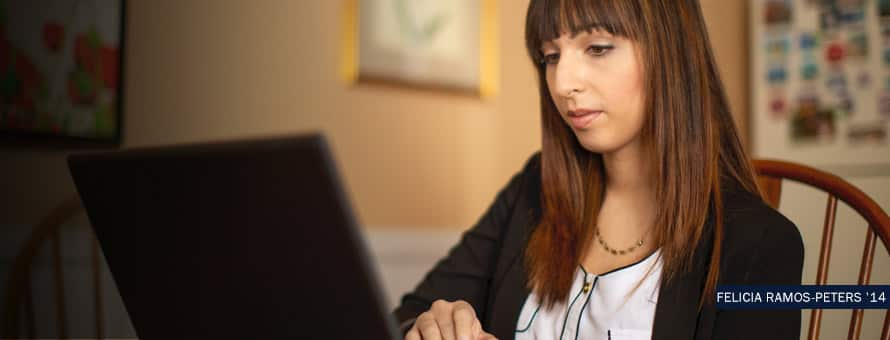
Online MFA in Creative Writing Master of Fine Arts
Earn an MFA in Creative Writing Online
- $637/credit (48 credits total)
- Transfer up to 12 graduate credits
- 100% online – no residency required
- Four fiction genres to choose from
- Career-focused certificate included
- No application fee or GRE/GMAT scores required
Online MFA in Creative Writing Program Overview
Share your story with the world and let the power of storytelling take your career to new heights with an online Master of Fine Arts (MFA) in Creative Writing . As one of the only programs available that encourages a focus on genre fiction, our online MFA lets you hone your craft in an area specific to your strengths and interests. You'll also learn about the business side of creative writing, preparing you to market your work in the real world.
While most MFA programs require a residency, Southern New Hampshire University's online MFA in Creative Writing can be completed entirely online, with no travel necessary.
“Traditional MFA programs, whether full-time or low residency, are out of reach for many writers,” said Paul Witcover , associate dean of creative writing. “The SNHU online MFA was designed to make the MFA experience accessible to all fiction writers, opening the door to diverse voices excluded for too long from the literary conversation. Our program is dedicated to giving writers the tools to succeed on the page and beyond it.”
Graduates leave the program with a completed and revised novel in one of our four offered genres: Contemporary, Young Adult, Romance and Speculative. With the included certificates in either online teaching of writing or professional writing , you'll have the skills to support your writing career, no matter where it takes you.
.st0{fill:#21386D;} What You'll Learn
- The business and technical sides of professional writing
- How to navigate the publishing ecosystem, identify agents and editors, and market your work to appeal to decision-makers
- Using social media to gain a following and build your brand
- How to teach writing in a classroom setting
.cls-1 { fill: #21386d; } How You'll Learn
At SNHU, you'll get support from day 1 to graduation and beyond. And with no set class times, 24/7 access to the online classroom and helpful learning resources along the way, you'll have everything you need to reach your goals.

The Value of an Online MFA
Emily Jones ’20 embraced a transformational experience through the online MFA in Creative Writing program, which supported her in taking her writing career to the next level. “I can now say, without even a hint of imposter syndrome, that I am a writer,” said Jones. “And that is because of Southern New Hampshire University.”
Career Outlook
According to the U.S. Bureau of Labor Statistics, writers and authors made a median annual salary of $69,510 in 2021, while editors made $63,350. 1
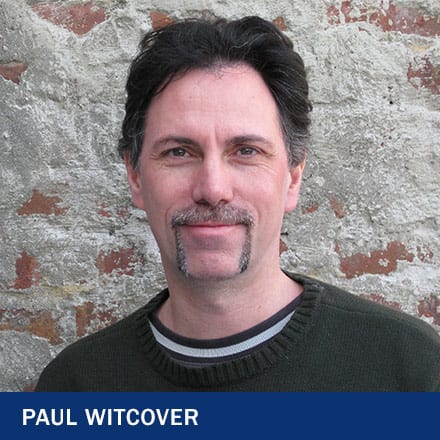
“Our mission is to give students a degree and associated practical skills they can use to forge successful pathways in academia, business, or by blazing their own career trail,” said Paul Witcover , associate dean of creative writing.
Earning one of the included certificates in online teaching of writing or professional writing will also be an invaluable addition to your resume for part-time, full-time and freelance jobs in a variety of fields, including:
- Higher education. Instruct writing courses in higher education settings. In 2021, postsecondary teachers made a median annual wage of $79,640, and you can expect to see a 12% growth in available positions through 2031, according to the BLS. 1
- Advertising. Use your storytelling skills in a way that influences consumer action. As a copywriter, you could find yourself doing any number of writing projects from crafting emails and ads to writing entire commercials.
- Marketing. If you're more comfortable with long-form prose, many businesses have invested in content writers who create quality content such as blog posts, ebooks and podcasts to attract and retain customers.
- Entertainment. Good at building suspense or setting up punchlines? From movies and plays to comedy and podcasts, being a good storyteller and writer is important to finding success in the entertainment industry.
- History. Every person's life has a plot, but it takes writers like you to tell their stories in a compelling way. Help readers relive the experiences of historic figures and pop culture icons as a biographer.
Higher Education
Instruct writing courses in higher education at a college or university, either in-person or online.
Advertising
Influence consumer action through copywriting, from print ads to digital advertising and broadcast commercials.
Create written content such as blog posts, ebooks and podcasts to attract and retain customers.
Entertainment
From movies and plays to comedy and podcasts, writers often find success in the entertainment industry.
The U.S. Bureau of Labor Statistics (BLS) predicts favorable job growth in postsecondary education. And while statistics are not available for all job settings mentioned above, the BLS reports the following:
.cls-1 { fill: #21386d; } Job Growth
The BLS predicts an 8% growth in available postsecondary teaching positions through 2032. 1
.cls-1 { fill: #21386d; } Potential Salary
Writers and authors made a median annual salary of $73,150 in 2022, while editors made $73,080 and postsecondary teachers made $80,840. 1
Understanding the Numbers When reviewing job growth and salary information, it’s important to remember that actual numbers can vary due to many different factors — like years of experience in the role, industry of employment, geographic location, worker skill and economic conditions. Cited projections do not guarantee actual salary or job growth.
Start Your Journey Toward an Online MFA in Creative Writing
If you're looking to earn your Master of Fine Arts online, you've found the right program. Even though there are no residency requirements, you'll still interact frequently with other students and faculty members in asynchronous discussions, critique workshops and within our online writer’s community, where students come together to share industry news, extend writing tips and develop critique partnerships.
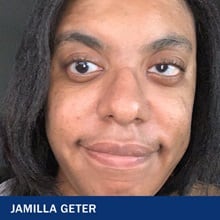
"I liked MFA-514 (Advanced Studies in Genre Literature) best," said student Jamilla Geter . "It was a great look into the different genres. It really helped me narrow down what genre I wanted to write in."
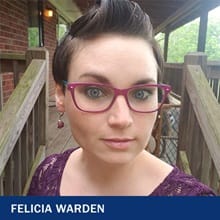
"Though it was not writing exactly, its connection to it – especially in our digital world – was made clear almost immediately," she said. "Writing is not just providing content of value to your readers, but also creating avenues of access so those readers can find your content. This course helped me to understand that and to learn how I can create those avenues."
Besides allowing you to focus on your own creative interests, part of our 48-credit online MFA curriculum requires you to choose from 2 certificate offerings designed to round out your education and better prepare you for a multitude of writing-related careers.
The first choice is a Graduate Certificate in Online Teaching of Writing , which is tailored to those who see themselves teaching in an online classroom setting as a supplement to their writing careers. Students practice approaches to editing and coaching, learning how to establish a virtual instructor presence and cultivate methods for supporting and engaging students within online writing communities.
Learn more about the online teaching of writing graduate certificate .
Students can also choose the Graduate Certificate in Professional Writing , which highlights the technical and business opportunities available to writers. Students will develop a range of skills, such as copywriting, social media, marketing principles and/or content generation, learning many of the freelancing skills integral to today’s project-driven economy.
Learn more about the professional writing graduate certificate .
All of our courses are taught by accomplished authors and industry professionals who know both the craft and business of creative writing. They will work closely with you to develop both your creative and professional skill set.
"All instructors within my program were extremely knowledgeable and helpful," Warden said. "I learned a lot about the different career paths my instructors chose. ... The course instruction, along with their anecdotal experiences, helped in offering knowledge in different areas of our field.
MFA Program Thesis
The thesis for the Online MFA in Creative Writing is required to be a novel of at least 50,000 words in one of the four genres the program offers: Contemporary, Young Adult, Romance, and Speculative.
Every Southern New Hampshire University online MFA student who graduates from the program will do so with a revised novel manuscript in their chosen genre, which is completed in a three-course thesis series. Throughout your tenure in the program, you can either work on a singular idea that you will develop during the three thesis courses, or you can begin a new project for your thesis. You can also combine elements of the four genres offered in the program for your thesis. For example, your thesis might be a YA Speculative Fiction novel.

"My three thesis classes for the MFA degree were the most helpful," said Kathleen Harris '21 . "I was actually writing a book as my thesis, so it was both enjoyable and advantageous for the degree. And it was the end of a very long milestone of accomplishments."
Minimum Hardware Requirements Component Type PC (Windows OS) Apple (Mac OS) Operating System Currently supported operating system from Microsoft. Currently supported operating system from Apple. Memory (RAM) 8GB or higher 8GB or higher Hard Drive 100GB or higher 100GB or higher Antivirus Software Required for campus students. Strongly recommended for online students. Required for campus students. Strongly recommended for online students. SNHU Purchase Programs Visit Dell Visit Apple Internet/ Bandwidth 5 Mbps Download, 1 Mbps Upload and less than 100 ms Latency 5 Mbps Download, 1 Mbps Upload and less than 100 ms Latency Notes: Laptop or desktop? Whichever you choose depends on your personal preference and work style, though laptops tend to offer more flexibility. Note: Chromebooks (Chrome OS) and iPads (iOS) do not meet the minimum requirements for coursework at SNHU. These offer limited functionality and do not work with some course technologies. They are not acceptable as the only device you use for coursework. While these devices are convenient and may be used for some course functions, they cannot be your primary device. SNHU does, however, have an affordable laptop option that it recommends: Dell Latitude 3301 with Windows 10. Office 365 Pro Plus is available free of charge to all SNHU students and faculty. The Office suite will remain free while you are a student at SNHU. Upon graduation you may convert to a paid subscription if you wish. Terms subject to change at Microsoft's discretion. Review system requirements for Microsoft 365 plans for business, education and government. Antivirus software: Check with your ISP as they may offer antivirus software free of charge to subscribers. if (typeof accordionGroup === "undefined") { window.accordionGroup = new accordion(); } accordionGroup.init(document.getElementById('f756dce5bd874c61855f6f6e92d88470')); University Accreditation

Tuition & Fees
Tuition rates for SNHU's online degree programs are among the lowest in the nation. We offer a 25% tuition discount for U.S. service members, both full and part time, and the spouses of those on active duty.
Tuition rates are subject to change and are reviewed annually. *Note: students receiving this rate are not eligible for additional discounts.
Additional Costs: Course Materials ($ varies by course). Foundational courses may be required based on your undergraduate course history, which may result in additional cost.
Frequently Asked Questions

Actor Stephanie Gould Surprised Onstage With Diploma Delivery
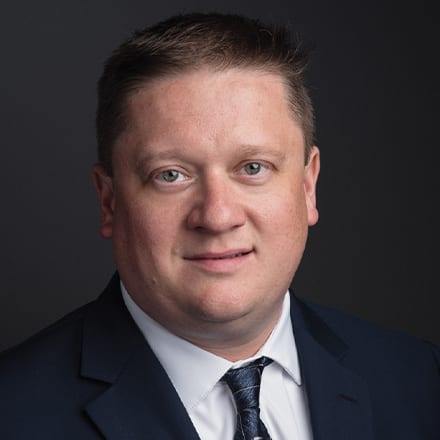
Associate Dean of Liberal Arts Dr. Robert Denning: A Faculty Q&A
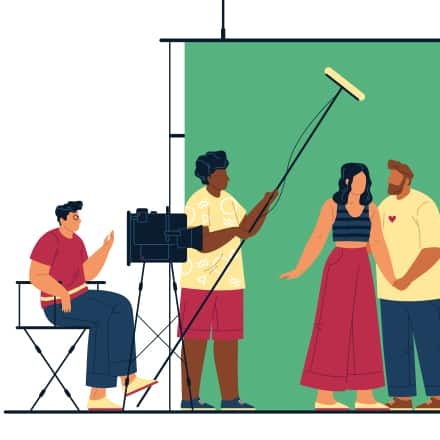
Must-Watch Movies: A Guide for Tomorrow's Filmmakers
Related programs.
Department of English

You are here
Mfa in creative writing.
Our innovative MFA program includes both studio instruction and literature courses. Writers can take workshop courses in any genre, and they can write a thesis in fiction, nonfiction, poetry or “hybrid” (multi-genre) form. In the second year, they teach popular Creative Writing courses to Davis undergraduates under faculty supervision, gaining valuable experience and sharing their insight and enthusiasm with beginning practitioners.
Questions? Contact:
Sarah Yunus Graduate Program Coordinator, MFA Program in Creative Writing [email protected] (530) 752-2281 Pronouns: she/her
Admissions and Online Application
Events, Prizes, and Resources
At UC Davis, we offer you the ability to fund your MFA. In fact, all students admitted to the program are guaranteed full funding in the second year of study, when students serve as teachers of Introduction to Creative Writing (English 5) and receive, in exchange, tuition and health insurance remission as well as a monthly stipend (second year students who come to Davis from out of state are expected to establish residency during their first year). We have a more limited amount of resources – teaching assistantships, research assistantships, and out of state tuition wavers – allocated to us for first year students, but in recent years, we’ve had excellent luck funding our accepted first years. We help students who do not receive English department funding help themselves by posting job announcements from other departments during the spring and summer leading up to their arrival. We are proud to say that over the course of the last twenty years, nearly every incoming student has wound up with at least partial funding (including a tuition waiver and health insurance coverage) by the time classes begin in the fall.
We have other resources for students, too – like the Miller Fund, which supports attendance for our writers at any single writer’s workshop or conference. Students have used these funds to attend well-known conferences like AWP, Writing By Writers, and the Tin House Conference. The Davis Humanities Institute offers a fellowship that first year students can apply for to fund their writing projects. Admitted students are also considered for University-wide fellowships.
Cost of Attendance
The M.F.A. at Davis is a two-year program on the quarter system (our academic year consists of three sessions of ten-week courses that run from the end of September until mid-June). The program includes classes and a thesis project. It requires diverse, multidisciplinary study and offers excellent mentorship.
Writers concentrate in fiction, nonfiction, poetry, or “hybrid” (multi-genre) forms. They take at least four graduate workshops, and they’re required to take one workshop outside their primary genre (many of our students choose to take even more). Writers at Davis also take graduate courses in literature from abundant options, including the program’s Seminars for Writers. Writers can also take graduate courses in literary study taught by scholars in the English Department. And many of our writers enroll in courses relevant to their work in other departments like art history, comparative literature, linguistics, and performance studies.
At the end of the first year, writers form a thesis committee with a Director and two additional readers from the faculty. In the second year, writers at Davis concentrate on Individual Study units with these mentors, working closely with their committee to create a book-length creative work. Writers present their projects at intimate, intense, celebratory defense in May with all members of their committee in attendance.
We’re a new MFA, but we’ve been a successful and respected Creative Writing Program since 1975—a “sleeper” program, as one guide to MFA programs called us. The people who founded the CW program at UC Davis were all lovers and teachers of literature, and chose to call the program an MA, rather than an MFA because they wanted to ensure that the degree would not be seen as a “studio” degree but one in which the study of literature was integral. In the 1980’s and 1990’s, most often under the leadership of Jack Hicks and Alan Williamson, the program emphasized writing on the American West and the wilderness. Our high profile faculty included Sandra McPherson, Gary Snyder, Sandra Gilbert, Clarence Major, Katherine Vaz, Elizabeth Tallent, Max Byrd, and Louis Owens.
We also created an introductory sequence of workshops taught by graduate students, which has become one of the highlights of the program for the second years who teach the courses and the undergraduates who take them. There’s more to teaching these courses than learning to teach; teaching helps our writers understand their own writing in ways that no other aspect of a writing program can do. Pam Houston joined the program in the early 2000’s and she led a faculty that included Lynn Freed and Yiyun Li. As an MFA, we remain a place that values sustained literary study as core to the making of art, but we’re also allowing our vision of genre to expand and embrace the other arts and media.
The town of Davis began as "Davisville," a small stop on the Southern Pacific railway between Sacramento and the Bay Area. Some of our graduate students choose to live in Sacramento or the Bay Area, making use of the commute-by-train option, which is still very much in place. For those commuting by car, Davis is a 15-25 minute drive from Sacramento and a 60-90 minute drive from the Bay Area.
Students also choose to live in Davis itself, which CNN once ranked the second most educated city in the US. Davis is a college town of about 75,000 people. Orchards, farms and ranches border it on all sides. The town boasts a legendary twice-weekly farmers market (complete with delicious food trucks and live music). Bike and walking paths lead everywhere (many students prefer not to own a car while they are here) and there are copious amounts of planned green space in every subdivision. The flatness of the land makes Davis ideal for biking, and the city over the past 5 decades has installed bike lanes and bike racks all over town. In fact, in 2006, Bicycling Magazine , in its compilation of "America's Best Biking Cities," named Davis the best small town for cycling. Packed with coffee houses, bookstores, and restaurants that serve cuisine from every continent, Downtown Davis has a casual vibe. It’s a great place to hole up and write. Davis is filled with hard wood trees, and flower and vegetable gardens, and wild ducks and turkeys walk the campus as if they own the place. It’s a gentle place to live. Although summers get quite hot, the other three seasons are mild, and each, in their own way, quite beautiful. For more about the town, check out the Davis Wikipedia page .
Woodland and Winters, two small towns close by to Davis, are also options for housing—and they’re good options for those who are not so desirous of the college town scene. Yet another option is to live in the scenic rural areas Davis is surrounded by.
To the west of Davis, Lake Berryessa and the Napa valley are close by. To the east, the Sierra mountains are close by; Reno and Tahoe are just a couple hours drive in that direction.
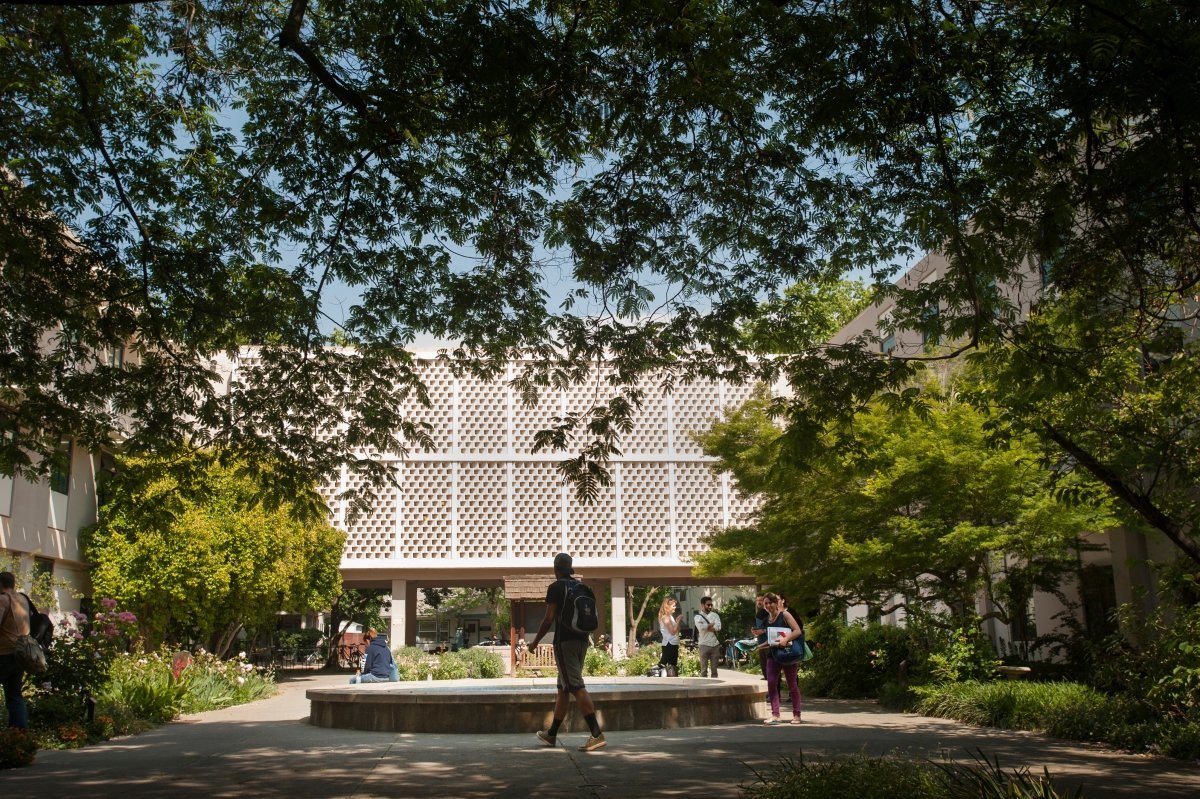
- search close Search search
- Academics Overview
- Majors & Programs
- Colleges & Schools
- Career Outcomes & Internships
- Academic Calendar & Resources
- Belmont Online
- Admissions & Aid Overview
- First-Year Students
- Transfer Students
- Graduate & Professional Students
- Adult Degree Students
- International Students
- Military Students
- Life at Belmont Overview
- Student Life & Leadership
- Housing & Dining
- Safety & Security
- Health & Wellbeing
- Student Success & Flourishing
- Spiritual Life
- Graduate Student Life
- Living In Nashville
- Belmont Stories
- About Belmont
- Belmont at a Glance
- Diversity, Equity, Inclusion & Belonging
- Christian Identity
- Our History
- Our Strategic Path to 2030
- Conservation & Sustainability
- University Leadership
- Request Info
- Visit Belmont
- Events Calendar
- Faculty & Staff
- Parents & Family

- Creative Writing, MFA
Request Information
Ready to apply.
Start Your Application
College of Liberal Arts & Social Sciences
Danielle Walden Admissions Coordinator (615) 460.8340
Email Danielle
College Links
Why study creative writing .
In Belmont's MFA in Creative Writing at Belmont, you will take courses designed to build on strengths and knowledge from your undergraduate experiences, broaden your awareness of literature and writing and prepare you for the life of a writer.
The graduate faculty is committed to fostering the skills of critical reading as well as creative writing and increasing student expertise in their chosen genre of study: fiction, poetry or creative nonfiction.
The pursuit of an MFA in Creative Writing may begin as a place to hone your craft as a writer, and many successful career novelists and freelance writers graduate from MFA programs. The intensive writing experience of an MFA will train you for a variety of careers in journalism, marketing, public relations, arts administration, publishing, library science, content creation and education.
We welcome you to explore what the MFA in Creative Writing at Belmont University can provide. We would love for you to join our community of working writers, guided by faculty members who are accomplished writers themselves and who will guide you toward being writers who engage with their core beliefs–intellectually, spiritually, and personally– to serve with humility, as a reflection both of who you are and the stories you must learn to tell.
Goals of Belmont’s Master of Fine Arts Program in Creative Writing:
- Promote effective, creative and reflective reading, writing and imaginative thinking
- Present literature and the craft of writing within historical and cultural contexts
- Introduce students to diverse strategies for interpreting literature of others and of their own
- Explore the structures, complexities and development of creative writing genres
- Integrate local and global learning experiences into the curriculum taught by working writers;
- Develop skills necessary to be a working writer by employing current professional standards and emerging technologies–and to think critically about these resources and tools;
- Engages students in independent research and long-term writing projects, such as a thesis
Career Possibilities
- Public Relations
- Arts Administration
- Library Science
- Content Creation
Program Details
Courses you'll take add.
See All Program Requirements
Courses You'll Take
This course undertakes a multi-lensed look at the study of English at the graduate level via a comparative study of writing pedagogies and of theoretical approaches to the study of literature. Required for M.F.A. in Creative Writing students.
This course studies the craft of fiction through close-reading of contemporary fiction and intense practice of related craft techniques.
An intensive workshop-style course devoted to reading, writing, analyzing, and critiquing contemporary fiction and student work. Recommend pre-requisite Craft of Fiction.
This course is devoted to studying the craft of poetry through close-reading and intense practice of craft techniques.
An intensive workshop-style course devoted to reading, writing, discussing, and critiquing contemporary poetry and student work. Recommend pre-requisite Craft of Poetry.
This course studies the craft of creative nonfiction through close-reading of creative nonfiction and intense practice of related craft techniques.
An intensive workshop-style course devoted to reading, writing, discussing, and critiquing contemporary creative nonfiction and student work
Serves as the culminating experience of the MFA in Creative Writing. Across the two semesters of enrollment in this course, each student will produce a book-length manuscript of literary merit and publishable quality in the genre of their choice. To assist them with this task, each student will select a Thesis Director and supporting committee to provide guidance and advice. ENG 6900 is a Pass/Fail course with specific benchmarks to be achieved during each semester of enrollment.
Presents important works of literature of the world from beginnings to Enlightenment. This course establishes a historical perspective while seeking to encourage both comparative perspective and common ground among works from European tradition and several non-Western cultures.
Readings emphasizing the historical development of British literature from a broad spectrum of representative works from Old English up to the Elizabethan period.
Readings emphasizing the historical development of British literature from a broad spectrum of representative works from the Elizabethan period through the eighteenth century.
Readings emphasizing the historical development of American literature from a broad spectrum of representative works, from beginnings through the Civil War.
Presents important works of literature of the world from the Enlightenment to the present. This course establishes a historical perspective while seeking to encourage both comparative perspective and common ground among works from European tradition and several non-Western cultures.
Readings emphasizing the historical development of British Literature from a broad spectrum of representative works from the Romantic period through the present.
Readings emphasizing the historical development of American Literature from a broad spectrum of representative works from the Civil War to the present.
Each offering of this course will be devoted to the in-depth study of one, or at most two, author(s). These authors range from Chaucer and/or Shakespeare to Jane Austen, E.M. Forster, Walt Whitman, Emily Dickinson, Adrienne Rich, Joan Didion, as examples, etc. Deep knowledge of an author’s (or two author’s) oeuvre, not historical coverage, is the chief goal of the course. May be repeated once for up to six hours.
Each offering of this course will provide a critical introduction to a single genre of writing. Seminar topics may include everything from the novel, short story, poetry, and drama, to nature or travel writing, the graphic novel, ethnography, and memoir, etc. Deep knowledge of the genre, not historical coverage, is the seminar’s chief goal. May be repeated once for up to six credits.
Under the supervision of faculty who are teaching an undergraduate course, students will assist and participate in all phases of the teaching process: preparation, classroom instruction, evaluation, etc. The supervising faculty member and student should develop a contract about work to be completed by the student and the study / reading component to be undertaken together, taking into account the number of credit hours; students taking 3 credit hours in the Practicum, making it the equivalent of a full course, should also write a substantial essay about teaching, their own teaching experiences and learning processes, etc. Course is repeatable two times total, but maximum credit earned in ENG 5720 is 3 credit hours.
This course introduces students to pedagogies used in teaching literature, language and / or writing. In addition to reading and discussing the various pedagogical approaches, students will apply them by assisting a professor in teaching, tutoring, and / or conferencing with students on their papers. Other related assignments will include writing learning goals, designing assignments, developing rubrics and other assessments tools, etc.
The origins and development of the English Language are studied in the context of linguistics and socio-political influences. Attention is also paid to the on-going processes affecting modern English.
The course provides a basic overview of composition theories: audience analysis, writing process theory, writing to learn theory, discourse theory, invention in the rhetorical tradition. Other topics include evaluation, electronic discourse, and grammar.
Various study-abroad opportunities are available through Belmont.
Each offering of this course will address a different topic or theme from disciplines of writing, rhetoric, and / or composition. Topics may include Writing about Place, Writing and Social Issues, Writing and Identity, and others. May be repeated twice for credit up to six hours
An exploration of theories of gender; examines constructions and manipulations of gender in a variety of literary texts.
Each course offering will address a different topic, issue, or theme from the disciplines of literature and/or critical theory. Deep knowledge of a topic, issue, or theme is the chief goal of the seminar. May be repeated twice for credit up to six hours.
This course, which will vary in focus with individual offerings, builds on basic understanding of English grammar from History of the English Language by focusing on special topics in Advanced English Grammar and Linguistics. Course is repeatable once with different topics.
Admissions Information add
Application deadline.
Fall: August 1
Admissions Requirements
- Application Form: Apply Online using the BU4U application portal.
- Application Fee: Submit a $50 non-refundable application fee.
- Official Transcripts: Applicants must have an undergraduate degree with a GPA of 3.0. Official transcripts showing all collegiate work should be sent to: Belmont University Office of Admissions, 1900 Belmont Blvd, Nashville TN 37212-3757. Official electronic transcripts can be accepted, and must be sent through a secure third party (i.e. Student Clearinghouse, or Parchment). Request them be sent to: [email protected].
- Recommendations: Two academic and/or professional recommendations are required. These are only received through the online application portal. Neither recommendations may be from a relative and at least one must be from a professor.
- Statement of Purpose: Submitted as part of the application, the statement of purpose is an essay of less than 500 words from one of the following topics: 1) Your goals for an M.F.A. in Creative Writing 2) Your reasons for pursuing an M.F.A. in Creative Writing 3) Your genre interest (Fiction, Poetry or Creative Nonfiction) 4) If your background is not in English or Creative Writing, your strengths in preparation for this program.
- Writing Sample: The writing sample should be a creative writing sample in your preferred genre of study (poetry, short story or novel excerpt, or creative nonfiction). Please contact the director of the program if you have questions.
- Interview: Applicants may be invited to interview with us as part of the application process. This informal interview will give us a chance to answer any questions, and will help us learn a little more about you and your interests in creative writing.
Application Status: Applicants are accepted on a rolling admissions pattern; thus, you will be notified of the admissions committee's decision shortly after the admissions portfolio is completed. To check on the status of your application, check your BU4U portal .
Tuition & Aid add
Financial Aid
There are several types of federal financial aid available to graduate students. Please visit our Graduate Admissions & Aid website to learn more.
Assistantships
Graduate Assistantships are available through the Office of Student Organization and Activities each year. Applications are due in early Spring.
Internships, Fellowships and Employment
Internships, fellowships, and part-time employment help fund the cost of graduate school while giving valuable career enrichment experience.
Opportunities include tutoring positions and summer teaching associateships at Belmont's Writing Center, employment at the library and internships at local independent schools. Application deadlines vary, but most applications are due in early Spring. Please contact the Director of Graduate Studies for more information.
Scholarships
We offer partial scholarships to full-time students on a competitive basis. In addition, we also offer partial reimbursement for research and conference travel.
There are also several sources of external scholarships available, such as these scholarships offered by West End United Methodist Church for those who are in or pursuing careers in teaching.
Employee Tuition Reimbursement
Many companies offer tuition reimbursement for graduate school, including Vanderbilt University, Comcast, AT&T, Procter & Gamble, UPS, Wells Fargo, Bank of America and Best Buy. Check with your employer to see if they offer reimbursement.
Military Benefits
Military members qualify for financial assistance, and Belmont University is a Yellow Ribbon University. For more on military benefits, click here .
Tuition and Fees
Click here to determine your total estimated costs per semester for courses in the Graduate English program.

Alumni Testimonial
"When I started grad school, I didn’t have much direction. I knew I loved reading and writing, but I wasn’t sure where that could take me. During my time in the English graduate program at Belmont University, I discovered that I wanted to be an author, and I wrote the story that eventually became my first novel. I will forever be grateful for my time in the program because it taught me to never give up on my dreams, and showed me that I am capable of more than I ever imagined."
Dr. Kai Harris | Award-winning author of What the Fireflies Knew

Faculty Testimonial
"Writers have long searched for mentorship, instruction and community in their educational journeys toward mastery, mastery both of craft and, through modeling, of pedagogical strategies appropriate to creative writing instruction. Additionally, reading and writing are acts of love and survival pursued for the intense pleasures of creativity and imagination, and for the human need to communicate. The Belmont University MFA in Creative Writing will blend mentorship, instruction, and community-formation that will allow our students to achieve mastery under the tutelage of working writers/professors."
Dr. Gary McDowell | Director of MFA in Creative Writing & Professor

These are the Best Creative Writing MFA Programs in the U.S.
This article offers a comprehensive guide to the top Creative Writing Master of Fine Arts (MFA) programs in the U.S., tailored for aspiring writers aiming to refine their craft in poetry, fiction, or creative nonfiction. Highlighting the importance of faculty expertise, alumni success, curriculum diversity, financial support, and location, it delves into what makes each program stand out. Featured programs include the Iowa Writers’ Workshop, known for its prestigious alumni and faculty; the University of Michigan’s Helen Zell Writers’ Program, offering generous funding; and the Columbia University School of the Arts, with its unparalleled access to the New York literary scene. These programs are evaluated on their ability to provide a nurturing environment for writers to develop their voice and style, alongside offering practical advice on navigating the literary world.
Reflection Questions
- Many MFA programs are intense and require a significant time commitment. How do you plan to balance writing, workshops, and any teaching responsibilities with your personal life and possibly other professional obligations?
- Considering the diversity of faculty and the curriculum, how important is representation to you in an MFA program? How do you hope to see your own experiences and perspectives reflected in the program?
- Receiving and giving feedback is a cornerstone of MFA programs. How do you approach critique, both in giving it to others and receiving it about your work? How do you plan to use critique to further your development as a writer?
Journal Prompt
Think about the stories of women that have influenced you the most. How do these narratives shape your own writing? Write about how you plan to contribute to the landscape of female narratives within the literary world through your work.
Creative Writing Master of Fine Arts (MFA) programs play an important part in shaping the careers of aspiring writers, offering them a structured environment to hone their craft. The evaluation of these programs hinges on several key factors: the expertise and reputation of the faculty, the success and influence of alumni, the rigor and diversity of the curriculum, the availability of financial support, and the geographical location which can influence literary connections and opportunities. In this article, we will provide an in-depth analysis of the leading Creative Writing MFA programs in the United States, scrutinizing each of these criteria to guide prospective students in making informed decisions about their educational and professional trajectories in the field of creative writing. Whether you seek a poetry MFA program or one in creative nonfiction, read on to learn about the best MFA programs for creative writing students below.
The Role of MFA Programs in Creative Writing
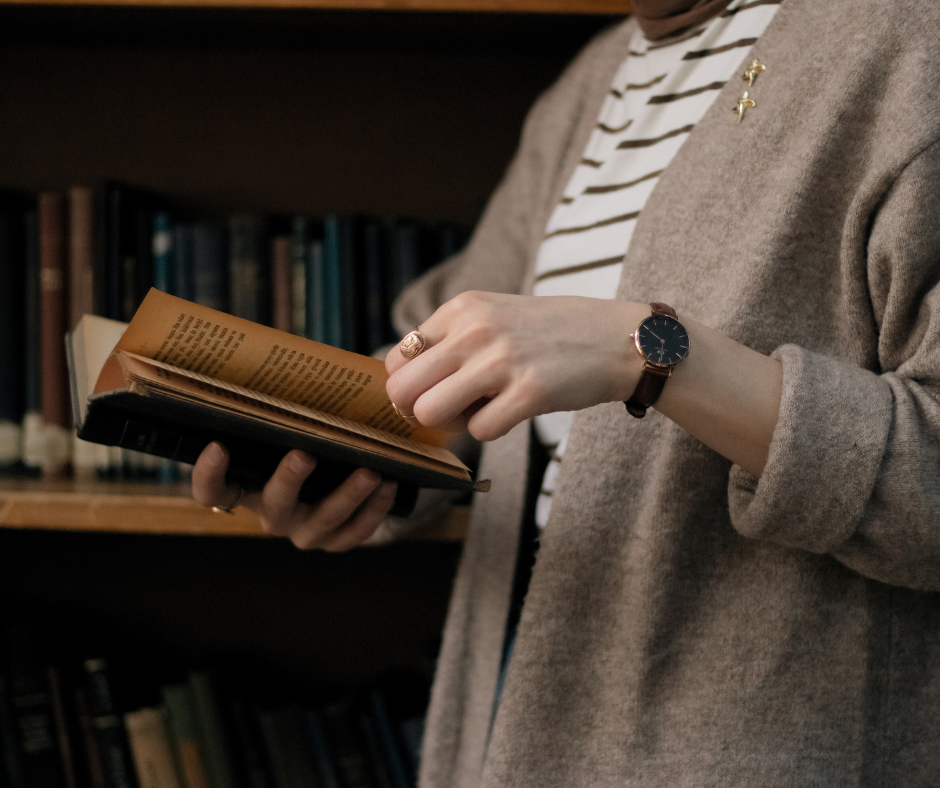
MFA programs in Creative Writing fundamentally contribute to a writer’s development by providing a structured and rigorous academic environment. These programs are designed to immerse students in a world of literary critique and craft, offering dedicated time for writing, reflection, and improvement.
Through workshops, seminars, and individual mentoring, students gain critical feedback on their work, learn to refine their voice, and explore various genres and techniques. This intensive focus on writing, combined with exposure to a breadth of literary styles and theories, equips aspiring writers with the skills and knowledge necessary to advance their craft and develop a unique literary style.
Fuel your creative fire & be a part of a supportive community that values how you love to live.
subscribe to our newsletter
Community and networking opportunities in mfa programs.
MFA programs offer significant community and networking opportunities, serving as a nexus for like-minded individuals passionate about writing. These programs foster a sense of community through collaborative workshops, readings, and group discussions, creating an environment conducive to sharing ideas and experiences.
Networking opportunities with established writers, publishers, and literary agents are often facilitated by the program, providing students with valuable industry connections. Alumni networks further extend these opportunities, allowing graduates to remain connected to a supportive literary community that can play a crucial role in their professional development and success in the literary world.
What is the Coursework Like?
The coursework for a Master of Fine Arts (MFA) in Creative Writing is designed to provide students with a comprehensive and immersive experience in writing, critical analysis, and literary theory. While specific course offerings and structures can vary by program, there are several common elements found across most MFA programs that graduate students can expect. These include the following.
Writing Workshops : These are the cornerstone of most MFA programs. Workshops focus on the student’s own writing, providing a space for peer review and critical feedback. Students typically submit their work—be it poetry, fiction, nonfiction, or another genre—and the class discusses each piece in detail, offering constructive critiques. These workshops are often led by experienced visiting writers and faculty members who can help guide the writing process as you pursue your graduate degree.
Literature Classes : Literature courses are a staple of many MFA programs. They offer a study of literary works from various genres, periods, and cultures. These courses are designed to give students a deeper understanding of literary traditions, styles, and techniques, which can then be applied to their own writing.
Craft Classes : Focusing on specific aspects of writing, such as narrative structure, character development, or dialogue, craft classes help students refine their skills in particular areas of writing. These might also include studies in genre-specific writing, like mystery, fantasy, or memoir.
Electives : Many programs offer elective courses that allow students to explore areas outside of their primary genre or delve into specialized topics like screenwriting, children’s literature, or digital storytelling.
Thesis or Capstone Project : Most MFA programs culminate in a thesis or capstone project. This typically involves creating a substantial body of work, such as a novel, a collection of short stories or poems, or a nonfiction manuscript. The project is usually completed under the guidance of a faculty advisor.
Professional Development : Courses or workshops focused on the business side of writing, such as publishing, literary agent representation, and marketing, are also common. These are designed to prepare students for the practical aspects of a writing career.
Guest Lectures and Readings : Many programs bring in established writers, editors, and literary agents to speak with students, providing insights into the literary world and opportunities for networking.
Teaching Opportunities : Some programs offer teaching assistantships, where MFA students teach undergraduate writing courses. A graduate teaching assistantship provides valuable teaching experience and often helps with funding. Low residency programs in particular offer these opportunities.
Top Creative Writing MFA Programs in the U.S.

The United States boasts a range of top-tier Creative Writing MFA programs, each with its unique strengths and focus. Many are low-residency MFA programs with both incredible tenured professors and amazing visiting faculty. Let’s take a look at a few creative writing programs.
The Iowa Writers’ Workshop at the University of Iowa, a pioneer in the field, is known for its tradition of producing distinguished writers. Columbia University’s program in New York City stands out for its comprehensive approach and proximity to the publishing world.
The Helen Zell Writers’ Program at the University of Michigan offers an intimate setting with a strong emphasis on community and craft. The Michener Center for Writers at the University of Texas at Austin distinguishes itself with its interdisciplinary approach and generous funding.
Other notable programs include those at New York University, Brown University, the University of Virginia, and Johns Hopkins University, each offering a blend of rigorous coursework, accomplished faculty, and a supportive writing community. Let’s delve deeper into these and a few more of the top graduate creative writing programs below. Bear in mind that the following MFA creative writing programs are not listed in any particular order.
Iowa Writers’ Workshop, University of Iowa
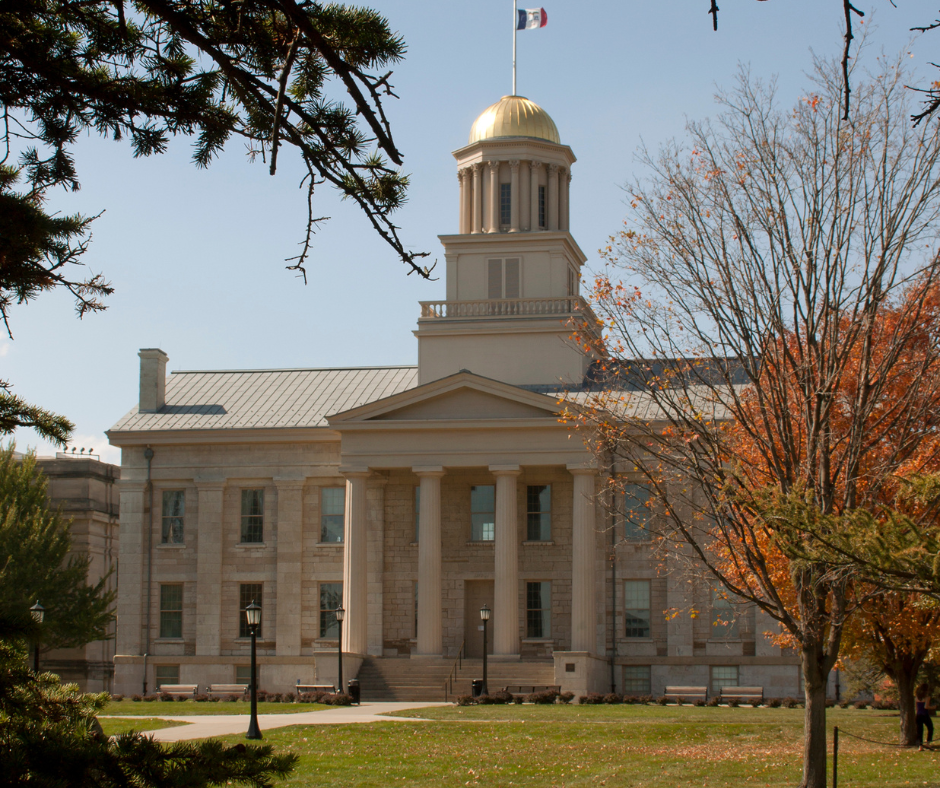
The Iowa Writers’ Workshop at the University of Iowa stands as one of the most prestigious Creative Writing MFA programs in the United States. Renowned for its history of nurturing successful writers, the program has been a seminal influence in the literary world. Incoming MFA students will walk in the footsteps of incredible writers like John Irving and Flannery O’Connor.
The workshop model of teaching, which fosters peer review and close interaction with faculty, has been instrumental in shaping the skills of budding writers. The program’s alumni include numerous Pulitzer Prize winners and acclaimed authors, underlining its significant impact on the literary landscape.
Iowa Writers’ Workshop Alumni
The Iowa Writers’ Workshop at the University of Iowa is renowned for its impressive roster of alumni, many of whom have achieved significant acclaim in the literary world. Some well-known alumni include the following.
Flannery O’Connor: An American novelist and short story writer known for her sardonic, Southern Gothic style and often grotesque characters.
John Irving: A bestselling novelist and screenwriter, famous for works such as “The World According to Garp” and “A Prayer for Owen Meany.”
Jane Smiley: A Pulitzer Prize-winning author, recognized for her novel “A Thousand Acres,” which is a modernized retelling of Shakespeare’s “King Lear.”
Michael Cunningham: Known for his novel “The Hours,” which won the Pulitzer Prize for Fiction and the PEN/Faulkner Award.
T.C. Boyle: A prolific writer known for his novels and short stories that often reflect on contemporary society and the human condition.
Marilynne Robinson: Celebrated for her novel “Gilead,” which won the Pulitzer Prize for Fiction; she is also known for her essays and teaching at the Workshop.
Columbia University School of the Arts
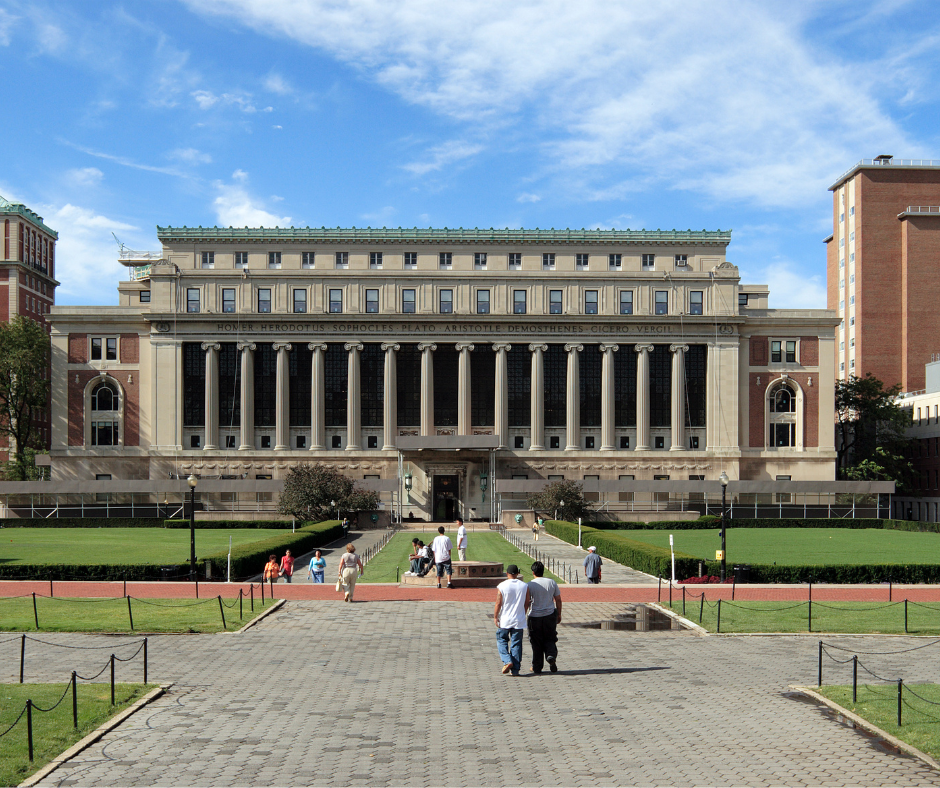
Columbia University’s School of the Arts offers a Creative Writing MFA program known for its rigorous approach and outstanding faculty. Located in the heart of New York City, the program provides students with an immersive experience in one of the world’s most dynamic literary communities.
The curriculum emphasizes not only creative writing skills but also a critical understanding of literary theory and history, supported by a faculty comprising some of the most distinguished writers and intellectuals in the field.
University of Michigan, Helen Zell Writers’ Program
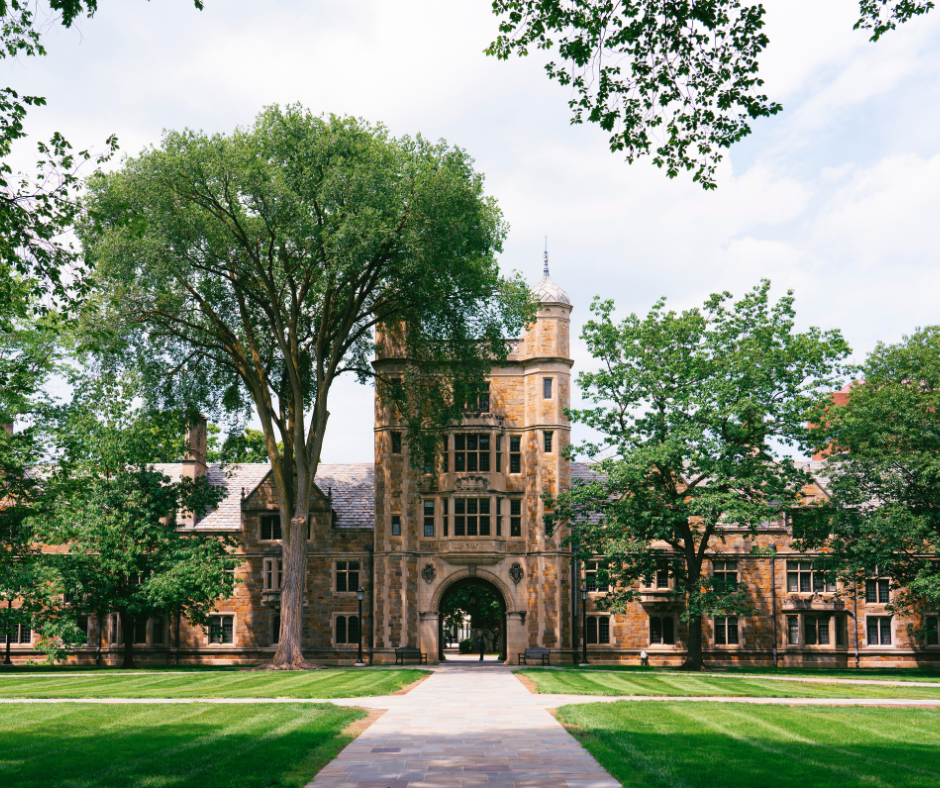
The University of Michigan’s Helen Zell Writers’ Program is celebrated for its unique blend of academic rigor and creative flexibility. This program distinguishes itself by offering a supportive and collaborative environment where students can explore a wide range of writing styles and genres.
The faculty, composed of esteemed writers, provides personalized guidance, ensuring a rich learning experience that fosters both technical skill and artistic expression.
New York University
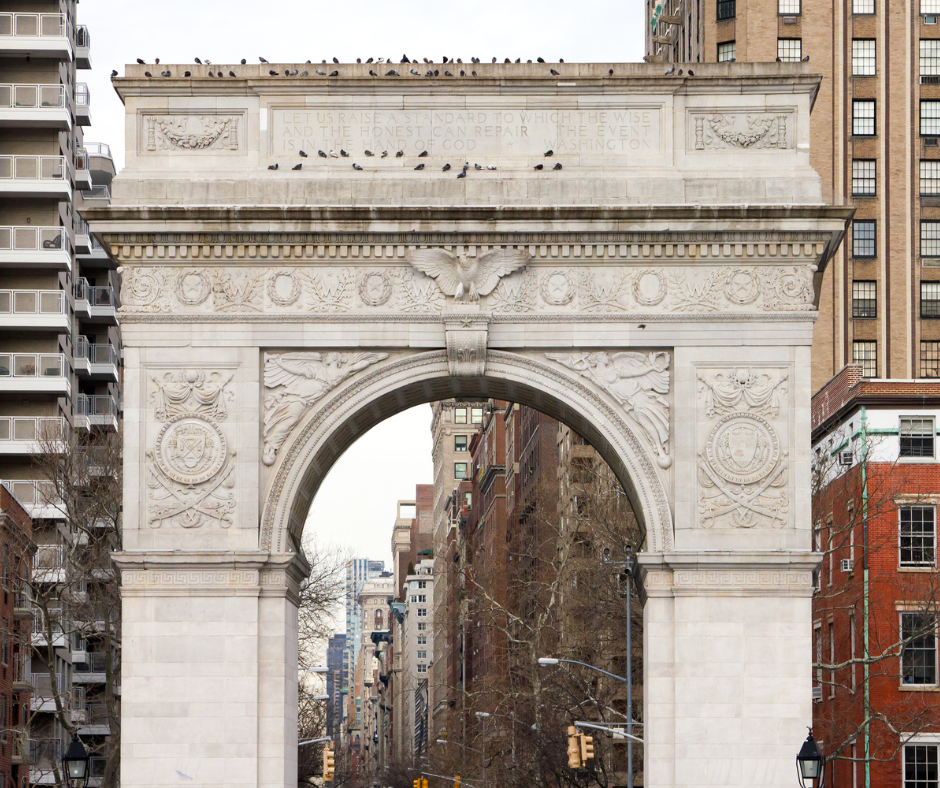
Located in the vibrant literary heart of New York, New York University’s creative writing program is notable for its distinguished faculty and diverse student body. The program offers unparalleled access to the city’s rich cultural life, including readings, workshops, and networking events with industry professionals.
This urban setting, combined with the program’s strong focus on mentorship and development, creates an ideal environment for MFA students to flourish.
The Michener Center for Writers, University of Texas at Austin
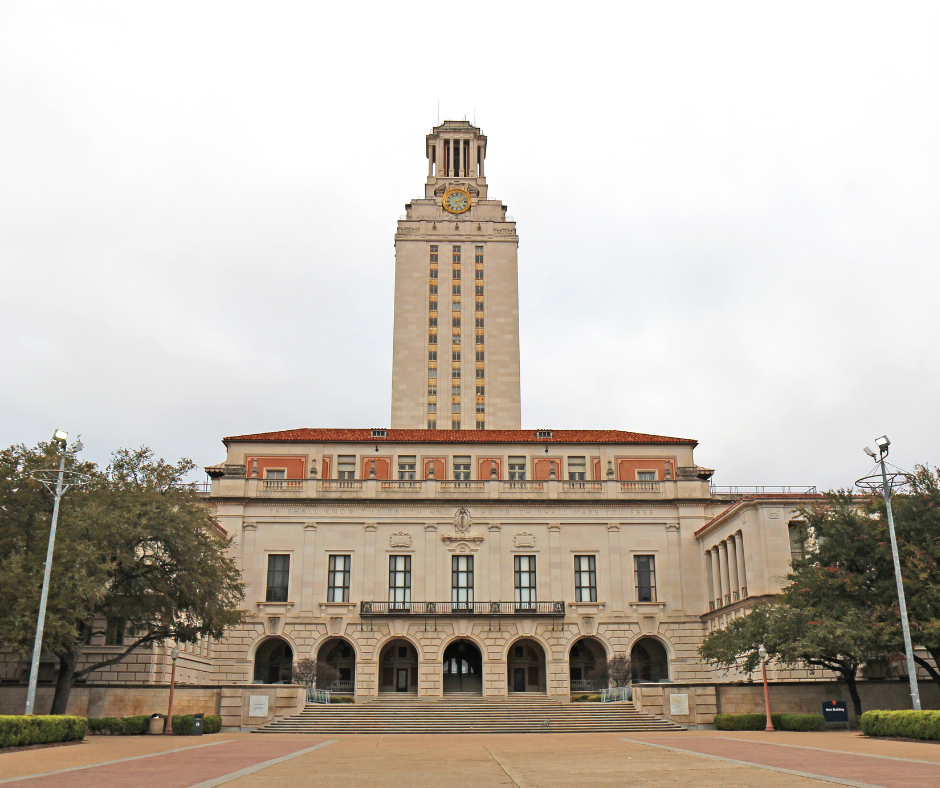
The Michener Center for Writers at the University of Texas at Austin is known for its interdisciplinary approach and generous funding opportunities for students. The program stands out for its emphasis on cross-genre exploration, allowing students to delve into various forms of writing. With its robust funding, the center attracts a diverse group of talented writers, creating a dynamic and supportive community.
Brown University
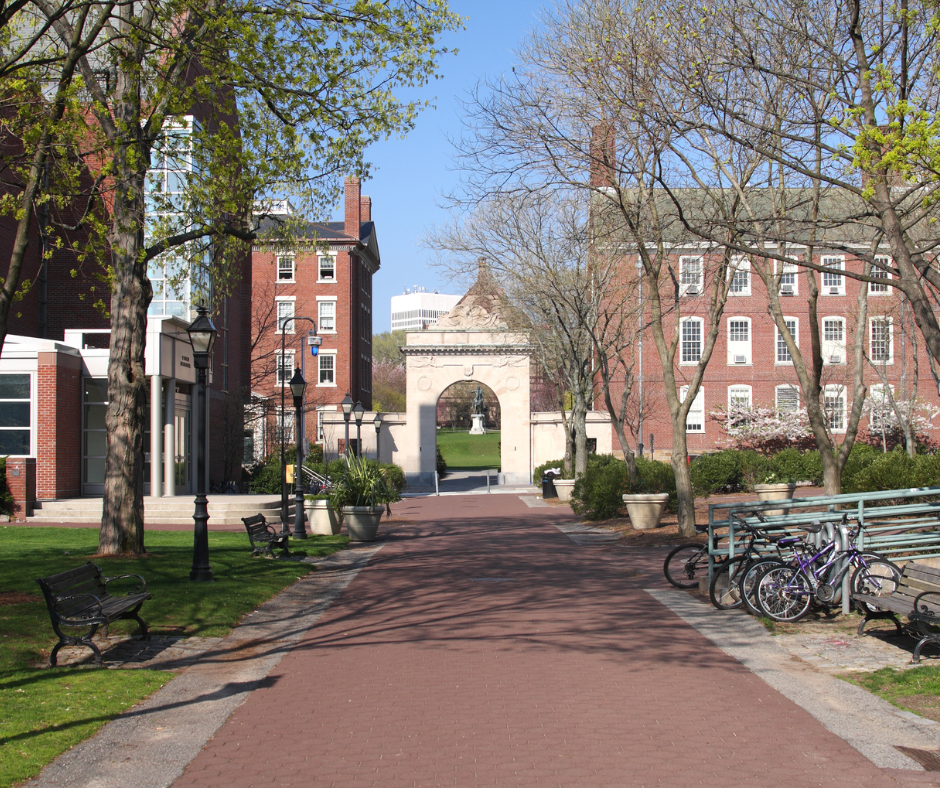
Brown University’s MFA program in Creative Writing is recognized for its innovative approach and strong emphasis on the literary arts. The program encourages experimental and boundary-pushing work, supported by a faculty renowned for their artistic contributions.
Brown’s emphasis on a wide range of literary styles and mediums provides students with a broad and enriching educational experience.
University of Virginia
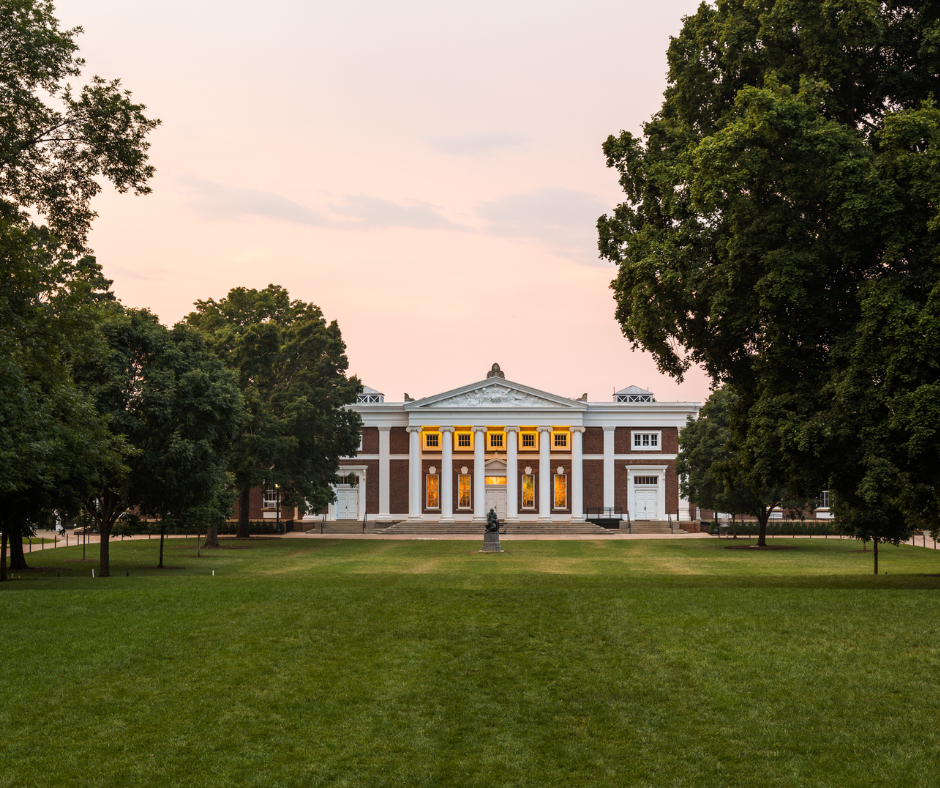
The University of Virginia’s MFA program in Creative Writing boasts a high-quality faculty and a strong alumni network. Known for its selective admissions and intimate class sizes, the program offers personalized attention and mentorship to each student. The alumni success stories speak to the program’s effectiveness in fostering literary talent and career development.
Johns Hopkins University
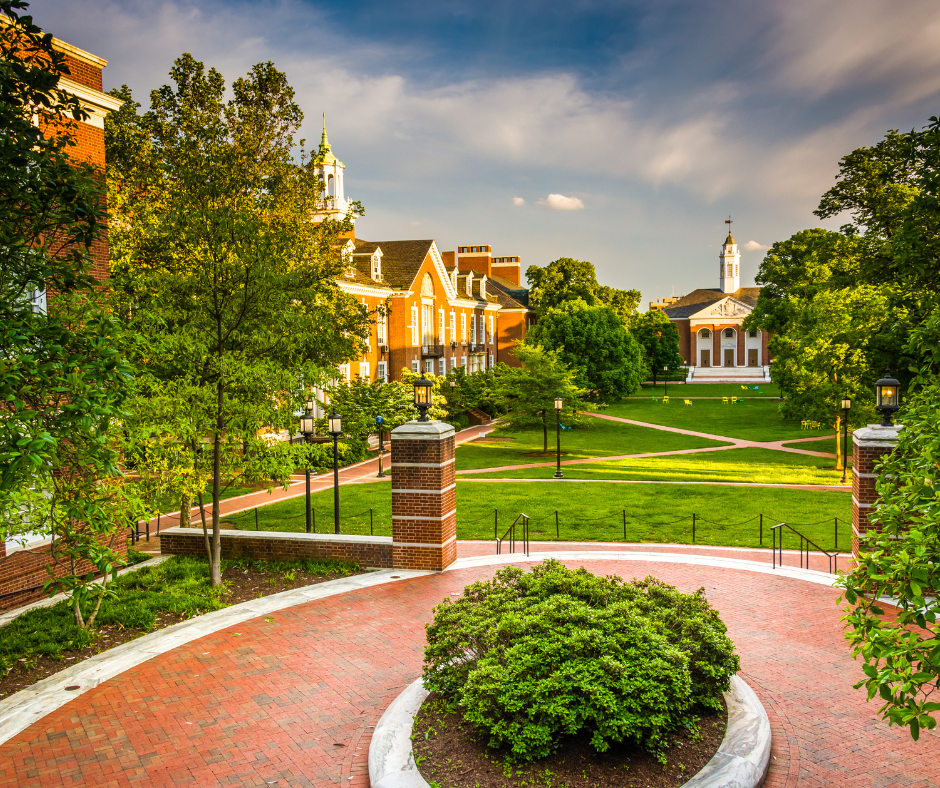
Johns Hopkins University offers a Creative Writing MFA program known for its tight-knit community and focus on craft and theory. The program emphasizes intensive writing workshops coupled with critical analysis, fostering a deep understanding of literary craft. This approach, along with the supportive environment of peers and faculty, makes it an ideal place for writers committed to honing their craft.
University of California, Irvine
The University of California, Irvine’s MFA program is distinguished by its strong emphasis on both critical skills and creative work. The program blends rigorous writing workshops with a theoretical understanding of the craft, offering a comprehensive approach to literary study. This balance ensures that graduate students are well-equipped both as writers and critical thinkers in the literary field.
Boston University
Boston University’s Creative Writing MFA program is renowned for its intensive one-year curriculum and close mentorship. The program offers a fast-paced, deeply immersive educational experience, with a strong emphasis on completing a substantial body of work. The faculty’s close guidance helps students rapidly develop their skills and prepare for a professional writing career.
NEW MASTERMIND OPENING
14 may ’24.
Get unstuck. Find fulfillment. Rediscover your passion for the design industry we all love! Be one of the first to join our next exclusive, curated cohort of creative women and find support like you’ve never had before.
LEARN MORE →

Cornell University
Cornell University’s MFA program offers a diverse range of creative writing courses, supported by an experienced and accomplished faculty. The program is designed to cater to a wide array of interests and styles, allowing students to explore various aspects of creative writing. Cornell’s commitment to literary scholarship and creative excellence makes it a nurturing environment for aspiring writers.
University of Massachusetts, Amherst
The University of Massachusetts, Amherst, features a supportive Creative Writing MFA program that focuses on personal growth as a writer. The program is characterized by its welcoming community and emphasis on individual development. Students are encouraged to find their unique voice and explore their creative potential in a nurturing environment.
M. University of Wisconsin, Madison
The University of Wisconsin, Madison, offers a comprehensive Creative Writing MFA program with a vibrant writing community. The curriculum covers a wide range of genres and styles, providing students with a broad understanding of literary forms and practices. The program’s engaged community and comprehensive approach make it an ideal place for writers seeking both breadth and depth in their literary education.
Stanford University
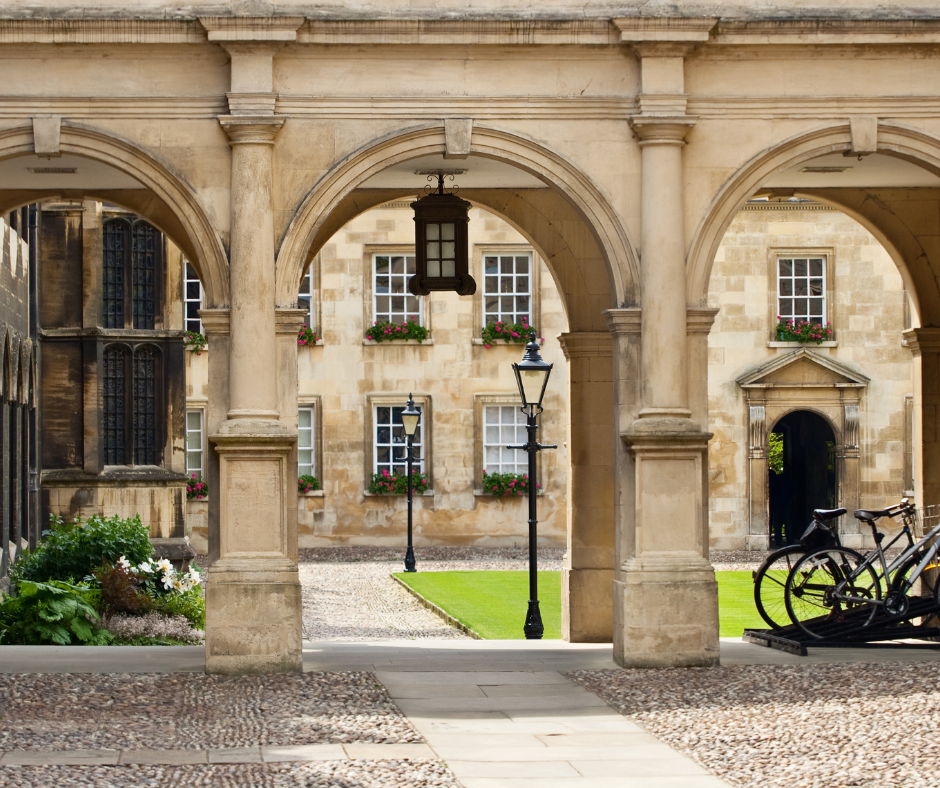
Stanford University’s Creative Writing MFA program is notable for its unique fellowships and focus on creative innovation. The program offers significant financial support and resources, allowing writers to fully immerse themselves in their craft, whether that be fiction, poetry, or another form of creative writing. Stanford’s commitment to creative experimentation and innovation provides an ideal environment for writers looking to push the boundaries of their work.
University of Oregon
The University of Oregon’s MFA program is committed to teaching excellence and provides a supportive learning environment for aspiring writers. The program emphasizes both the artistic and professional aspects of writing, preparing students for a career in the literary world. With a focus on mentorship and development, the University of Oregon offers a nurturing space for writers to grow and succeed.
Other MFA Creative Writing Programs in the United States

Below is a selection of additional notable programs to give creative writing students a broader sense of the options available. Keep in mind this is not exhaustive but includes a range of well-regarded programs.
Syracuse University
Syracuse University’s MFA in Creative Writing is renowned for its rigorous, supportive atmosphere and a strong emphasis on teaching. The program is celebrated for its distinguished faculty and has produced a number of successful writers, such as George Saunders, a recipient of the MacArthur Fellowship and author of several acclaimed books, including “Lincoln in the Bardo.”
Vanderbilt University
Vanderbilt’s MFA program is known for its selective nature and intimate workshop environment, focusing primarily on literary fiction. Alumni include Beth Bachmann, a poet whose work has received significant recognition, including the Kate Tufts Discovery Award for her book “Temper.”
University of Pittsburgh
The MFA program at the University of Pittsburgh offers a balance of creative writing and academic study. Among its alumni is poet Terrance Hayes, a National Book Award winner and MacArthur Fellow, known for his innovative use of language and exploration of identity.
University of North Carolina at Greensboro
UNCG’s MFA program is notable for its strong faculty-student relationships and emphasis on personal growth. Notable alumni include Craig Nova, an award-winning author known for his novels, including “The Good Son.”
University of Florida
The University of Florida’s MFA program emphasizes a balance between creative writing and critical analysis. Alumni include Padgett Powell, known for his novel “Edisto,” which was nominated for the American Book Award.
Indiana University
Indiana University’s MFA program is celebrated for its nurturing environment and community of writers. Notable alumni include poet Ross Gay, whose book “Catalog of Unabashed Gratitude” won the National Book Critics Circle Award.
University of Maryland
The MFA program at the University of Maryland offers a diverse range of courses and workshops. Notably, it has produced alumni like Michael Collier, a poet and former director of the Bread Loaf Writers’ Conference.
University of Alabama
The University of Alabama’s MFA program is diverse in its genre offerings, from traditional literary forms to experimental writing. Its alumni include Alina Stefanescu, a Romanian-American poet and author noted for her unique prose style.
Temple University
Temple University’s MFA program is distinctive for its interdisciplinary opportunities, allowing students to engage with various forms of writing and media. A notable alumnus is Liz Moore, author of the acclaimed novel “Heft.”
University of Arizona
The University of Arizona’s MFA program is known for its strong faculty and commitment to student development. Alumni include Ander Monson, a versatile writer known for his essays, poetry, and fiction.
George Mason University
George Mason University’s MFA program offers a well-rounded approach with a diverse faculty. Notable alumni include Jennifer Atkinson, a poet whose work has been widely published and praised.
Louisiana State University
LSU’s MFA program places a strong focus on literary craft and theory. Among its alumni is Moira Crone, a novelist and short story writer recognized for her narrative craftsmanship.
University of Nevada, Las Vegas
UNLV’s MFA program stands out for its international emphasis, offering students a global perspective on literature. Notable alumni include Claire Vaye Watkins, author of “Battleborn,” which received critical acclaim.
Oregon State University
OSU’s MFA program is distinct for its emphasis on community outreach and engagement, preparing students for a career in writing and teaching. Alumni include Marjorie Sandor, an award-winning author known for her short stories and essays.
University of New Hampshire
UNH’s MFA program is recognized for its supportive faculty and commitment to student development. Notable alumni include Tom Barbash, known for his novel “The Last Good Chance.”
Tips for Financing Your Creative Writing Degree

The financial aspect of pursuing a Creative Writing MFA can be significant, with tuition costs varying widely among programs. Many students will require some form of financial aid. Top-tier programs often have higher tuition fees, reflecting their prestigious faculty and comprehensive resources.
However, many of these programs offer a range of scholarships and fellowships to alleviate the financial burden. Scholarships may be merit-based, recognizing exceptional writing talent, while fellowships often provide a stipend for living expenses in addition to tuition waivers.
Some programs, like the Michener Center for Writers at the University of Texas, are known for offering generous funding packages to all students. A few are fully-funded MFA programs. Prospective students should thoroughly research the funding opportunities available at each program to understand the financial commitment required.
Ways to Finance Creative Writing Degrees
Financing an MFA in Creative Writing requires careful planning and exploration of various funding sources. Applicants should start by seeking information on scholarships and fellowships directly from the programs they are interested in, as these can significantly reduce the cost. Additionally, teaching assistantships, where students teach undergraduate classes, can provide a salary and tuition remission.
External scholarships and grants, available through literary organizations and foundations, are also worth exploring. Students should also consider federal and private student loans, though these should be approached cautiously due to the long-term financial commitment they entail. Lastly, maintaining part-time employment or freelance writing during the program can offer financial support and practical experience in the field.
Career Prospects After Graduation
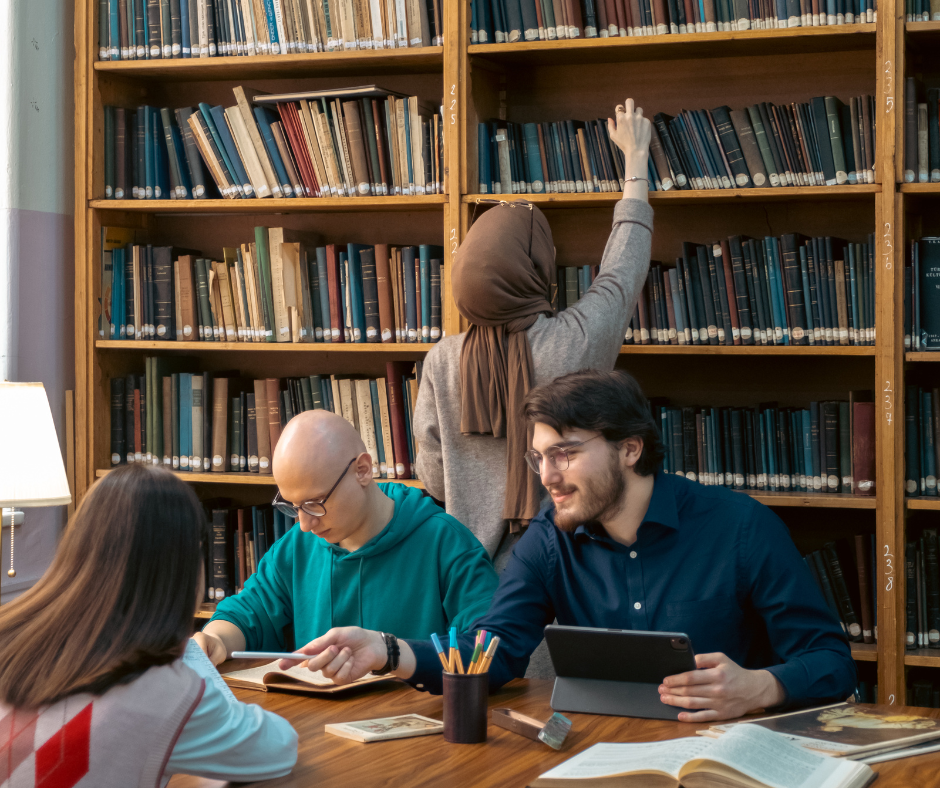
Graduates of Creative Writing MFA programs have a diverse array of career paths available to them, reflecting the versatile skills they acquire during their studies. Many pursue traditional literary careers as novelists, poets, or short story writers, often securing book deals and publishing contracts.
Others find success in related fields such as journalism, publishing, and editing, leveraging their strong writing and critical thinking skills. The digital age has expanded opportunities in content creation, copywriting, and writing for online platforms. Additionally, an MFA degree can lead to academic careers, with graduates taking up roles as educators and professors in universities and colleges.
The broad skill set developed in MFA programs also enables graduates to work in fields like public relations, advertising, and communications, where effective writing and storytelling are highly valued.
Success Stories of Alumni in Various Writing and Academic Fields
The success stories of MFA alumni highlight the potential for diverse and fulfilling careers in writing and academia. Numerous alumni have achieved critical and commercial success as authors, with their works published by prestigious publishing houses and translated into multiple languages.
For instance, alumni from programs like the Iowa Writers’ Workshop and Columbia University have gone on to win major literary awards, including the Pulitzer Prize and the National Book Award. In the academic realm, many MFA graduates hold faculty positions at universities, contributing to literary scholarship and nurturing the next generation of writers.
Success is also evident in the digital space, with graduates excelling as content creators, bloggers, and digital marketing professionals.
Admission Requirements and Tips

Admission to Creative Writing MFA programs typically involves several key components. Foremost are writing samples, which are the most critical part of the application. These samples, either in the form of poetry, fiction, or non-fiction, should showcase the applicant’s unique voice and skill. Letters of recommendation are also required, generally from individuals familiar with the applicant’s writing and academic abilities, like former professors or mentors.
A statement of purpose or personal essay is another crucial element, where applicants articulate their reasons for pursuing an MFA, their literary influences, and their career aspirations. Additionally, most programs require transcripts from previous academic institutions to assess the applicant’s academic background. Some programs may also request a resume or CV, highlighting relevant experiences and achievements.
If you are pursuing a terminal degree in creative writing, you might need to provide further information.
Advice on How to Prepare a Strong Application
To prepare a strong application for a Creative Writing MFA program, candidates should focus foremost on their writing samples. These should be carefully selected and refined to reflect the applicant’s best work, showcasing originality, technical skill, and a clear artistic vision.
Letters of recommendation should come from individuals who can speak to the candidate’s potential as a writer and commitment to the craft. The statement of purpose needs to be well-crafted and thoughtful, clearly conveying the applicant’s goals and reasons for choosing the specific program. It’s beneficial for candidates to familiarize themselves with the faculty and ethos of the program to tailor their application accordingly.
Lastly, applicants should ensure all components of their application, including transcripts and resumes, are complete, accurate, and presented professionally, adhering to each program’s specific requirements and deadlines.
The Future of MFA Programs

The landscape of creative writing education, particularly within MFA programs, is continually evolving with emerging trends that reflect broader cultural and technological shifts. A notable trend is the increasing emphasis on diverse voices and global perspectives in writing, encouraging inclusivity and representation in literary works.
Additionally, there is a growing focus on interdisciplinary approaches, where students explore the intersection of writing with other art forms like digital media, film, and visual arts. Environmental and social justice themes are also becoming more prevalent, as writers engage with pressing contemporary issues. Furthermore, the rise of genre fiction, such as fantasy and science fiction, marks a departure from traditional literary norms, expanding the scope of creative exploration within these programs.
Impact of Digital Media and Online Learning Platforms on MFA Programs
Digital media and online learning platforms are significantly impacting MFA programs, transforming how writing is taught, shared, and published. Online platforms have made MFA programs more accessible, allowing for a broader range of participants, including those who may not be able to attend in-person due to geographical or financial constraints.
These platforms facilitate a more collaborative and interactive learning environment where students can easily share work and receive feedback. The rise of digital media also encourages writers to explore new forms of storytelling, such as interactive fiction and digital narratives. However, this shift poses challenges, including the need to adapt teaching methods for the digital realm and ensuring that the depth and quality of mentorship and peer interaction are maintained in an online setting.
Final Thoughts on Attending Graduate School for Creative Writing

Pursuing an MFA in Creative Writing in the U.S. presents a unique opportunity for individuals to refine their writing craft, connect with a community of like-minded peers, and launch a successful career in the literary world. The value of these programs extends beyond technical skill development. They serve as incubators for creativity, thought leadership, and cultural contribution.
Design Dash
Join us in designing a life you love.
Dee Dee Vogt
I found this article timely and enlightening. I will be entering an MFA Creative Writing program at Belmont University in Nashville in 2024 and the article opened my mind about ways in which I might maximize the experience. Thank you for the inspiration!
Elizabeth Burton
We are so happy to hear that you gained useful information from this article. Please keep us posted on your journey! Best of luck in your program.
Comments are closed.
Related Posts

Our Networking Tips for Creative Entrepreneurs
Banish networking anxiety and make valuable connections no matter wher

Design Your Life with Intention: A Letter from Our Founders
Curiosity. Creativity. Connection. Beauty. Wonder. Growth.
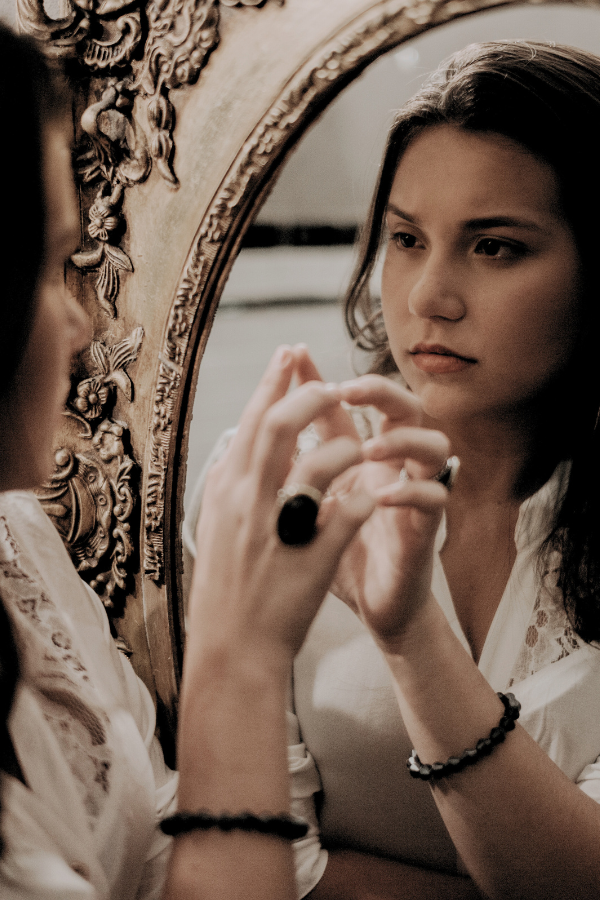
Dealing with Imposter Syndrome as a Design Firm Owner
Never let self-doubt hold you back.

How to Balance Perspectives and Personalities at Your Design Firm
Balance perspectives and personalities so your firm thrives and no one

Self-Care for Success: How to Support Your Mental Health as a Creative Entrepreneur
Being an entrepreneur is rewarding, but it comes with challenges. Lear
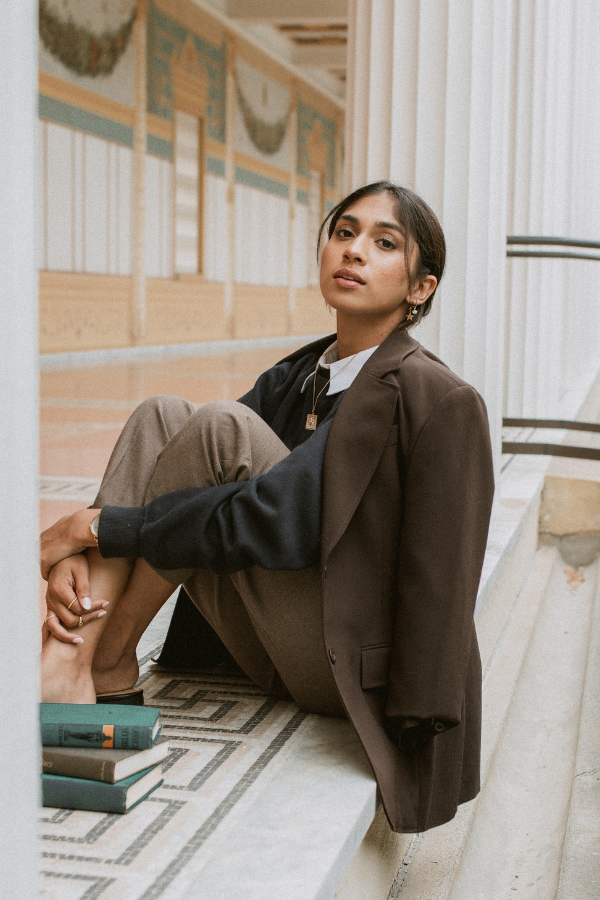
Gorgeous Interior Design Coffee Table Books for Endless Inspiration
With gorgeous photography, tidbits from design history, and a peek ins
We believe that all creatives must pursue their curiosity, wherever it takes them. Satisfy your wanderlust with a curated journal of the beauty that surrounds us in art, travel, wellness, and design.
Sign up for Newsletter
Exciting news.
We're thrilled to announce that we're gearing up to launch our journal and members portal soon! Our team is hard at work behind the scenes, bringing you a dynamic platform to enhance your experience with us. Stay tuned for updates as we progress towards this exciting milestone. Thank you for your patience and support!
Not a member? Register
Registration form placeholder
Already a member? Log In
Become a part of the DesignDash community.
Register with us to:.
Save Your Read History
Earn Reward Points
Earn Badges For Comments
Become Topic Expert

Suggestions

What To Know Before Applying to MFA in Creative Writing Programs

An MFA in creative writing is a graduate program meant to help refine a writer’s craft. The curriculum is designed to give writers a few years after undergrad to focus on their writing while becoming a part of a community of like-minded people. As an MFA, you’ll spend the first few semesters in various workshops and then your last year working on your thesis and refining your writing. As a poet in an MFA program, I’m working on submitting about 40 pages worth of poetry. I’m not entirely sure what this looks like for prose writers, as the minimum page count can vary depending on your program.
There are some pros and cons I’d like to point out about MFA programs. The biggest pros are that you are given constructive deadlines for your writing, you are a part of a community, and you get to learn more about sharing your work. The cons? Well, I’d say those would be financial stress, not knowing what your post-graduate plans are, a potentially negative impact on your mental health, imposter syndrome, the pressure to publish, a lot of reading and writing, and bad workshops — just to name a few.
Deadlines for Your Writing
Having deadlines to meet was one of my favorite things about the MFA program. It pushed me to produce work that I wouldn’t have otherwise. While other students were stressed by their due dates, I loved the structure they provided. And more than anything, I loved knowing that I was on track to meet my goals.
During my time in the program, I was lucky enough to meet other writers. My classmates were all smart, hard-working and creative, and it was nice to get their feedback on my work. Similarly, my professors were all successful writers, but they weren’t cocky about it. I’d say they cared more about my general well-being more than the content they were teaching.
Sharing Your Work
Sharing my work was ultimately one of the most rewarding parts of my program. As part of the course requirements, I had to give a 15-minute reading of my work. I was really nervous about it, but I picked out my favorite poems that I had written and prepared to share them with my peers. While I wanted to be taken seriously, one of my poems had a funny line in it, and its delivery kind of turned the whole reading into a comedy show. I was super grateful for the comedic relief, and the reading went much better than I expected. After sharing my work in the program, I began submitting my poems to outside magazines and was pleased when they were accepted. You can find a few of my poems here and here .
Financial Stress
I wouldn’t recommend pursuing an MFA if you already have a full-time job secured. If you don’t, still think carefully about the decision. Trying to study while not being able to afford food is not a fun experience. One of my favorite poets actually had to sell plasma to make ends meet. Unless you have an assistantship, you will have to take out a lot of money in student loans. You may not think this is a big deal before you start, but once you see those numbers on your billing statement, you will be sick to your stomach.
If you do have an assistantship, you will most likely be teaching. Even if you love the practice, it will take time away from your writing, and you will be asked to do more work than what you’re paid for. Not to mention, it can be hard to focus on your studies when you are worried about what kind of job you’ll get after graduation. Many companies will see you as overqualified with a master’s degree, and many will wonder why they should hire you if you don’t have any real work experience.
Impact on Mental Health
I also wouldn’t recommend getting an MFA if you are really struggling with your mental health. Right before I started my program, I was diagnosed with bipolar disorder . I thought that it wouldn’t take long for me to stabilize again, but I was wrong; it’s been three years, and I am still having a hard time. During my first year in the program, my mental health got so bad that I almost went to therapy three times a week until I realized that group therapy wasn’t working. I wish that I didn’t have the pressures of grad school on top of my new diagnosis and finishing undergrad.
- Imposter Syndrome
Ask anyone in their first year of graduate school how they are feeling and you might get something along the lines of “I was nervous” or “I was excited.” It’s very common for students to feel imposter syndrome, especially after getting into such a competitive program. My imposter syndrome was so bad during my MFA program that I struggled to write poems for my first semester, and it continued into the rest of my time at Butler. I told myself that I wasn’t talented enough or that I didn’t study hard enough or that my writing wasn’t interesting enough. But they were all lies that came from my fear of failure.
Academic Rigor, the Pressure To Publish and Competition
Let’s be honest: Graduate school in any field of study is not easy. I learned the hard way that I shouldn’t take nine credits at a time. On top of lots of reading, there was a pressure to publish your work. Not only did it feel like you needed to have the best work ready for your workshop, but you also felt like you had to have work that was ready to be published.
To put a cherry on top, you would never know how your workshop would go. For instance, say you were really proud of your poem. Even though you were happy with it, there would be a good chance that the group would be critical of your work. For me, that was difficult because I was writing about my life. I felt like people were critiquing me instead of my work. It was a lot of pressure to be the most efficient, yet unique, yet eloquent writer all at once. I wish I would’ve stopped caring about others’ opinions a lot sooner.
Do I Regret It?
In a way, I do. I regret spending so much money on a degree that doesn’t guarantee a job. However, I don’t regret taking the time I needed to learn more about poetry, about myself and how I want to live my life and treat other people. It’s a hard thing to describe. In December, I’ll finish my MFA, and I will feel really proud of myself. Until then, I’m going to try to make the most of it.
If you are considering applying for an MFA program, I urge you to take your time when thinking about graduate school. Know that these programs aren’t going anywhere, and, as long as you keep in touch with your professors, they’ll still be happy to write you recommendation letters in the future. It’s okay to wait a year, or 10, or even 20. Whatever you do, make sure that it’s the right decision for you and not one based on what other people think.
- bipolar disorder
- college financial advice
- college poetry
- college writing workshops
- creative writing
- mental health
- MFA programs
- writing community
- writing workshops
Audrey Bowers, Butler University
Leave a reply.
Your email address will not be published.
Save my name, email, and website in this browser for the next time I comment.
Related Posts

Stop Using Stigmatized Language!

Shadow Work vs. Dialectical Behavior Therapy: Uncovering Paths to Inner Growth

Verse in the Digital Age: A New Perception of Poetry

Social Media & Self-Diagnosis

Elmo and Steve: “How Are You Doing?” Causes A Movement

Digital Detox: Rediscovering Real Life

Fiction Writing Activities to Help You Find Inspiration

Read Between the Lines: The Problem With the Goodreads Challenge
Don't miss.

What’s Behind Beyoncé and Taylor Swift’s Massive 2023?

TV’s Future Golden Boy: Percy Jackson, The Hero You’ve Been Waiting For

The Wonders of Weeki Wachee

What’s the Obsession with ‘Bluey’?

The Latin Lover Is Back and He Has A “Mustache Goatee Combo”
Masters of Fine Arts (MFA) in Prose and Poetry | Northwestern SPS - Northwestern School of Professional Studies
- Post-baccalaureate
- Undergraduate
- Professional Development
- Pre-College
- Center for Public Safety
- Get Information

Program Overview
Mfa in prose and poetry.
Northwestern’s part-time Master of Fine Arts in Prose and Poetry program provides students the opportunity to grow as artists within the specializations of fiction, nonfiction, popular fiction, poetry, and publishing and professional development. A dual-genre specialization is also offered. The small-group workshop format allows for individual attention from published, award-winning faculty . Students also have the opportunity to learn the ropes in teaching writing, publishing, and editing. Flexible scheduling – with courses offered evenings and weekends on Northwestern’s Chicago and Evanston campuses as well as online and in hybrid format – gives students the opportunity to balance their professional, personal and writing lives. While earning their degrees, students connect with other writers at readings and other events in an artistic community that extends beyond the University into Chicagoʼs vibrant literary scene.
About the MFA in Prose and Poetry
Prose and poetry program goals, curriculum for mfa in prose and poetry, mfa in prose and poetry courses, prose and poetry faculty, mfa in prose and poetry admission, tuition and financial aid for prose and poetry, registration information for prose and poetry, careers in prose and poetry.
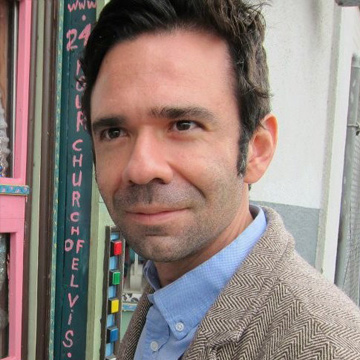
I feel like there's a distinctive Chicago quality to the program, a kind of Midwestern stealth sheen of genuine kindness that nourishes some wild, subversive, tremendously exciting work. It's a unique combination, and one singularly fertile for creativity.”
Students form lasting bonds with each other and with their professors. The years students have spent in the SPS creative writing program, some have told me, are the most creatively rewarding ones they've experienced.”
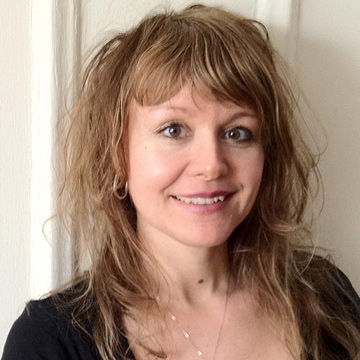
Teaching in Northwestern's part-time writing program has been a career highlight for me. The program is enriched by its students who come from various backgrounds and careers. The diversity of passions, insights and life experiences helps to create a truly unique and rewarding learning experience.”
- To help students determine the strengths and weaknesses of their writing, and learn how to evaluate criticism of their work
- To teach students how to take their writing apart, re-think and revise it
- To show students how to experiment with different styles and forms
- To guide students in creating a publishable manuscript or portion of one
- To teach students how to read literature as a writer and a critic
- To train students to teach creative writing, informed by current pedagogy and classroom experience
- To give students the opportunity to edit an international literary magazine with their peers
- To provide students with the tools to create strong applications for jobs in teaching, publishing, and editing
The 15-course curriculum includes workshops in a concentration, electives, and two thesis courses to complete the MFA program experience. Required courses vary by specialization .
Electives are chosen from the graduate course offerings in the Master of Arts in Literature program, creative writing special topics courses (MCW 490) and the seminars and internships (practica) in teaching and publishing. Since good writers also need to be good readers, students must take electives in literary studies. Recent electives include courses on reading poetry; the narrator in fiction, nonfiction and poetry; and writing humor. Independent studies round out the program and provide an opportunity to strengthen writing portfolios.
The final project of the MFA program is a creative thesis, an original work of high literary merit (judged on the basis of art as well as craft). The creative thesis is structured and revised under the supervision of a faculty member (or faculty mentor) and a second reader. The project may be one long piece or a series of shorter pieces. It may include or be an expansion of work written during the student's course of study as long as it represents a culminating effort to shape stories, prose pieces, a long piece, or a group of poems into a coherent, self-sufficient work. This large-scale project supplements the smaller-scale study of craft with the invaluable experience of creating a larger work. And for students who plan to pursue book-length publication after graduation, the master's creative thesis may be the first version of a work in progress.
Explore MFA in Prose and Poetry Courses . You can narrow your course search by day, location or instructor.
Learn from a faculty of esteemed writers in small-group workshops where instructors facilitate discussions that help students examine and address strengths and weaknesses in their writing as well as open up possibilities for re-thinking and revising. Get to know the instructors on our Prose and Poetry Faculty page.
Candidates for admission to the MFA program must hold a bachelor's degree from a regionally accredited institution or its foreign equivalent and possess a strong academic record, preferably in English, writing or related fields. In evaluating MFA applicants, the admissions committee will look for evidence of the ability to create a more sustained final project, for interest in an interdisciplinary program and for interest in learning how to teach. For a complete list of requirements, see the admission page for SPS graduate programs.
Students interested in the Litowitz Creative Writing Graduate Program should visit the Weinberg College of Arts and Sciences website for admission information.
Tuition for the MFA in Prose and Poetry program at Northwestern is comparable to similar US programs. Financial aid opportunities exist for students at Northwestern. Complete details can be found on the Prose and Poetry Tuition and Financial Aid pages.
Already accepted into the MFA in Prose and Poetry program? Get ahead and register for your classes as soon as possible to ensure maximum efficiency in your progress.
- COURSE SCHEDULE & REGISTRATION
- REGISTRATION POLICIES & CONTACTS
Northwestern University’s MFA in Prose and Poetry is an arts degree. Students pursue the degrees in order to become better writers, able to create prose and poetry that draw on a full range of the craft. On a more practical level, MFA students become better writers, which prepares them for a variety of careers. For details visit the Prose and Poetry Career Options page.
Find out more about Northwestern's MFA in Prose and Poetry

3 Myths About the MFA in Creative Writing
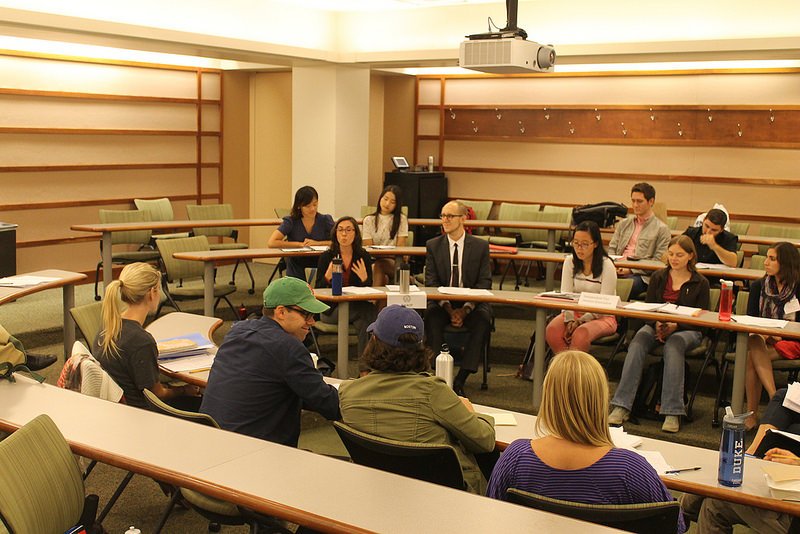
Today’s guest post is an excerpt from DIY MFA by Gabriela Pereira ( @DIYMFA ), just released from Writer’s Digest Books.
Most writers want an MFA for one of three reasons: They want to teach writing, they want to get published, or they want to make room in their life for writing. It turns out these reasons for doing an MFA are actually based on myths.
Myth 1: You Need an MFA to Teach Writing
Many writers get the MFA because they think it will allow them to teach writing at the college or graduate level. Once upon a time this might have been the case, but these days so many MFA graduates are looking for jobs and so few teaching positions exist, that it’s a challenge to get a teaching job with a PhD, much less with a terminal master’s degree. The writers who do manage to snag a coveted teaching position are often so overwhelmed with their responsibilities that they have to put their own writing on the back burner. While in the past an MFA may have served as a steppingstone to becoming a professor, it’s not the case anymore.
More important, many teachers in MFA programs do not have that degree themselves. Some professors are successful authors with prominent careers, while others are publishing professionals who bring the industry perspective to the courses they teach. This goes to show that the MFA has little impact on a writer’s ability to teach writing. Being a successful author or publishing professional is much more important.
Myth 2: The MFA Is a Shortcut to Getting Published
No agent will sign you and no editor will publish your book based on a credential alone. You have to write something beautiful. If you attend an MFA program and work hard, you will become a better writer. And if you become a better writer, you will eventually write a beautiful book. An MFA might help you on your quest for publication, but it’s certainly not required. After all, many writers perfect their craft and produce great books without ever getting a degree.
Ultimately getting published is a matter of putting your backside in the chair and writing the best book possible. For that, you don’t need an MFA.
Myth 3: An MFA Program Will Force You to Make Writing a Priority
If you can find time to write only by putting your life on hold and plunging into a graduate program, then your writing career isn’t going to last very long. Only a small percentage of writers can support themselves and their loved ones through writing alone. This means you must find a balance between your writing and the rest of your life.
Even within your writing career, you must become a master juggler. Forget that glamorous image of the secluded writer working at his typewriter. These days, writing is only a small piece of the writer’s job. In addition to writing, you must promote your books, manage your online presence, update your social media … and likely schedule these tasks around a day job, a family, and other responsibilities.
The danger with MFA programs is that they train you to write in isolation but don’t always teach you how to fit writing into your real life, or even how to juggle writing with all the other aspects of your writing career. Not only that, but external motivators like class assignments or thesis deadlines don’t teach you to pace yourself and build up the internal motivation you need to succeed in the long-term.
Genre Writing in MFA Programs
Most MFA programs focus on literary fiction, creative nonfiction, and poetry. While these are noble areas of literature, they cover only a tiny slice of the wide and diverse world of writing. Heaven forbid a writer in a traditional MFA program produces something commercial—or worse, genre fiction. While a handful of MFA programs allow writers to study genre fiction or children’s literature, the majority still focus on literary work alone. If you want to write genre fiction, commercial nonfiction, or children’s books, you likely will not learn much about them in your MFA courses.
Writers of genre and commercial fiction are among the most dedicated, driven writers I know. They take their craft seriously and work hard to understand the business side of the publishing industry. In addition, a vast number of associations, conferences, and guilds are dedicated to specific genres or commercial writing. Literary writers are not the only ones who crave knowledge and community. Commercial and genre writers want it, too.
This is why I created DIY MFA : to offer an alternative for writers who do not fit the strict literary mold of the traditional MFA system.
Should You Pursue an MFA?
MFA programs are not a bad thing. In fact, they are exceptional at serving a small and very specific group of writers. If you write literary fiction, creative nonfiction, or poetry, and if you thrive in a formal academic environment, then the traditional MFA is a great option. If you can afford the tuition without taking out loans, and if you have the time to make the most of the experience, then you are one of those ideal candidates for graduate school.
One reason I am extremely grateful for my own MFA is that it gave me the opportunity to work with several phenomenal teachers. I studied YA and middle-grade literature with the brilliant David Levithan. The legendary Hettie Jones was my first workshop teacher. I worked closely with Abrams publisher Susan Van Metre, who served as my thesis advisor and mentor. These experiences were invaluable, and at the time I didn’t think I could make connections with such literary luminaries any other way. Now I know, however, that you can make connections and find great mentors without attending an MFA program.
The “Do It Yourself” MFA
As an MFA student, I discovered the magic equation that sums up just about every traditional MFA. The Master in Fine Arts degree in Creative Writing is nothing more than a lot of writing, reading, and building community. In the workshops, you exchange critiques with other writers and work toward a manuscript that becomes your thesis project. Most programs also require you to take literature courses both in and outside your chosen area of literature. Finally, you are asked to attend readings or talks by other writers—to build your personal writing community. To create a personalized, do-it-yourself MFA, you have to find a way to combine these three elements.
Write with focus. You have to commit to a project and finish it. In traditional MFA terms, this project is your thesis, and it’s a crucial part of your development as a writer. But you don’t need to complete a thesis to get this experience; you just need to finish and polish a manuscript. While you can feel free to play and explore early on, you must eventually choose a project and see it through from beginning to end. When you write with focus, you write with a goal in mind.
Read with purpose. This means reading with a writer’s eye. If you’re like me, you were a bookworm long before you could hold a pencil in your hand. Writers love books. In fact, many of us become writers so we can create the very books we love to read.
Reading for pleasure is wonderful, and it certainly has its place. Reading with purpose is different: It is reading in a way that serves our writing. It’s not just about finding out what happens in the story; it’s about learning how the author pulls it off. Reading this way isn’t just an intellectual exercise. When we read with purpose, we examine how an author crafts a story so we can emulate those techniques in our own work.
Build your community. In the traditional MFA, building a community happens organically. You meet fellow writers in your workshops and literature courses. You go to readings and conferences to connect with authors. You attend a publishing panel and learn about the industry. The community element is baked into the MFA experience.
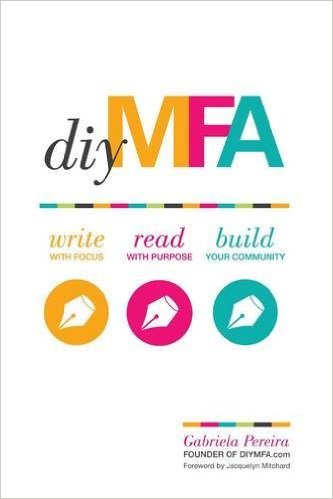
To learn more about crafting your own customized MFA experience, sign up for the DIY MFA newsletter , and check out the new book, DIY MFA .
Gabriela Pereira is the Creative Director at DIY MFA , the do-it-yourself alternative to a master’s degree in writing. She develops tools and techniques for the serious writer, to help you get the knowledge without the college. With an MFA in creative writing, Gabriela is also a freelance writing teacher, and has led workshops throughout New York City via writing programs like: 826NYC, East Harlem Tutorial Program and Everybody Wins. When she’s not working on DIY MFA, she loves writing middle grade and teen fiction, with a few short stories for “grown-ups” thrown in for good measure.
This site uses Akismet to reduce spam. Learn how your comment data is processed .

[…] Today’s guest post is an excerpt from DIY MFA by Gabriela Pereira (@DIYMFA), just released from Writer’s Digest Books. Most writers want an MFA for one of three reasons: They want to teach writing, they want to get published, or they want to make room in their life for writing. It turns out these reasons … […]
I find screenwriting programs to be more honest with respect to story telling.
So true, I did a screen writing module in my degree. It was easy, fun and clear to write a script. So weird!
THANK YOU! I needed this. I occasionally doubt myself and my future success possibilities because of my lack of an MFA. I’ve been gradually letting that notion go, and this helps!
Also, I’m not interested in social media with exception of using Twitter as a news aggregator. From my perspective it’s an unwanted hassle. I write fiction and have neither the time nor inclination for blog posts or podcasts, but I do understand the nature of the disadvantage this might impose. And I think reality reliably informs us a social media presence is not necessarily mandatory to find success.
[…] view post at https://janefriedman.com/mfa-creative-writing-3-myths/ […]
[…] 3 Myths About the MFA in Creative Writing (Jane Friedman) Most writers want an MFA for one of three reasons: They want to teach writing, they want to get published, or they want to make room in their life for writing. It turns out these reasons for doing an MFA are actually based on myths. […]
[…] to the rest at Jane Friedman and thanks to Matthew for the […]
[…] the program could help build contacts, at the very least. Here is an article by Jane Friedman with 3 Myths About the MFA in Creative Writing to help answer some of the […]
[…] Jane Friedman […]
[…] Honoree Corder’s Website Removed by S.J. Pajonas How Do You Like Them Apples! MFA: Myths for Authors Write, Camera, Action! DRM Drama Audio on the Go Singles’ Night (1) Singles’ Night (2) Swan […]
- College of Arts & Sciences
- Department of English
Creative Writing M.F.A.

A Good MFA Program is Hard to Find
A good MFA program is hard to find, but we believe the MFA Program at Georgia College & State University in Milledgeville, Georgia offers unique opportunities for MFA students dedicated to the craft and purpose of creative writing. GCSU’s famous alumna, Flannery O’Connor, lived in Milledgeville on her farm, Andalusia, and of our beautiful, Southern town, she wrote "When in Rome, do as you done in Milledgeville." Our MFA students certainly get a lot done in their three years in Milledgeville.
What makes us unique? We take pride in the fact that the MFA Program at Georgia College is a fully-funded, full-residency 3-year MFA program. All students admitted to our MFA program receive a Graduate Assistantship for all 3 years that includes a stipend and tuition remission. Self-funded students are accepted in special circumstances. We offer everything you could find at flagship state universities, but because we are part of a small, public Liberal Arts university, our students are immediately welcomed into a close-knit, creative community. We sponsor a Visiting Writers series, bringing nationally-renowned writers to campus each semester, as well as a graduate student reading series. Our award-winning faculty work closely with students not only as workshop teachers, but as professional mentors.
The MFA Program offers workshops in fiction, creative nonfiction, and poetry, and because we believe in expanding creative possibility and passions for our students, we require students to take cross-genre workshops. Students may write their thesis in fiction, poetry or creative nonfiction. In addition to workshops, students take creative writing seminars in Poetry & Poetics or Prose Forms, pedagogy classes on the teaching of writing, and courses on literature and special topics.
Additionally, we offer courses in journal design and editing, so students get hand-on publishing and graphic design experience. Students are able to put their practical skills to creative and purposeful good use while serving as members of the editorial staff of Arts & Letters , our national literary journal, and one of the premier journals of the Southeast.
We are fully-funded: all students receive full tuition remission as well as a Graduate Assistantship. As part of this assistantship, students gain real-world teaching experience, and work at our Writing Center as tutors, teach undergraduate Composition, and teach in our Early College Program which is modeled on the Writers in the Schools Program. This real world teaching experience is essential for those students who hope to continue with teaching careers and/or community service careers. We also participate in the Peace Corps Paul D. Coverdell Fellows Program which offers assistantships to Peace Corps volunteers.
Finally, the Arts & Letters Journal Editing Fellowship is open to applicants with at least one year of experience in journal publishing and/or editing, desktop publishing and design (preferably with InDesign), and/or marketing and promotion (including social media). The Fellowship offers recipients the opportunity to further develop both editorial and managerial skills over their three years in the MFA program, working closely with Arts & Letters’ Editor and Art Director (for more information about this specific fellowship, refer information under Assistantships ).
Faculty and graduate students alike all practice what we preach and teach at GCSU!
Our 42-hour program is designed to be a three-year program (although other options may be possible for those students that already have an MA Degree) and most students follow a plan that emphasizes course work in the first year and thesis work in the second and third years.
We welcome you to learn more about our admission application process and opportunities for graduate assistantships and other financial aid.
Check out the new design of the Arts & Letters website !
We now have a dynamic platform that is more efficient and responsive, and we’ve packaged it in a prettier and more user-friendly design. We are also now connected across a number of social networks, including Facebook , Twitter , Tumblr , and Google+ , so that our readers can keep up on Arts & Letters news, reading periods, information on upcoming issues, and prizes.
Visiting Writer Series
African writers festival.
DEGREE REQUIREMENTS
Prospective students for our Master of Fine Arts in Creative Writing program usually apply late fall/early winter for the following fall semester. Applications must be complete by Feb.1 for students who wish to be considered for an MFA assistantship (learn more about assistantships and other financial aid available to graduate students).
Application Process, Part One:
Domestic Applicants: Submit the completed on-line graduate application ($35 fee) and required materials to Graduate Admissions . Application and required materials must be submitted by February 1 :
- The completed on-line graduate application plus $35 fee to Graduate Admissions.
- Georgia College & State University The Graduate School Graduate Admissions Office Campus Box 107 Milledgeville, GA 31061
- OFFICIAL undergraduate or graduate transcripts (even if still in progress). If you are in your final year of undergraduate studies, you can still be admitted to the program, though final admission will be contingent upon receiving final transcripts upon your graduation from your undergraduate institution.
Questions? Contact Graduate Admissions .
International Applicants: If you are an International Student please submit the completed International Graduate Application For Admission and required materials to the International Education Center . To ensure timely delivery of materials and for application to receive full consideration, application and required materials should be submitted by January 1 :
- The completed International Graduate Application For Admission .
- Georgia College & State University International Education Center Campus Box 49 Milledgeville, GA 31061
Questions? Contact the International Education Center .
Application Process, Part Two:
Domestic and International applicants, attach the following materials to the application or email to the Graduate School, [email protected] .
- A writing sample in your thesis genre (please label as fiction, poetry, or creative nonfiction). Submission should indicate the genre to which you are applying: poetry, fiction, or creative nonfiction. Submit up to 10 pages of poems (typed, single-spaced, no more than 1 poem per page); or submit up to 20 pages of prose, one or two short stories or creative nonfiction essays/memoir excerpt (typed and double- spaced).
- A statement of purpose (about 500 words, typed, double-spaced). Please address your goals as a writer. Tell us why you wish to pursue an MFA in Creative Writing with us, rather than follow another path. Surprise us. Address as well how the program's offering of tutoring opportunities in the Writing Center and teaching duties in the classroom will help you reach your goals.
- Résumé or CV .
- Last Name_Genre_Portfolio
- Last Name_Genre_SOP
- Last Name_Genre_Resume CV
Questions? Contact the MFA program . NOTE: You will also need to provide verification of lawful presence (PDF ) to Graduate Admissions . Graduate admissions needs this information before we can accept students into the program. Additionally, before you can register for classes, the required immunization certificate (PDF) must be submitted to the Registrar's office . We do NOT require GRE scores.
The MFA program web pages provide program-specific information; however, you will find other important information at graduate admissions , the university registrar , financial aid and other GC web sites/offices. International students should contact the International Student Center for admission guidance.
Evaluation of Your Application
Your writing portfolio is the primary credential we review in evaluating your application for admission (writing samples are reviewed by a faculty committee who teach in the student’s thesis genre). Your letters of recommendation and statement of purpose are also important, since they will address your skill and accomplishment as a writer. Because our students also take required classes in Poetry & Poetics or Prose Forms, Teaching Creative Writing and non-creative writing courses in literature, criticism, linguistics or other subjects, your transcripts will also help us make our final, holistic evaluation of your application. We begin to review applications after Feb.1. In order to maintain small classes and individual, intensive mentorship of thesis work, our admission process is competitive. Our first step is to inform students (usually early to mid-March) whether or not they’ve been admitted to our program. Our second step is to determine MFA assistantship offers and wait lists (see The Graduate School for details about graduate assistantships).
Any Questions?
Call us at 478-445-3509, or send an email . For Graduate Admissions questions, call 478-445-6289.
All application materials must be completed and received by Feb.1 if you wish to be considered for an MFA program-sponsored graduate assistantship (or “G.A.”). Please include a résumé with the application materials you send to the MFA program. Provide any information that best describes your skills and experience, including (but not limited to, and not necessarily in this order):
- Education (any specific or special studies, experiences, or projects?)
- Tutoring, teaching, or mentoring skills, experience
- Editing/publishing experience (print journal, newspaper, web, etc.)
- Communication skills (including social media/networking)
- Tech skills (InDesign, web editing programs, Photoshop, other Adobe software; experience with Microsoft office or Apple iBooks Author?
- Any other skills/experiences you’d like to emphasize
- List 3 references (those submitting your letters of recommendation)
Applications received by Feb.1, and selected for acceptance to the MFA program, will then be reviewed to determine applicants that will be offered MFA-sponsored assistantships. Faculty committees (in each genre) review these applications holistically, based on the quality of the writing sample, potential for graduate study in an academic setting, and depth of experience (as reflected by the applicant’s statement of purpose, letters of recommendation, transcripts and résumé). The committee then ranks the accepted applications. When rankings are complete, the MFA Coordinator contacts applicants to make assistantship offers or to discuss and clarify a candidate’s placement on an assistantship waiting list. Once offered an MFA G.A., the applicant is encouraged to make a decision as soon as possible, but a final decision will be due no later than April 15.
Assistantships
Kinds of assistantships available to our graduate students:
Most MFA-sponsored first year graduate assistants (or “G.A.s”) are assigned hours as “writing consultants” in the university Writing Center. Other MFA G.A.s divide their hours between the Writing Center and the MFA/ Arts & Letters office, the Flannery O’Connor Review office, or our teaching writing in the schools Early College project. MFA-sponsored graduate assistantships include a stipend (current stipend is $8,600 per year) and full-tuition remission (but does not include mandatory student fees and, unless eligible to be waived, mandatory student insurance). The GCSU Budget Office posts current tuition and fees; information about student insurance is available at United Healthcare .
Teaching Fellowships require a secondary application process, due to additional credentials required for teaching college-level classes. Students who have been awarded MFA-sponsored G.A.s are eligible to apply for a Teaching Fellowship if a) they already hold an M.A. in English, or b) they have completed 18 hours of graduate credit in English, in addition to meeting other criteria. MFA students who are eligible will apply to the Department of English and Rhetoric (submitting materials through Georgia College & State University careers or some other means, as determined by the Chair). Note: Students are expected to teach during their second and third years of the program; failure to earn enough course credit to teach classes or failure to meet other expected criteria for teaching may result in the forfeiture of the student’s assistantship.
The Arts & Letters Journal Editing Fellowship at Georgia College encourages graduate studies for students with at least one year of experience in journal publishing and/or editing, desktop publishing and design (preferably with InDesign), and/or marketing and promotion (including social media). Students interested in applying for this Fellowship should also have excellent organizational and proofreading skills. The Fellowship offers recipients the opportunity to further develop both editorial and managerial skills over their three years in the MFA program, working closely with Arts & Letters ’ Editor and Art Director. In the first year, the A&L Fellow works in the capacity of Assistant Managing Editor, helping the current Managing Editor in the completion of office duties—everything from social media postings to honing InDesign skills to updating the Web Site. In the second and third year, the Fellow takes over as Managing Editor. Managing Editor duties include distributing and monitoring reading (submission) loads, InDesgning the journal and readying it to send to the printer, managing Sendinblue campaigns, and running proofreading sessions. The Managing Editor also is encouraged to represent the journal at the annual AWP Conference, as funding allows. Qualified applicants who wish to pursue the Journal Editing Fellowship should initially contact Dr. Kerry Neville, who coordinates the MFA Program.
The Journal Editing Fellowship is awarded to an incoming student every other year, and includes a stipend for summer work, much of which can be done remotely. The Fellowship is typically awarded in the spring semester prior to the student’s first (fall) semester. The fellowship will be awarded to a qualified recipient in 2023.
Arts & Letters , a nationally known literary journal in continuous biannual print publication since 1999, publishes innovative fiction, poetry, and creative nonfiction by emerging and established writers, and offers annual prizes in four genres, as well a prize for ‘unclassifiable’ work. Recent representative authors include Wes Civilz, Marianne Boruch, Keith Wilson, Rodney Jones, James Allen Hall, Lina Ferreira Cabeza-Vanegas, and George Singleton.
In addition, other university assistantships outside the MFA program may be an option for students accepted to our program (typically, these G.A.s offer a lower stipend but still include a full in-state or out-of-state tuition waiver). The MFA coordinator will discuss this option with applicants accepted to the program but who do not receive an MFA-sponsored G.A.
Scholarships and other Financial Aid
Some MFA scholarships (subject to funding availability) are awarded, in addition to the stipend and tuition waiver, to students on MFA-sponsored assistantships. The program coordinator will discuss these awards (if available) with students offered MFA G.A.s. ALL enrolled and returning university students (in good academic standing) can apply for other scholarships (some related to the MFA in Creative Writing program, some not), such as the Flannery O’Connor Alumni Scholarship and the Dorrie Neligan Creative Writing Scholarships.
Student loans are also available to MFA students through the university Financial Aid Office. Whether or not you’re interested in applying for a student loan, accepted applicants may wish to complete the student loan FAFSA application . Discuss your options with GCSU’s Financial Aid Office .
Quick Info For Assistantships:
- In 2019-2020, 22 of 28 MFA students had assistantships, and 6 had other university assistantships/appointments.
- MFA GAs include a stipend and full tuition waiver (in-state OR out-of-state tuition).
- Applicants offered MFA GAs are encouraged to make a decision early but final decisions are due by April 15.
- MFA GAs are assigned hours in the Writing Center (some GAs split hours with another assignment in our program).
- Students awarded MFA GAs apply to be Teaching Fellows their second year (if eligible) through a separate process via the Department of English.
- MFA GAs usually earn 18 hours in ENGL graduate credit their first year (required for Teaching Fellow eligibility).
- Teaching Fellows are typically assigned CORE classes (ENGL 1101, 1102) and ENGL 2208: Intro to Creative Writing.
- Stipends for assistantships are paid in five equal installments each semester (fall/spring).
- Assistantships do not cover required student fees or student insurance (may be eligible to waive).
MFA students are eligible for a variety of scholarships, some related, some not related, to Creative Writing, as well as student loans.
Graduate Assistantships in the Writing Cente r
Graduate Consultant
Interdisciplinary Writing Coordinator
Resources Coordinator
The Peace Corps Paul D. Coverdell Fellows Program at Georgia College encourages graduate studies for Returned Peace Corps volunteers (RCPV’s). Fellows who are accepted to participating graduate programs in their field are awarded assistantships that relate to their experience and training in the Peace Corps.
Upon successful completion of their Peace Corps Volunteer assignment, RCPV’s can apply to the Georgia College MFA Program (the application process is the same as for all applicants, but see the Peace Corps website for more information about RCPV eligibility requirements).
Peace Corps Volunteers who wish to pursue these Coverdell Fellowships should initially contact Kerry Neville , who coordinates the Coverdell Fellows Program on behalf of the university.
Assistantships are typically awarded in the spring for positions beginning fall semester. For that reason, potential Coverdell Fellows should make formal application by Feb.1 prior to the fall semester they plan to matriculate. The formal application must include the Peace Corps Description of Service (DOS) Certification of Service document: https://www.peacecorps.gov/returned-volunteers/support-services/certifi… "
Early College
Typically, Peace Corps Coverdell Fellows in the MFA program at Georgia College help to organize and mentor our Early College writing-in-the-schools project. Early College is a public school housed at the Georgia College campus, serving students from Baldwin and Putnam counties. Georgia College undergraduate majors, under the supervision of MFA students and faculty, mentor seventh graders in the Early College program and help them to publish a literary journal called The Peacock’s Feather .
Georgia College Early College was initially supported by funding from the Bill and Melinda Gates Foundation, for which the program remains grateful.
Most students complete the MFA program in three years. To meet MFA requirements, students take a minimum of 18 credit hours in the first year and 12 credit hours in the second and third years. Note: for students on MFA assistantships who are eligible to teach, there are additional teaching/pedagogy courses and other requirements designed to support and prepare Teaching Fellows.
A Typical Sample Plan for MFA Coursework :
All students take 34 hours of coursework: ENGL-MFA 4-semester credit hour courses (28 hours); ENGL 3-semester credit hour courses (6 hours):
12 hours: 5000-level and 6000-level courses in the student's major writing genre (3 courses): ENGL 5021, ENGL 6021 and ENGL 6025 (poetry genre); ENGL 5012, ENGL 6012 and ENGL 6026 (creative nonfiction genre); ENGL 5022, ENGL 6022 and ENGL 6026 (fiction genre).
4 hours: Course in non-thesis genre workshop (1 course); ENGL 5011, 5012, 5021, or 5022. Note that 5000-level workshops in a genre are the prerequisite for 6000-level seminars in a genre (see electives section below).
12 hours: Electives chosen from ENGL 5011, 5012, 5021, 5022, 6012, 6021, 6022, 6024, 6025, 6026 (these courses are repeatable; some have prerequisites; approved ENGL 5950 MFA Special Topics may also be chosen (no more than 8 hours of MFA Special Topics courses may count towards elective requirements).
6 hours: Non-MFA ENGL 5000-6000 level courses (at least one course at the 6000 level).
All students also complete the MFA Thesis (8 hours). All students must complete a thesis, with the accompanying critical essay, as well as complete a successful thesis defense in order to graduate. The thesis is intended to be a book-length project. A prose thesis must be a minimum of 100 pages, and a poetry thesis must be a minimum of 35 pages. Students have to complete a thesis in the genre of their specialization; we do permit hybrid thesis projects that are written to be a singular combination, but we do not permit hybrid thesis projects that are a compilation of stories, essays, and poems thrown together to create page length. The thesis defense is an oral defense of your thesis, attended by the thesis director, the thesis committee members, and the student, and is scheduled at least 2 weeks before the end of your final term.
English Course Descriptions from graduate Course cAtalog
Total Credits required: 42
If I write in multiple genres, do I have to choose just one to submit in my application?
Yes, choose one for your application. Still our program does encourage study in a second genre -- in fact, we require each student to take at least one workshop out-of-genre.
How do you choose which genre to apply in? Submit your best work. We accept candidates primarily on the merits of the writing sample. You will be expected to write your thesis in the genre you submitted.
For my writing sample, can I submit a chapter of a novel-in-progress? What if I don’t have a full 15 pages I’m proud of for my sample?
A chapter is fine, or a completed short story/essay. However, the more complete, the better. Quality over quantity.
Do I need a BA in Writing or English to apply?
No. We've had students in the past with various undergraduate degrees. If you have a strong sample, apply. However, we do review transcripts to see if students have completed some humanities courses (in English or other fields); and although there is no minimum G.P.A., almost all of our applicants have been successful students, earning 3.0 or higher in their academic studies.
How many courses do Teaching Fellows teach each semester?
Here’s the standard procedure (per semester) for G.A. Teaching Fellows:
1st year: Graduate Assistants work in the Writing Center as Consultants OR Writing Center + Journal office or Early College; and serve as readers for Arts & Letters Journal. 2nd year: Graduate Assistant Teaching Fellows teach 2 classes; OR Journal or Early College + Teach 1 class; and serve as readers for Arts & Letters Journal. 3rd year: Teach 2 classes; and serve as readers for Arts & Letters Journal.
The exception is for candidates who already have an MA. They are eligible to begin teaching two classes the first year and continue that for all three years. However, all students on MFA assistantship must undergo a further application/review process before they will be assigned teaching duties.
What is the stipend and tuition remission that your students receive if offered an MFA graduate assistantship?
The current stipend given to those with an MFA assistantship is $8,600 per year. In addition, many MFA assistantships include scholarship funds (amounts vary). MFA assistantships also include full tuition remission for in-state or out-of-state tuition (student fees, however, are not covered).
There are also other university assistantships available to which MFA students may apply. These assistantships offer smaller stipends, but usually include full tuition remission (again, student fees are not covered).
There is a student health insurance plan that meets the requirements of the new Affordable Health Care Act that students purchase or they may waived the student insurance if they have another qualified insurance plan.
What is the difference between an MFA assistantship and Peace Corp Coverdell Fellows?
How many applications do you typically receive and how many do you accept.
We typically review over 100 applications each year for the program. We enroll about 7 new students each year, with a balanced number in each of the three thesis genres (fiction, poetry, and creative nonfiction). Typically, seven MFA assistantships are assigned to new students accepted in the program; other students might be offered other university assistantships or seek out other funding support. The three-year program enrolls about 25 students total.
What constitutes a good recommender?
It's important to have professional recommenders (i.e., employer supervisors, established writers, college professors). Ideally, these people can speak to your ability to work and handle graduate classes and speak to the quality of your writing. You may choose different sorts of people to speak to your different qualities. These should not be friends or family members.
If I’m reapplying, what do I need to do?
You will not need to re-submit everything, and there is no fee for second-time applicants. You will need to contact Graduate Admissions and the MFA program to announce that you are re-applying. We suggest submitting to the MFA program an updated manuscript and your statement of purpose and resume. You do NOT need to re-submit transcripts, unless you've taken a class at another college since you last applied.
* NOTE You will need to submit again a new application to the Graduate Admissions office. You may use your old letters of recommendation, or submit new letters. .
Our Current Students
Collin Bishoff, Caleb Bouchard, Timothy Connors, Marybeth Cooper, Keely Hopkins, Dalton Monk, Kelly Piggott, Courtney Schmidt, and William Warren.
Mary Alsobrooks, Auden Eagerton, Avery James, Natalie Mau, and Lori Tennant.
CREATIVE NONFICTON
Paul Bryant, Mary-Kate Burns, Megan Duffy, William Gerdes-McClain, Nicholas Green, Charlotte Lauer, Amelia Longo, and Denechia Powell
Writers Who Publish
Although we don’t expect incoming students to have published their work, since our program began in 2001, our students have been publishing their poems, stories, and essays in many national journals. GC students have published in such journals as Backwards City Review, Big Muddy, Bloom, Cimarron Review, Colorado Review, Crazyhorse, Cream City Review, Descant, Dos Passos Review, Eclipse, International Poetry Review, McSweeney’s, Meridian, Nimrod, Pebble Lake, Poet Lore, Quick Fiction, Rattle, Redivider, River Teeth, Salt Hill, Santa Clara Review, Spinning Jenny, Thema, Touchstone and many others.
Alumni Donors Thank You
- Danny Bauer
- Ashlee Crews
- Steve Lavender
- Shawn Parkinson
- Daniel Plunkett
- William Torgerson
- Gwendolyn Turnbull
- Christopher Varn
Our alumni have been up to many great things, and we are excited to share just a few with you here. In addition to being published in many journals, our alumni have been winning awards and publishing collections, including:
- Ashlee Adams Crews's (fiction, 2006) story “Bird Feed” (in "McSweeney’s) won a Pushcart Prize in 2010. Her story “Church Time” won NC State’s 2011 James Hurst Prize. In 2012, her collection, Called Out , was a finalist for the Flannery O’Connor Award for Short Fiction, and in 2013 she received the "Rona Jaffe Foundation Writers’ Award." Read her story “Restoration” online at "Shenandoah. "
- Kristie Robin Johnson’s (creative nonfiction, 2018) essay collection, High Cotton, will be published in summer of 2020 by. One of her essays will appear in the forthcoming anthology, We Got This: Solo Mom Stories of Grit, Heart, and Humor, from She Writes press. She is the recipient of an artist grant from the Greater Augusta Arts Council, and her writing has been nominated for a Pushcart Prize and received honorable mention in the AWP Intro to Journals Project. She teaches English at Oconee Fall Line Technical College and Georgia Military College.
- Mike McClelland’s (fiction, 2017) collection of short fiction, Gay Zoo Day : Tales of Seeking and Discovery" (2017) published by Beautiful Dreamer Press, won the Independent Book Publishers Association's Silver Benjamin Franklin Award for LGBT Literature. His creative work has appeared in publications such as the Boston Review, Entropy, Queen Mob's Tea House , and others, and has been widely anthologized, most recently in Gents: Steamy Stories from the Age of Steam , which was nominated for a Lambda Literary Award. His work has been recognized as a semifinalist for the Conium Prize and the Saints and Sinners Short Story Contest. In 2018, he was invited to read his work and present at the annual TEDMED conference in Palm Springs alongside speakers like NBA star Dikembe Mutombo, Surgeon General Jerome Adams, and writer Nayomi Munaweera.
- Miller Oberman’s (poetry, 2006) poetry collection, The Unstill Ones , a collection of poems and Old English translations, was published in the fall, 2017 by the Princeton Series of Contemporary Poets. Oberman is a past recipient of the Poetry Foundation's Ruth Lilly Fellowship. His collection Useful was a finalist for the 2012 National Poetry Series. Read “Old English Rune Poem,” a new translation published in "Poetry" (July/August 2013).
- T.J. Sandella (poetry, 2013) has been chosen as one of the Best New Poets 2014. He has also won awards including the William Matthews Poetry Prize (2014, Asheville Poetry Review), the Academy of American Poets Prizes and the Elinor Benedict Poetry Prize.
- Will Torrey (fiction, 2010) won "Zone 3's" 2011 Editors' Prize for his story "Trajabar." Read his August 2013 "Working Writers Series"interview online at "The Missouri Review."
- Bill Torgerson ’s (fiction, 2007) most recent novel is Horseshoe (Cherokee McGhee, 2012). He teaches at St. John’s University. Check out his blog “The Torg”.
Keep in touch with all our outstanding alumni as well as current MFA students and happenings at the program’s Facebook page !
Milledgeville: A Literary Community
Georgia College offers a unique setting for students interested in pursuing their MFA in Creative Writing. Our university is small (about 6,500 students), located in historic downtown Milledgeville, former capital of Georgia from 1803-1868 and location of Andalusia, historic home of writer Flannery O’Connor.
Milledgeville is in the heart of Georgia, only 90 miles from Atlanta and an easy drive to the beaches of Savannah and Tybee Island or to the foothills of North Georgia. Milledgeville was the state capital from 1803 to 1868 and is the site of the newly restored Old State Capitol and Old Governor’s Mansion.
The historic downtown features shops, restaurants and taverns just two blocks from campus. The climate is warm, with mild winters and "zero" annual average snowfall. Our community offers places where writers can have a cup of coffee, meet friends and relax. Downtown restaurants, coffee shops, and stores blend small town and college town living into an ideal setting for serious writers.
You might recognize a place or character from the short stories of Flannery O’Connor or Alice Walker (who grew up in nearby Eatonton). Andalusia is the farm where author Flannery O’Connor lived from 1951 to 1964. O’Connor was living at her farm when she completed all of her published books of fiction. Andalusia is open to the public (see their website for more information).
Learn More About Milledgeville
Dr. Kerry James Evans
- PhD Florida State University; MFA Southern Illinois University-Carbondale
- At GCSU since 2020
Dr. Kerry James Evans is the author of the poetry collection, Bangalore , a Lannan Literary Selection. He is the recipient of a National Endowment for the Arts Fellowship and a Walter E. Dakin Fellowship from Sewanee Writers' Conference, and he has taught poetry workshops, poetic forms and theory, and other courses at Florida State University and at Tuskegee University where he was an Assistant Professor. His poems have appeared in Agni, Narrative, Ploughshares , and other journals.
Dr. Martin Lammon (Professor Emeritus)
- Poetry, Creative Nonfiction
- Ph.D., M.A. Ohio University
- At GCSU 1997-2020
Martin Lammon has won awards for both his poetry and creative nonfiction. His collection of poems, News from Where I Live , won the Arkansas Poetry Award, and his poems and essays have appeared in such journals as The Gettysburg Review, Hotel America, The Iowa Review, Ploughshares, Poet Lore, Poets and Writers and The Southern Review . Poems published in Nimrod were awarded a Pablo Neruda Prize. His essays about living in Costa Rica have been published in The Iowa Review , Zone 3 , and The Chattahoochee Review (winner of the Lamar York Prize for Creative Nonfiction).From 1997-2018, he was the Fuller E. Callaway endowed Flannery O'Connor Chair in Creative Writing. In 2007, he was selected for GC’s Distinguished Professor Award.
Dr. Kerry Neville
- Fiction, Creative Nonfiction
- Ph.D., University of Houston
- At GCSU since 2016
- Coordinator of the MFA and Undergraduate Creative Writing Program
Kerry Neville received her PhD in Creative Writing from the University of Houston, her BA from Colgate University, and was most recently an Assistant Professor of English at Allegheny College. She is the author of the short fiction collection, Remember To Forget Me , and of the award-winning short fiction collection, Necessary Lies . She is also a contributor to The Huffington Post, The Washington Post, and The Fix. Her essays and stories have been named Notables in Best American Short Stories and Best American Essays. She has twice received the Dallas Museum of Art Prize for Fiction, and has also been awarded The John Guyon Prize in Literary Nonfiction,The Texas Institute of Letters/Kay Cattarulla Prize for the Short Story, and the Short Story Book of the Year Prize from Independent Publisher Magazine. She is faculty for the FrankMcCourt/University of Limerick Summer Writing School. She was a 2018 Fulbright Scholar and taught in the M.A. Creative Writing Program at University of Limerick in Ireland
Laura Newbern
- MFA Warren Wilson College; M.A. English-Creative Writing, New York University
- At GCSU since 2005
Laura Newbern's collection of poems, Love and the Eye , won the 2010 First Book Award from Kore Press. She’s also received the prestigious Writer's Award from the Rona Jaffe Foundation, which recognizes outstanding emerging women writers. She teaches poetry workshops, poetics, and other courses. Laura is currently the Editor of Arts & Letters . Her poems have been published in such journals as The Atlantic, Poetry, TriQuarterly and other journals. Newbern also expresses her creative interests through black and white photography.
Peter Selgin
- Creative Nonfiction, Fiction
- MFA, The New School
- At GCSU since 2012
Peter Selgin’s latest essay collection, The Kuhreihen Melody (Serving House Books) was named a finalist for the 2019 BIG OTHER Book Award for Nonfiction and an excerpt from his novel Duplicity was a finalist for the 2019 Craft First Chapter Contest. His memoir, The Inventors , (Hawthorn Press) was named a Best Memoir of 2016 by Library Journal. His essay, “My New York: A Romance in Eight Parts,” was chosen by Paul Theroux for inclusion in Best American Travel Writing, 2014. His memoir, Confessions of a Left-Handed Man : An Artist’s Memoir (University of Iowa Press, 2011), was short-listed for the 2012 William Saroyan International Prize; the title essay was selected for Best American Essays 2006. He is the author of Drowning Lessons (University of Georgia Press, 2008), winner of the 2007 Flannery O’Connor Award for Fiction; Life Goes to the Movies, a novel, two books on the craft of fiction writing, and several children’s books. He has had a dozen notable essay citations in BAE anthologies. His stories and essays have appeared in the Missouri Review, Colorado Review, Boulevard, Glimmer Train, Fourth Genre, Creative Nonfiction, Salon.com, Alaska Quarterly Review, The Sun , and other publications. Other honors include the Missouri Review Editors’ Prize, a Dana Award for the Essay, and a Eugene O’Neill National Playwrights’ Conference Award for his play, A God in the House , based on Dr. Kevorkian and his suicide machine. He teaches fiction, creative nonfiction, journal design, editing, and production, and other courses. He is also creative nonfiction editor of Arts & Letters .
Dr. Chika Unigwe
- PhD University of Leiden, Holland; degrees from the University of Nigeria, Nsukka and the KU Leuven Belgium
Dr. Chika Unigwe is the author of Better Never than Late, De Zwarte Messias, Night Dancer, On Black Sisters Street, De Feniks, Meulenhoff-Manteau, and two children's Readers, Ije at School and A Rainbow for Dinner . Her short stories have appeared in different anthologies including in Watchlist, New Daughters of Africa, and Lagos Noir . Her fellowships include but are not limited to a Rockefeller Foundation Fellow at the Bellagio Centre, Italy , a UNESCO-Aschberg Fellow at the Civitella Ranieri Centre in Umbertide, Italy, a SYLT Fellow in Germany and a writing fellow at Cove Park, Scotland. She was a special guest lecturer at Tubingen University, Germany, and a Bonderman Assistant Professor of Practice at Brown University. She has won a BBC short story competition, a commonwealth short story prize, has been shortlisted for the Caine Prize for African Writing and awarded a 2016 Pushcart Prize Special Mention. In 2012, she won the $100,000 Nigeria Prize for Literature, Africa's most important literary prize. She has judged literary prizes including the 2017 Man Booker International Prize.
Graduate Assistantships in the Writing Center

Resources Coordinator
MFA Degree Program
The Master of Fine Arts in Creative Writing provides studies in poetry, fiction, and nonfiction, along with a variety of options for either a studio degree in Creative Writing, or a degree combining work in either the Department of English or other departments in which course work, or independent study, seems particularly pertinent to the student’s creative thesis. A book-length thesis of publishable quality is required; it will be directed by a member of the MFA faculty. The MFA requires 48 graduate semester hours, with a 3.00 grade point average in all graduate courses.
Admission Requirements
- An overall minimum grade point average of 2.75 at the undergraduate level.
- An official undergraduate and if applicable graduate transcript sent to Graduate Admissions.
- A portfolio of published or unpublished writing samples in the applicant’s chosen genre (at least 20-25 pages of fiction, 10 poems, or 25 pages of nonfiction), demonstrating a potential for development to a professional standard of writing, should be submitted to the English Graduate Office along with two letters of recommendation and a cover letter stating the candidate’s choice of genre and reasons for pursuing the degree. The writing sample will be evaluated by a committee of MFA faculty. The committee will recommend admission of those applicants with the highest demonstrated talent.
- Students who wish to change genres after being accepted in one genre, even if they are already registered and enrolled in the program, must submit a new portfolio of work in the new genre and be approved by the MFA faculty for admission in the new genre.
- Bachelor’s degree in English or if BA is in another field, twelve (12) semester hours in upper division literature or creative writing courses with a minimum grade point average of 2.75 in these courses.
- Deadlines: for best consideration apply by March 1 for the following fall semester admission and October 15 for following spring semester. Applications may be considered later but prospective students applying by those dates have first priority.
Any applicant who holds an MA degree in English may apply up to a maximum of 24 semester hours in English earned for that degree toward the MFA degree, with the approval of the graduate coordinator. A student’s advisor will insure that the combination of MA credits and courses taken in the program has appropriate breadth. Credit previously earned at another institution must be presented for evaluation not later than the end of the student’s second semester of enrollment.
Program Requirements
All students must fulfill the 48-hour degree requirement from the Core Requirements in section 1 in combination with one area of specialization under the Additional Requirements in section 2: the Studio Option, the Literary Studies Option, The Creative/Professional Option, the TESL/TEFL Option, or the Cross-Disciplinary Option.
Core Requirements
Writing workshops and forms courses.
A total of 6 courses (18 hours) required:
Four Workshop courses, at least three of which must be in chosen genre:
- ENGL 7601 - Creative Nonfiction Wkshp Credit Hours: (3)
- ENGL 7602 - Fiction Workshop Credit Hours: (3)
- ENGL 7603 - Poetry Workshop Credit Hours: (3)
One Forms course in chosen genre:
- ENGL 7470 - Forms Creative Nonfict Credit Hours: (3)
- ENGL 7471 - Forms Of Fiction Credit Hours: (3)
- ENGL 7472 - Forms Of Poetry Credit Hours: (3)
One Cross-Genre Course:
For Poetry Students
- ENGL 6610 - Creative Writing/Translation Credit Hours: (3)
- ENGL 7602 - Fiction Workshop Credit Hours: (3) for poets
For Fiction and Creative Nonfiction students:
Cross-genre course.
ENGL 6610 may serve as a cross-genre course if the focus was on a cross-genre, but the student must submit a portfolio of cross-genre work from the course and get written approval from the Creative Writing Coordinator.
Creative Writing Colloquium
At least two sections of ENGL 7900 must be taken (6 hours).
NOTE: Students should familiarize themselves with the Thesis/Dissertation Preparation Guide before starting to write.
- ENGL 7996 - Thesis Credit Hours: (1-6) (3 hours)
Comprehensive Exam
A Comprehensive Exam based on a reading list formed by the student and the student’s thesis director.
Oral Review of Thesis
Although it is not a core requirement for the degree, all students receiving a Teaching Assistantship must take ENGL 7003 either before they become a teaching assistant or during their first semester of teaching. It is included as an alternative course in each of the options for additional requirements below.
Specialization Requirements:
Studio option:.
7 courses, 21 hours, chosen from the following:
- ENGL 7475 - Literary Publishing Credit Hours: (3)
- ENGL 7485 - Lit Arts Programming Credit Hours: (3)
- ENGL 7604 - Creative Writing Wkshp Credit Hours: (3)
Students may take, as an alternative to replace up to 3 of these courses, an equivalent number of other courses (of 3 hours each) from other disciplines within the Department of English (this includes ENGL 7003 , which is a requirement if the student receives a Teaching Assistantship). Note: as stated in the course descriptions, ENGL 7475 and ENGL 7485 can only be counted for a maximum of 6 hours each toward the degree requirements.
Literary Studies Option:
7 courses, 21 hours, made up of the following:
At least 9 hours of Literature Courses
At least 3 hours of theory of writing and english language/linguistics courses, selected from:.
- ENGL 7020-7049 - Special Topics in English Credit Hours: (3) through
- ENGL 7003 - Thry/Prac Tchng Comp Credit Hours: (3)
- ENGL 7501 - History English Lang ** Credit Hours: (3)
- ENGL 7511 - Survey of Linguistics ** Credit Hours: (3) through
- ENGL 7517 - Discourse Analysis Credit Hours: (3)
- ENGL 7531 - Theory and History of ESL ** Credit Hours: (3) through
- ENGL 7537 - Issues in Second Language Reading ** Credit Hours: (3)
- ENGL 7590 - Appl/Theory Linguistics Credit Hours: (3)
- ENGL 7801 - History Composition Credit Hours: (3)
- ENGL 7805 - Foundations of Writing Studies Credit Hours: (3)
Literary Editing
Up to 6 hours of
Literary Arts Programming
Forms courses.
Up to 9 hours of
Creative/Professional Writing Option:
At least 9 hours of professional writing courses:.
- ENGL 6618 - Document Design ** Credit Hours: (3)
- ENGL 6619 - Web Design/Online Writing ** Credit Hours: (3)
- ENGL 7013 - Wkshp Hlth Care Writing ** Credit Hours: (3)
- ENGL 7014 - Wkshp Public Hlth Care Writing ** Credit Hours: (3)
- ENGL 7806 - Resch Meth In Writing Credit Hours: (3)
- ENGL 7807 - Wksp/Govmt & Corp Wrtg ** Credit Hours: (3)
- ENGL 7808 - Wksp/Sci & Techn Wrtg ** Credit Hours: (3)
- ENGL 7809 - Technical Editing ** Credit Hours: (3)
- ENGL 7818 - Collaborative Writing ** Credit Hours: (3)
Note: Up to 6 hours of ENGL 7811 - Internship Prof Wrtng may be counted toward this requirement. All internships must be pre-approved by the coordinator of the Creative Writing program along with another professor in the student’s primary genre.
Up to 6 hours of:
Tesl/tefl option:.
- 15 hours in the Certificate Program in Teaching English as a Second/Foreign Language (TESL/TEFL), including 12 hours in the certificate core:
- ENGL 7530 - Field Experience and Practicum in ESL ** Credit Hours: (3-6)
- ENGL 7531 - Theory and History of ESL ** Credit Hours: (3)
- ENGL 7532 - Principles of Skills Assessment ** Credit Hours: (3)
- ENGL 7535 - ESL Grammar ** Credit Hours: (3)
3 elective hours selected from:
- ENGL 7533 - Methods/Techniques of ESL in K-12 ** Credit Hours: (3)
- ENGL 7536 - Issues in Second Language Writing ** Credit Hours: (3)
- ENGL 7538 - Cultural Issues in ESL ** Credit Hours: (3)
- ENGL 6533 - ESL/EFL in Multicultural Settings Credit Hours: (3)
6 hours of electives in English, Creative Writing, or Foreign Languages
Cross-disciplinary option:.
Up to 9 hours of English courses from any discipline (includes ENGL 7003 )
At least 12 hours of courses from another department: Art, History, Journalism, Theater, Foreign Languages, or other department in which course work, or independent study, seems particularly pertinent to the student’s creative thesis.
Up to 9 of the 21 hours may be fulfilled by independent study in another department and/or internship hours, but all cross-disciplinary courses/independent studies/internships must be pre-approved by the coordinator of the Creative Writing program along with another professor in the student’s primary genre. Internships must be of a nature that will allow the student to participate in research that will form the basis of the student’s thesis.
Although taking all 12 hours of the cross-disciplinary minimum in only one other department is not required, it is recommended that the student focus primarily on one area or else have a clear rationale for fulfilling the 12-hour minimum in more than one cross-disciplinary area.
Retention Requirements
Upon entering the MFA program, a student chooses an advisor in his or her concentration. The advisor will monitor the student’s progress toward completion of the degree. Each semester the Graduate Studies Committee will examine the academic progress of all students for retention in the program. If a student receives either two C’s, one D, or one F grade in any English graduate level course, that student will be subject to review and could be dismissed from the program. In order to remain in good standing, all graduate students must maintain a 3.0 average in all courses. Students who are on academic probation for two consecutive semesters will not be allowed to continue in the program.

Low Residency MFA in Creative Writing
Master of fine arts in creative writing and poetics (low-residency).
Our low-residency MFA provides the structure, support, and professional development you need to take your writing to the next level .
Program Overview
Naropa’s Low-Residency MFA in Creative Writing is designed for writers ready to hone their craft and earn their Master of Fine Arts degree through rigorous, cross-genre study. Students who can’t relocate to our Colorado Campus can acquire a quality asynchronous education with in-person residencies.
Whether you have a novel in progress, are preparing for a PhD program, or looking to strengthen your prose, poetry, and hybrid writing, our low-residency creative writing MFA program provides you with resources, accountability, and inspiration that fit your schedules.
Naropa takes traditional low-residency MFA programs a step further with our history of experimental and innovative writing, critical study, and cross-genre publishing. Our unique cross-genre online writing courses, generative residencies, and one-on-one mentorship provide students with a writing community, no matter where they live.
Cross-Genre Curriculum
Unlike other Creative Writing MFA programs, our low-residency MFA is open-genre. This means that writers can work in fiction, poetry, prose, non-fiction, playwriting, and hybrid forms throughout their degree program. Students experiment with narrative structures and forms that fit their unique voices. Writers develop their unique style, critical ear, and vast knowledge of contemporary trends across literary genres.
One-on-One Mentorship
One-on-one mentorship and small online writing classes help writers develop their style, refine their editing skills, and publish their work. Each writer dedicates their final semester to a thesis manuscript. Working one-on-one with their thesis mentor and workshopping with classmates through written exchange, students finish their MFA with a completed manuscript in the genre of their choice.
Generative Residencies
Every semester, our Low-Residency MFA students gather in Boulder, Colorado, for enriching and energizing residencies. MFA students meet one-on-one with mentors, enjoy master classes with guest writers, attend readings, and bond with writers. Residencies also overlap with our spring and fall symposiums, providing students with a rich 4-days of community and inspiration. Each academic year culminates in a week-long writing intensive at Naropa’s Summer Writing Program. This annual festival brings over 60 artists, writers, and thinkers to Boulder, for workshops, readings, panels, and professional development.
Quick Facts
- Fifteen annual days of residency in Boulder, CO
- Open-genre curriculum
- One-on-one mentorship with accomplished faculty
- Unique Experimental Approach
- Participation in the Summer Writing Program
- Cohort model developing a strong sense of community among MFA students
- Several Scholarship and Financial Aid Opportunities
- Applications open for August 2024
Program Format
Naropa’s Creative Writing MFA is a rigorous, generative, low-residency two-year program with 4 writing residencies in beautiful Boulder Colorado. The program combines asynchronous craft courses with on-campus residencies.
Annual fall and spring residencies allow writers to connect with other writers and faculty , deepen their craft, and participate in symposium readings and panels with other MFA students in Boulder, CO. Spring and Fall Residencies run from Saturday through Tuesday during the Spring and Fall JKS Symposiums.
The summer residency immerses writers in a full week of the Jack Kerouac School’s world-renowned Summer Writing Program . Here, students attend workshops, lectures, panels, and readings by numerous visiting writers to hone their craft, make connections, speak on student panels, and prepare for the next step in their writing career.
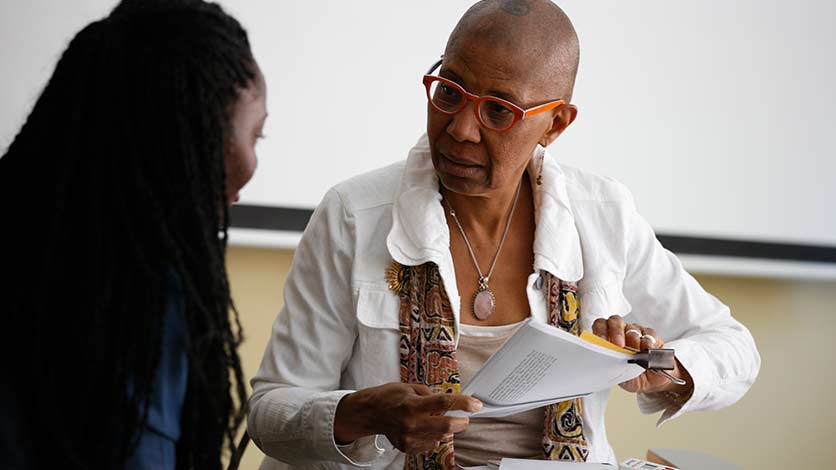
Course Spotlight
Craft of writing: rooting in the archive.
This course delves into the Naropa University Archive and its rich offerings to explore traditions, movements, and/or schools of writing that inform or extend the aesthetic vision of the Jack Kerouac School toward mindful writing. Possible recent historical examples include New American Poetry, the Beats, San Francisco Renaissance, the New York School, Black Mountain Poetics, the Black Arts Movement, and Language poetry, among others.
Degree Requirements
Unlike many online creative writing MFA programs, our asynchronous classes build community through writer-to-writer feedback and a structured curriculum.
Low Residency MFA in Creative Writing Requirements
26 credits of online asynchronous craft courses.
Students work one-on-one with a mentor, exchanging packets —consisting of letters, bibliographies, contemplative reflections, creative manuscripts, and critical essays—throughout the semester.
- WRI-631E Craft of Writing: Rooting in the Archive(6)WRI-648E Craft of Writing: Contemplative Experiments(6)
- WRI-678E Craft of Writing: Cultures & Communities(4)
- WRI-735E Craft of Writing: Contemporary Trends(6)
- WRI-755E Craft of Writing: Professional Development(4)
6 credits of MFA Thesis
6 credits of MFA Thesis (faculty mentorship on a book-length creative manuscript)
4 credits of the Summer Writing Program
Two eight-day summer residencies are completed at Naropa’s Boulder campus. Choose two of the following:
- WRI-751 Summer Writing Program(2)
- WRI-752 Week Two Summer Writing Program(2)
- WRI-753 Summer Writing Program(2)
4 credits of fall and spring residencies in Boulder, CO.
- WRI-789WE Fall Residency(1)
- WRI-791WE Spring Residency(1)
Why Choose Naropa?
Strong writing tradition.
Founded in 1974 by Allen Ginsberg and Anne Waldman, the Jack Kerouac School of Disembodied Poetics encourages experimental forms across genres , pushing for innovation inside and outside the classroom.
Career Readiness
Whether a student plans to teach, write, edit, or work in publishing, our low-residency program provides the framework they need to develop their professional skills alongside a vibrant and supportive writing community.
In-house Publishing
The Kerouac School’s student-run Bombay Gin literary journal publishes work from promising students and distributes it nationally through Small Press Distribution. Students interested in fine-craft letterpress printing can learn at Naropa’s Harry Smith Print Shop and Kavyayantra Press.
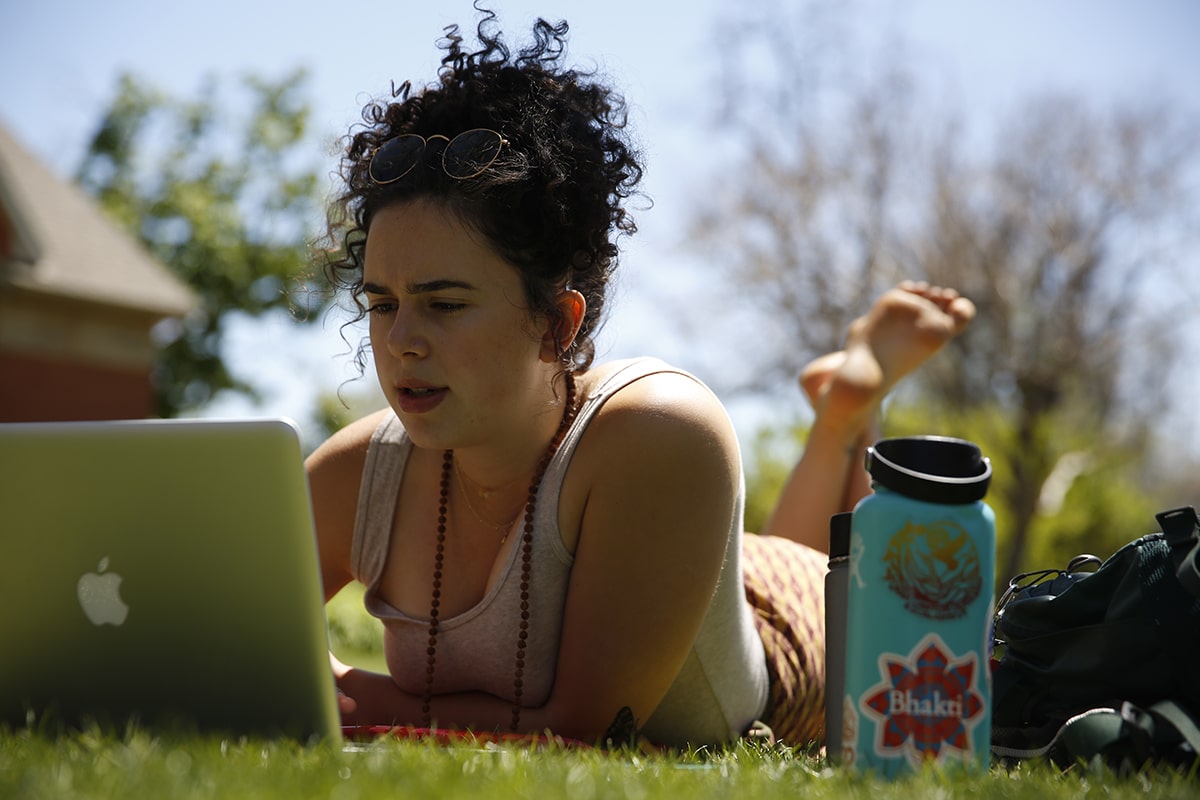
How this Program Prepares You
Professional dossier.
Graduates from our low-residency Creative Writing MFA emerge from the program with a solid record of written work . The pieces that make up their dossier are workshopped with peers and perfectioned with guidance from their tutor.
Critical Analysis
You’ll emerge from the program with critical analysis skills that go beyond reading between the lines of a written work. The program will teach you to recognize the role of intersectionality in the literary arts, looking at the wider spectrum that surrounds a piece, and identifying bias, assumptions and stereotypes.
Unleashing creativity
Our workshops, classes and Summer Writing Program encourage students to harness their creativity by exploring experimental forms . Low-residency students receive on-on one mentoring to help them develop their creative writing skills to the fullest, as well as feedback from their writing community, be it online or during their residency.
What You'll Learn
Highly developed writing craft.
Hone your voice in every step of the writing process.
Skill in Critical Analysis
Learn to discuss literary works through a variety of critical lenses.
Contemplative Writing Practice:
Use your writing practice as a tool for self-inquiry and discovery.
Social and Cultural Awareness
Recognize the role of race, class, and gender in literary history and works.
Career Preparedness
Graduate with a publishable manuscript and/or professional dossier.
Career Opportunities with a Low-Residency MFA in Creative Writing
- Lyricist: write words for songs, matching melody and rhyme.
- Poet: use language to creatively express emotion, ideas and experiences.
- Proofreader: check written work for errors and inconsistencies.
- English Teacher: teach at the postsecondary level.
- Author: craft and publish original material.
- Editor: review and improve written work for publication.
Hear from a Graduate
Jackie henrion, faqs about the low-residency mfa in creative writing, what is a low residency mfa in creative writing, why choose a low residency mfa creative writing program, how long does it take to complete a low residency mfa in creative writing, how is naropa’s low residency mfa in creative writing different from other programs, what types of funding are available.
Funding includes the Allen Ginsberg, Anne Waldman, and Anselm Hollo Graduate Fellowships.
The fellowships are awarded annually to three incoming MFA Creative Writing and Poetics students (residency program). Allen Ginsberg, Anne Waldman, and Anselm Hollo fellowship recipients will receive full funding (tuition and fees), plus an additional $5,000 scholarship as well as a $4,500 stipend. Fellowship recipients may not simultaneously hold a Graduate Assistantship.
Additionally, partial funding is provided for students who have applied for and been offered graduate assistantships with the Naropa Writing Center.
Visit our Graduate Scholarship page to read more about funding, fellowships and scholarships for the Low-Residency Creative Writing & Poetics MFA and other degrees.
Learn More About the Program
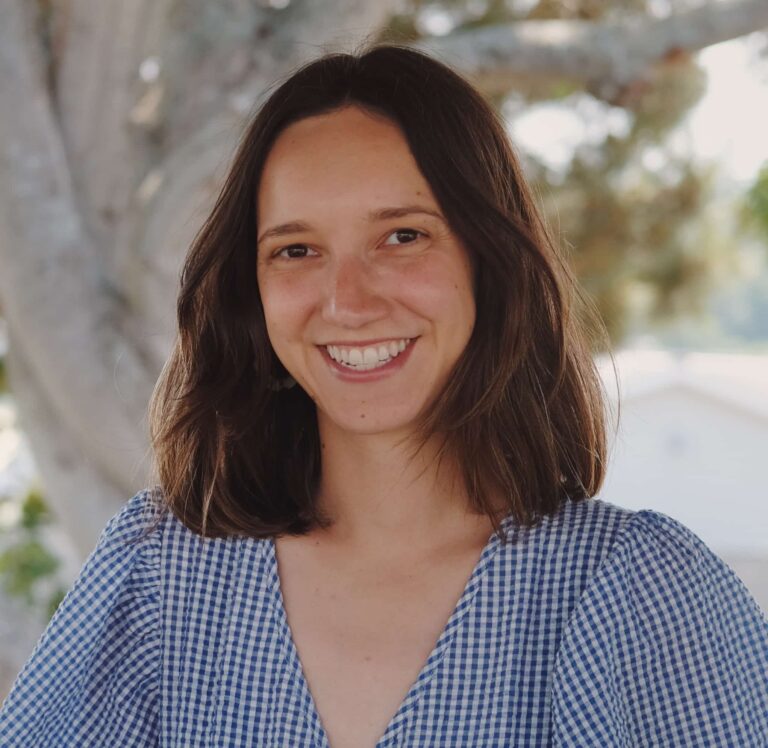
Connect with your counselor
Olivia phipps.
Graduate Admissions Counselor
- [email protected]
- Schedule an Appointment
- Attend An Info Session
Ready to Apply?
Admission requirements.
Naropa University values both academic excellence and critical self-reflection . Our application process not only evaluates academic performance but also candidates’ openness and willingness to engage in contemplation.
Learn more about admission requirements and the application process for our Low-Residency Creative Writing MFA.
Graduate Students
Prospective students who have completed an undergraduate degree are welcome to apply to Naropa. When applying, candidates must submit a transcript of their undergraduate coursework, a statement of interest, a resume, two letters of interest and a creative writing sample. They may also apply for financial aid at this stage. Discover all admission requirements.
International Students
If you obtained your undergraduate diploma from a non-US university, we require additional documentation to review your application. Learn how to apply to Naropa as an international student.
Costs and Financial Aid
Naropa University students have access to several financial aid opportunities and scholarships – over 75% of our graduate students receive some sort of financial support to pursue their studies. Use our calculator to estimate your tuition, housing, materials and other costs.
Undergraduate Scholarship Opportunities

Interested in our Low-Residency Creative Writing MFA?
Read our blog or listen to our podcast, heartfire festival returns to naropa university, episode 92. andrew schelling: writing as a spiritual practice, womxn of naropa celebrates national poetry month, summer writing program from the archives, together in spirit, student support and resources, academic support, online student support, career services, financial aid, accessibility, related programs, mfa in creative writing, ba in creative writing and literature, request information, plan a visit, about naropa, events & community, user information, support naropa.

2130 Arapahoe Avenue Boulder, CO 80302
1-800-772-6951
Worried about a Student?
© 2024 naropa university. all rights reserved., you are ready..
This is where experiential learning meets academic rigor. Where you challenge your intellect and uncover your potential. Where you discover the work you’re moved to do—then use it to transform our world.
“*” indicates required fields

- Request Info
- Visit Campus
- COVID-19 Updates
Search Naropa University
Naropa campuses closed on friday, march 15, 2024.
Due to adverse weather conditions, all Naropa campuses will be closed Friday, March 15, 2024. All classes that require a physical presence on campus will be canceled. All online and low-residency programs are to meet as scheduled.
Based on the current weather forecast, the Healing with the Ancestors Talk & Breeze of Simplicity program scheduled for Friday evening, Saturday, and Sunday will be held as planned.
Staff that do not work remotely or are scheduled to work on campus, can work remotely. Staff that routinely work remotely are expected to continue to do so.
As a reminder, notifications will be sent by e-mail and the LiveSafe app.
Regardless of Naropa University’s decision, if you ever believe the weather conditions are unsafe, please contact your supervisor and professors. Naropa University trusts you to make thoughtful and wise decisions based on the conditions and situation in which you find yourself in.
You are using an outdated browser. Please upgrade your browser to improve your experience. Thanks!

- Television Writing
- Screenwriting
- Social Impact Filmmaking
- Minor in Filmmaking
- Graduate Fall
- Graduate Spring
- Testimonials
- Intellectual Property
- Press Coverage
- Press Releases
- Photo Galleries
On Wednesday, March 27, please join us for a Zoom Info Session at 5:30 p.m. EST to learn more about our programs, ask questions, and prepare for the last chance to apply to our MFA in Film and MFA in TV Writing. RSVP for details: [email protected] Final application deadline for Fall 2024: May 5 for International Applicants, June 1 for Domestic Applicants.
Application deadline.
New admissions for Fall 2024 have begun. Priority Deadline is March 1, 2024.
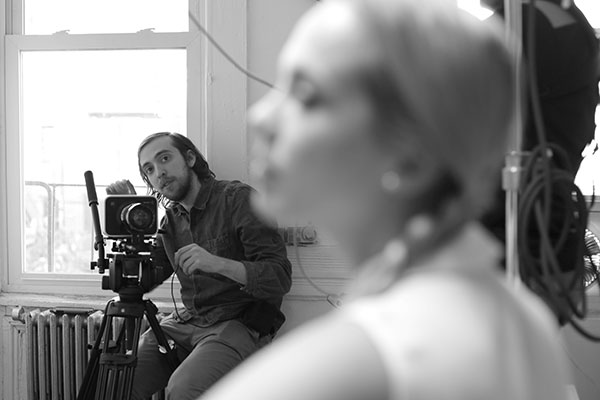
Current tuition is $471/credit for New York State residents and $963 /credit for non-residents. A New York resident who takes a full-time load of four courses for 12 credits would pay $8,596.00 for the semester, exclusive of fees and health insurance. The current billing rates can be found here .
The cost compares favorably to any number of film programs charging twice or three times as much, upward of $50,000 for a single year at some institutions. At ours, the whole MFA degree costs approximately $40,000 for New Yorkers. Unless you are getting a full tuition waiver somewhere, our rates are pretty hard to beat.
Out-of-state residents pay more, so if you are accepted to the program, you should consider establishing residency in New York State, a process that takes one year. If you're out of state or international, the whole degree is approximately $50,000.
Admission Requirements
This MFA program is intensive, and admission to it is highly selective. Upon review, finalists may be invited for an on-campus interview.
Please use Stony Brook Graduate School's Online Application .
You must create an account to start a new application. You can also log in to continue an application after an account has been created.
For admission, the following, in addition to the minimum Graduate School requirements, are required:
1. A bachelor’s degree from an accredited college or university.
2. Undergraduate grade point average of at least 3.0.
3. Three letters of recommendation.
4. A current resume
5. A statement of purpose . Describe in a page or two why you are interested in this opportunity, how you would benefit, and what makes you a particularly deserving candidate. Upload this to the Additional Supplemental Materials, personal statement section of the application.
6. Your specialization : Screenwriter/ Television Writer/Director/Producer/Independent Track. (Add this to the bottom of your personal statement.)
Your specialization: Film or TV Writing MFA. If Film, specify Screenwriter, Director, Producer or Independent Track.
7. Video Pitch. (Go to Portfolio Instructions and upload Video Pitch to the Digital Portfolio section of the application.)
- All candidates: This is one of the more important elements to your application. You have probably seen people pitching for donations on a crowdsourcing site. In this case, you should pitch us yourself as a candidate. You can mention a project you want to work on, or something else that is exciting to you but we are interested in who you are as a creative artist/storyteller . The video pitch should be creative, polished, inventive. We want you to win us over here! SUGGESTED LENGTH: 3 MINUTES
8. Directing and Producing Video Samples. (URLs for all video links may be uploaded in the Qualifications section.)
- Directing candidates only (not required for Screenwriting, Television Writing, or Producing candidates): Please include a link (or links) to up to 4 video samples of work to which you made a significant contribution. Be clear about what role you played: producer, writer, director, editor, production designer, cinematographer, etc. You may submit links for more than one piece but the total running time should not exceed 15 minutes. If you submit an excerpt, please describe the full work. Unless you are applying as a cinematographer or production designer, the entirety of your video sample should not be in the format of a professional reel but should also show us the substance of your work. (A reel might accompany another sample). In lieu of video, you may submit up to ten photographs, design samples, or photographs of your artwork.
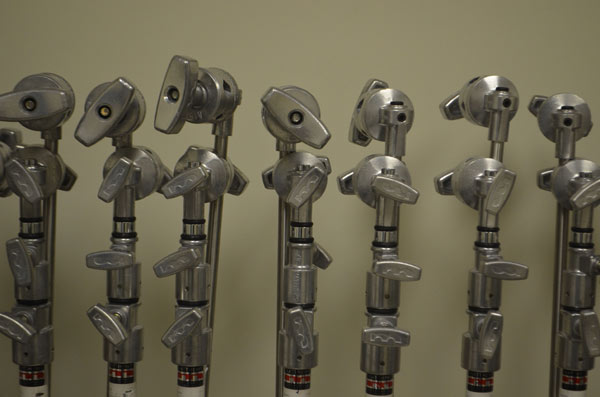
9. Written materials: (All written materials may be uploaded in the Additional Supplemental Materials section)
Your written material should include:
a. All Candidates: The Scene. Write a short, 2-3-page scene inspired by one of these words that have no English language translation. We prefer a scene with two characters where one character wants something from the other, and that you do NOT explicitly use the word you have chosen .
- Glas wen (Welsh) - A smile that is insincere or mocking. Literally, a blue smile.
- Yuputka (Ulwa) - The phantom sensation of something crawling on your skin.
- Iktsuarpok (Inuit) - You know that feeling of anticipation when you’re waiting for someone to show up at your house and you keep going outside to see if they’re there yet? This is the word for it.
b. All Candidates: The Logline. Write an extended log line or a paragraph describing a project you’d like to realize with us. Attach this logline to the bottom of your scene.
c. Screenwriting, Television Writing, and Directing Candidates: The Writing Sample. Please include a writing sample of up to 10 pages. This can be a complete short film, web episode, play, short story, or an excerpt of a feature screenplay, a television script, a webisode, a sketch or series of sketches. If you choose to submit an excerpt, please include a few lines describing the full work.
d. Producing Candidates: The Writing Sample. Please include a writing sample of up to 10 pages, including, critiques, production program notes, and/or literary criticism of a chosen screenplay, excerpts of a film or screenplay you have written, acquired or produced; or a brief statement describing your view of the role of Producing in today’s platform agnostic film industry.
10. Proficiencies. Directing Candidates Only
Please include a list of technical proficiencies in: camera, lighting, editing, and any related skills at the bottom of your statement of purpose.
UPON ACCEPTANCE BY THE MFA PROGRAM IN FILM
If a student accepted into the M.F.A. program wishes to offer, either for credit toward the degree or for exemption from enrollment in courses required by Stony Brook, analogous courses taken at another university, transcripts and other supporting material must be presented for consideration by the graduate program director before the end of the student’s first semester in the program (see Transfer of Credit from Other Universities).
Robert Sklar Diversity Fellowship In Fall 2024 , we will award a handful of full and partial Graduate and Teaching Assistantships to our incoming students, particularly to those students who can contribute to the diversity of Stony Brook. All applications for full-time study in the Fall term are considered, provided that the application is submitted by December 15, 2023 . These GA/TA awards are extremely competitive.
A full TA/GA offer comes with an academic-year stipend of approximately $23,100, a 15-20 hour/week workload, full tuition waiver and subsidized health insurance. A partial TA/GA offer comes with a 50% tuition remission scholarship, and an academic-year stipend of approximately $11,550, as well as subsidized health insurance and an 8-10 hour/week workload. A 25% GA offer comes with a 25% tuition remission scholarship and an academic-year stipend of approximately $5,775, subsidized health insurance, and a 5-6 hour/week workload. Students in good standing could expect to have their funding renewed for their second year, when they teach film and screenwriting courses to Stony Brook undergraduates.
Recipients of funding offers who can contribute to the diversity of Stony Brook may be additionally eligible for the Turner Fellowship . Those with outstanding academic promise may be eligible for the Graduate Council Fellowship . These fellowships award an additional $30,000 over the course of three years to their recipients, along with tuition waiver and stipend.
GRE - Even though the application will ask for it, you do not need GRE scores. In the program drop-down menu, please choose MFA in FILM, and indicate whether you are applying as a part-time or full-time student.
If a recommender does not want to submit a letter online or doesn’t use email, you may print out a blank recommendation form for him or her to fill out and mail directly to the program.
Electronic official transcripts from any undergraduate and graduate institutions you have attended should be sent to the Office of Graduate and Health Sciences Admissions, at [email protected] .
or snail-mailed directly to the graduate school:
Stony Brook University Graduate School Office of Admissions and Student Services Old Computer Science Bldg, Room 2401 Stony Brook, NY 11794-4433
For questions, please call Margaret Grigonis at (631) 632-5028
Qualified graduate students without TA/GA funding are encouraged and, in their second year, eligible to apply for teaching artist and administrative jobs as they arise.
To favor one incoming student over another, by awarding assistantships or prizes, runs counter to our philosophy that we are all in this together, faculty and students alike, struggling with the extraordinarily difficult work of putting words together. If you earn admission to our program, with funding or without, we guarantee that you will be treated with the same respect as any other member of our community.
Then there's your own resourcefulness in defraying the costs of graduate study. Applicants are encouraged to explore opportunities for external funding independent of our program's limited resources. For more information on other types of financial aid, contact the Office of Student Financial Aid Services at (631) 632-6840 .
BACK TO TOP
For More Information
The fine print about transfer credits, international students, and other admissions arcana is revealed in the Graduate Bulletin .
Or contact us:
MFA Programs in Film & TV Writing Stony Brook Manhattan Center for Creative Writing & Film 535 Eighth Ave 4th & 5th Floors New York, NY 10018 Phone: (646) 472-2025 Fax: (646) 472-2090 E-mail: [email protected]
After hiding the tool, if you would like to re-enable it, just press CTRL+U to open this window. Or, move your cursor near the tool to display it.

Aram Mrjoian
- MFA in Creative Writing - Low Residency
Contact Information
Graduate Admission
Phone: 253-535-8570
Email: [email protected]
Pacific Lutheran University 12180 Park Avenue South Tacoma, WA 98447-0003
Speak to the Program Director
Make a phone appointment
College Links
- College of Liberal Studies
Social Media
Creative Nonfiction, Fiction

Aram Mrjoian is the editor-in-chief of The Rumpus and a 2022 Creative Armenia-AGBU Fellow. His debut novel, Waterline , is forthcoming with Harper Via in 2025. Aram has previously worked as an editor at the Chicago Review of Books , the Southeast Review , and TriQuarterly . He is the editor of the anthology We Are All Armenian: Voices from the Diaspora , published by the University of Texas Press in 2023. His writing has appeared in The Guardian , Runner’s Worl d, Literary Hub, Catapult, West Branch, Electric Literature, Gulf Coast, Boulevard, Joyland , Longreads , and many other publications.
Mentor. Workshops and classes in creative nonfiction and fiction.
Statement: My primary goal as an educator is to help students develop artistic agency and encourage creative sustainability. Rather than fall back on craft axioms around what makes good writing, my teaching emphasizes individual decision-making, creative exploration, and radical revision, with the hope that you will develop enduring strategies for maintaining your writing practice long after completing the program. Being a writer takes time, patience, and practice, there’s no universal formula for finding your voice and improving your craft. As you progress, my focus remains on process and revision, with the understanding that eventually you’ll likely have to negotiate your work’s intentions more directly with readers, editors, and critics. No matter your artistic and professional goals, I want you to feel a sense of authority over your work. My reading selections and recommendations will often mirror this philosophy—I enjoy readings that showcase an author’s risks and challenge or subvert commercial expectations.
As a workshop leader and mentor, I center collaborative conversations in which you can explain your reasoning and make a case for how you have put together a specific piece of writing. From there, I enjoy asking questions and discussing benefits and opportunities for revision, always maintaining the acknowledgment that your vision for your work takes priority (that’s not to say I won’t challenge you on it). Together, we will develop systems for navigating your personal aspirations, creative setbacks, and future writing goals.

NATIONAL MUSIC THEATER INSTITUTE
NMTI ENABLES STUDENTS TO CREATE ORIGINAL WORK, LAYING THE GROUNDWORK FOR THE FUTURE OF MUSIC THEATER.

MOSCOW ART THEATRE SEMESTER
partnership.
CONSERVATORY RIGOR MEETS CULTURAL IMMERSION AT THE BIRTHPLACE OF MODERN THEATER.
STUDY ABROAD WITH A CONSERVATORY-BASED SCHEDULE
Daily movement and acting classes are complemented with design, voice, Russian language, and Russian theater history. Experience conservatory rigor with classes 10am-6pm, six days a week, taught by masters at one of the world's most renowned theater schools. Conferring 20 credit hours, t he Moscow Art Theatre Semester is only offered only in the fall.
IMMERSE YOURSELF IN THE CULTURE
You will experience the rich theatrical culture that permeates Moscow by attending up to 25 performances of theater, opera, ballet, and music throughout the semester as well as enjoying frequent museum visits.
LIVE IN THE HEART OF MOSCOW
Students live in a newly renovated dormitory with a kitchen, Wi-Fi, excellent security, and laundry. Students share high-ceilinged single or double rooms equipped with a twin bed, wardrobe, storage cubbies, bookshelves, and a desk.
WEEKEND IN ST. PETERSBURG
Discover the history, culture, and beauty of russia's historic capital city with a long weekend in st. petersburg. visit cultural sites such as the hermitage state museum and the winter palace. , discover the birthplace of modern drama.
The Moscow Art Theatre Semester immerses actors in the Stanislavski training method in the very theater where he developed his approach. NTI has partnered with the Moscow Art Theatre School for more than 27 years in one of the longest and most celebrated cultural exchanges between the U.S. and Russia.
ORIENTATION AT THE NATIONAL THEATER INSTITUTE
The program begins with a three day orientation at the Eugene O'Neill Theater Center in Waterford, CT. Airfare to and from Moscow is included in the program comprehensive fee.

Moscow, the birthplace of modern drama, is a vibrant international city with a 2,000 year history. Russians in general and Moscovites in particular have an enormous appreciation of culture, and the cultural community flourishes throughout the city.
Why go to mats we offer a total immersion in the craft of theater. you will experience the vitality of one of the world’s first-class theaters and moscow’s best teachers. come to moscow to challenge yourself as a professional. there are very few places in the world where theater truly matters. this is one., anatoly smelianksy president emeritus, moscow art theatre school, the moscow art theatre is located two blocks from red square on a beautiful pedestrian street, near the historic bolshoi theatre. restaurants, coffee shops, luxury stores, and major metro stations are all within a short walking distance from the school and dorm. .

ADDITIONAL PROGRAM INFORMATION
- overview Founded in 1964, the National Playwrights Conference at the Eugene O’Neill Theater Center is the country’s premiere program for new play development. Every summer, six to eight unproduced works are selected from a pool of 1,000+ submissions for a week-long, playwright-driven workshop on the O’Neill’s campus in beautiful Waterford, CT. Each play is matched with a team of industry-leading directors, dramaturgs, and actors for an intensive 30-hour rehearsal period, culminating in two public, script-in-hand staged readings. At every step in the process, the O’Neill strives to foster an inclusive, collaborative environment in which artistic exploration and experimentation is encouraged. The upcoming National Playwrights Conference will be held in July 2019. SELECTION The National Playwrights Conference is proudly committed to an open, blind submission process, and we welcome all playwrights, regardless of location or representation, to share their work with us. Our offices typically receive between 1,200 and 1,500 scripts annually, and a small volunteer corps of 200+ industry professionals — directors and dramaturgs, actors and designers, critics and administrators — reads every submission in its entirety. Every submission is considered with care and appreciation, undergoing a rigorous evaluation process in which form, content, and developmental goals are meticulously reviewed and discussed. At the end of this six-month process, eight outstanding plays — chosen for their artistic excellence, originality of voice, singularity of perspective, and developmental potential — are selected for workshop residencies at the O’Neill. DEVELOPMENT The National Playwriting Conference offers each play selected for development a week-long, 30-hour workshop, culminating in two public script-in-hand staged readings. These workshops are wholly playwright-driven, and staffed with industry-leading directors, dramaturgs, actors, and designers. Playwrights are welcome to revise, rework, and rewrite as much or as little as they like while in residence with us — as always, risk-taking is encouraged. STAGED READINGS At the end of their week-long developmental workshop, each play receives two public, script-in-hand staged readings. We believe that these staged readings are a crucial step in the O'Neill’s developmental process, serving as an invaluable opportunity to hear a fresh audience’s real-time response to the play in a welcoming, low-pressure environment. DREAM DESIGN The O’Neill is also delighted to offer our playwrights the rare opportunity to confer with a team of top-of-field designers about the visual, aural, and spatial world of their play. To this end, each workshop kicks off with an hour-long, public conversation between the playwright, scenic designer, light designer, and sound designer — all in the interest of facilitating the play’s later transition from page to stage. Original scenic renderings are created based on this discussion, and presented on the night of the play’s first public reading. RESIDENCY In addition to developmental workshops, the National Playwrights Conference is delighted to offer participating writers a month-long residency at the O’Neill’s ninety-acre seaside property — including full room and board, as well as a stipend. We welcome you to use this time however you see fit. Many playwrights continue to reflect and revise their play while others begin new projects, and others still use this time to retreat and recharge. Playwrights in residence are welcome to attend the rehearsals, readings, and presentations of their peers' work, as well as their own: we’ve found that one of the most valuable elements of an O’Neill summer is its strong community of fellow writers, artists, and theater-makers — which endures long after the summer conferences have drawn to a close.
- history Since its founding in 1964, the National Playwrights Conference has developed over 700 plays; the overwhelming majority of which have gone on to countless productions worldwide. The Conference was first lead artistic director Lloyd Richards (1969-1999), and subsequently by Jim Houghton (2000-03). The current artistic director, Wendy C. Goldberg, has been at the helm of the National Playwrights Conference since 2005. > Discover the new plays we've developed by decade.
- artistic director Wendy C. Goldberg is in her 14th season as Artistic Director of the National Playwrights Conference. Wendy also leads the O'Neill's National Directors Fellowship, now in its third year. Under Goldberg's tenure, the O'Neill was awarded the 2010 Regional Tony Award, the first play development and education organization to receive this honor. In addition, Goldberg has overseen the development of more than 90 projects for the stage, many of which have gone on to great acclaim with productions in New York, London, and around the country. Among them are the 2010 and 2012 Susan Smith Blackburn Award-winning plays (Julia Cho's The Language Archive and Jennifer Haley's The Nether), two American Theatre Critics Association Citation Award-winning Plays (Lee Blessing's Great Falls and Deb Zoe Laufer's End Days), and 2009 Pulitzer Prize Winner for Drama (Lynn Nottage's Ruined), written in part while Nottage was a Writer-in-Residence at the O'Neill in the summer of 2006. In 2005, Goldberg included playwright Samuel D. Hunter, now an Obie and MacArthur Award-winning playwright, in her first season as Artistic Director when he was still a student at the MFA Playwrights Workshop at the University of Iowa. Other critically acclaimed work developed at the O'Neill during Ms. Goldberg's tenure includes Lindsay Ferrentino's Ugly Lies The Bone, Mike Lew's Tiger Style!, Deborah Zoe Laufer's Leveling Up, Adam Bock's The Receptionist, Rebecca Gilman's The Crowd You're in With, Jason Grote's 1001, and Julia Cho's Durango. In addition to re-establishing the Conference a leader in the field, Ms. Goldberg has created domestic and international collaborations with theaters such as the Alliance Theatre in Atlanta, the Goodman Theatre in Chicago, and in Ireland with the Abbey Theater and Druid Theatre Company. She is the first woman to lead the Conference in its 54-year history. Ms. Goldberg herself is an award-winning director whose credits include world premieres, revivals, classics, and musicals at the most esteemed theaters in the country, including: Arena Stage, the Guthrie, the Goodman, Denver Center, the Alliance, Cincinnati Playhouse in the Park, Center Stage, Actors Theater of Louisville, Signature Theater, Paper Mill Playhouse, Philadelphia Theater Company and off-Broadway at Ars Nova, The Daryl Roth 2, and McGinn-Cazale. Wendy was represented on Broadway as Creative Advisor to the long running Rock of Ages. She has directed work in every major play developmental program in the country. As Artistic Associate at Arena Stage for five seasons, Ms. Goldberg helped to create the theater's new play initiatives and led them from their inception through 2005. American Theatre magazine has described her as "one of the most promising theater artists working today." Other than the theater's founder, Zelda Fichandler, she is the youngest director to have directed for Arena Stage in its 50 year history, making her main stage debut at the age of 26 with the revival of K2 in celebration of the company's 50th anniversary. Ms. Goldberg is a visiting faculty member at the Iowa Playwrights Workshop and the Yale School of Drama. She has served on panels for the NEA and TCG, and has served as a judge for the Susan Smith Blackburn Prize as well as a guest at the Commercial Theater Institute through the Broadway League. Ms. Goldberg has served on the Executive Board of the Stage Directors and Choreographers Society for 11 years and has been a Tony Voter since 2005. She is an honors graduate of the University of Michigan (BA) and holds a MFA in Directing from UCLA's School of Theater, Film, and Television where she received the Distinguished Alumna Award in 2014.
- open submission process The National Playwrights Conference is delighted to accept script submissions from playwrights of all stripes. We hold our mission of discovering and amplifying the voices of new plays and playwrights in high esteem, and remain committed to maintaining the open, blind submissions policy that has been place since the inception of the National Playwriting Conference itself. To that end, we don’t require those submitting to have an agent or letter of nomination to apply; rather, we only ask that you have the right to work in the United States. Our literary offices typically receive between 1,200 and 1,500 scripts annually, and a small volunteer corps of 200+ professional theatermakers — directors and dramaturgs, actors and designers, critics and administrators — reads every submission in its entirety. Every submission is considered with care and appreciation, undergoing a rigorous evaluation process in which form, content, and developmental goals are meticulously reviewed and discussed. At the end of this six-month process, eight outstanding plays — chosen for their artistic excellence, originality of voice, singularity of perspective, and developmental potential — are selected for workshop residencies at the O’Neill. The submission fee is $35. This covers the costs of the process itself — its organization, administration, and reading. We recognize that this can be prohibitive, and the O'Neill is actively making efforts to reduce this fee, most notably with the establishment of the Wendy Wasserstein Endowment Fund. As this endowment continues to grow, we hope to eventually reduce and eliminate the fee in its entirety, ensuring that submission process remains open and equitable to all.
- submission info The 2019 National Playwrights Conference will accept applications from September 13, 2018 through October 12, 2018 at 11:59pm PST. If you are interested in submitting a play for our consideration, please review our submission guidelines below. Be sure to sign up to email updates, too: that way, you’ll be the first to know when our application window opens. > View NPC Online Submission Guidelines > View NPC Hard Copy Submission Guidelines > Sign-up for NPC updates Eligibility Requirements: You must be 18 years of age and have the right to work within the United States. The play must not have had a professional production, or be scheduled to have a professional production, prior to August 2019. A professional production means that the artists working on the show were compensated for their time, and that all of the theatrical elements one hopes to see in a production were present. You may submit one original or adapted work, providing that the rights to any material not in the public domain have been granted in writing, and a copy of the release is sent along with the script. We develop all genres and styles of drama, including one-acts and solo pieces. NPC does not develop music theater works, though you may submit such work to the National Music Theater Conference. While we accept work that has been submitted to NPC in previous years, we recommend that you share new work with us each year. Only complete applications will be accepted, whether in hard copy or electronic form. > Start your application!
- frequently asked questions We’ve compiled a list of frequently asked questions for your convenience below. However, if you would prefer to speak directly to a member of our literary staff, you’re more than welcome: we gladly devote much of our year to facilitating this process, and we’re always happy to speak with playwrights. You can reach the literary office via email at [email protected], or by phone at 860-443-5378 ext. 227. > Review our frequently asked questions
- 2018 summer season > Discover the 2018 National Playwrights Conference The O'Neill's intensive national reach from the Open Submissions process also serves the larger theater community by spotlighting 45-65 finalist plays to peer theaters for development and production. > See the 2018 NPC FInalists
EXPLORE OTHER PROGRAMS
- Mission, Vision, and Values
- Equity, Diversity, and Inclusion
- Equity 2030
- Land Acknowledgement
- Disclosures
- University Leadership
- Mustang Promise
- SMSU's Ecomonic Impact
- Academic Programs and Degrees
- Graduate Programs
- Online Degrees
- Online Certificates
- Admission Homepage
- Undergraduate
- International
- Returning Students
- College Now
- Online Learning & Transfer Partnerships
- Summer Term
- Mustang Pathway Program
- Cost to Attend SMSU
- Financial Aid
- Scholarships
- Event Calendar
- Make A Gift
- Academic Calendars
- Campus Events Calendar
- Campus Bookstore
- Class Schedule
- D2L Brightspace
- SouthwestNet
- Zoom Web Conferencing
- Student Basic Needs
- Accessibility Services
- Campus Dining
- Career Services
- SMSU Scholarships
- Technology Services
- Administrative Links
- Business Services
- Commencement
- Human Resources
- News & Events
- Public Safety
- Registration & Records
- Residence Life
- Student Handbook
- Deeann Griebel Student Success Center

“The SMSU RN to BSN Program does not have you take a set amount of credits each semester. This flexible scheduling was perfect for me as it allowed me to vary the amount of credits I took each semester. I would have struggled without that flexibility as I am a non-traditional student who is also a wife, mother of four, and worked full time while completing my degree. This program is designed to fit into your life, whether you want to be a full-time or part-time student.” Leah Bittner, '22 Alum
18th Annual Fine Arts Celebration
Published Monday, April 01, 2024
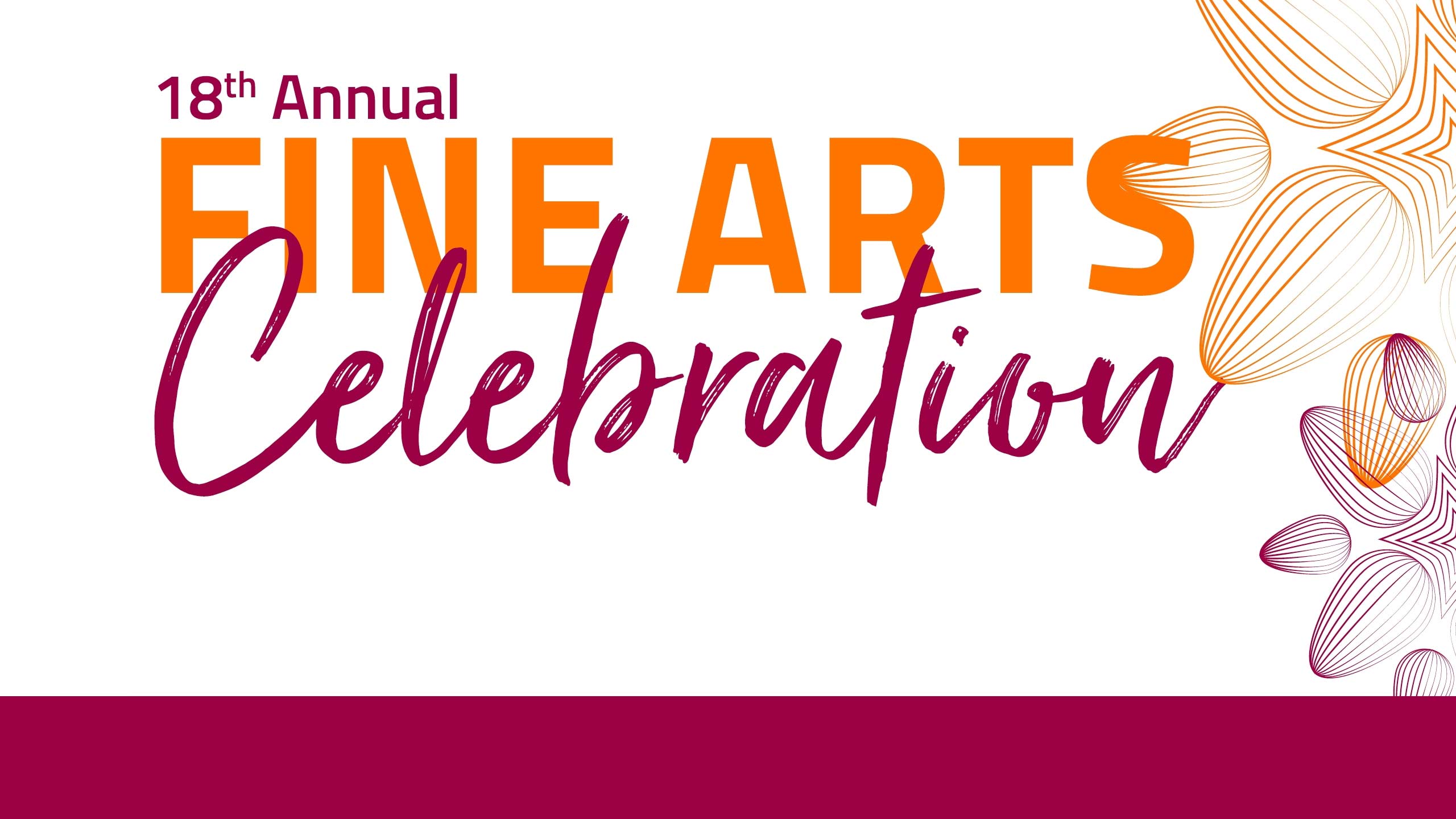
The SMSU Fine Arts and Communications Department with the Creative Writing Program present the 18 th Annual Fine Arts Celebration the entire month of April through May 2, 2024 showcasing creative works from SMSU students and faculty.
The 18th Annual Fine Arts Celebration schedule includes:
Art and design.
- Gold College: Unsung Heroes - Dr. Pat Brace speaking on Rosa Bonheur March 28 at 12:00 to 1:30pm in BA 102
- Art Exhibit "Gender Expression" April 2 to April 15 in the Whipple Gallery, spo nsored by LGBTQ+ and the Art Club with contributions from SMSU students
- Graduating Senior Art Exhibition April 16 to April 30 in the Whipple Gallery
- Senior Art Exhibit Reception April 17 at 5:30 to 7:30pm in the Whipple Gallery
Communication Studies
- Broadcast Digital Media Student Media Showcase May 1 at 4:00 to 6:00pm in BA 102
Creative Writing
- Perceptions Student Literary & Art Journal Reading April 12 at 12:00 to 1:00pm in Whipple Gallery
- "Stanger Than Fiction: A Fanfiction Celebration of Stanger" April 17 at 12:00 to 1:00pm in Whipple Gallery
- Telling Women's Stories: Readings from Competition Winners April 24 at 12:00 to 1:00pm in Whipple Gallery
- SMSU Student Recital April 3 at 1:00 to 2:00pm in the SMSU Fine Arts Theatre
- Southwest Minnesota Orchestra "Children's Concert" April 10 at 10:00am and 1:00pm at SCCPA
- SMSU Glee Club & Alta Voce "Murmurations" April 13 at 2:00 to 3:00pm at First Lutheran Church
- SMSU Jazz Ensemble Spring Concert April 15 at 7:30 to 8:30pm in the Fine Arts Theatre
- SMSU Student Recital April 17 at 1:00 to 2:00pm in the SMSU Fine Arts Theatre
- SMSU Music Alumni Weekend April 19-21
- SMSU/Community Concert Band & Symphonic Chamber Winds "Oh, the Places You'll Go!" April 20 at 3:00 to 4:5pm in the SMSU Fine Arts Theatre, also featuring members of the Alumni Band
- Music Alumni Reception April 20 at 5:30 to 7:30pm in the Whipple Gallery
- SMSU Chorale "Flyover Country" April 21 at 2:00 to 3:00pm at First Lutheran Church, also featuring members of the Alumni Choir
- SMSU Student Recital April 24 at 1:00 to 2:00pm in the SMSU Fine Arts Theatre
- Southwest Minnesota Orchestra & St. Paul Conservatory of Music Orchestra Festival April 27 at 10:00 to 5:00pm, String Festival in the SMSU Fine Arts Theatre April 27 at 5:00 to 7:00pm, Festival Orchestra Joint Concert in the SMSU Fine Arts Theatre
- Southwest Minnesota Orchestra "Mozart Mania" with guest violinist, Risa Schuchter and artist-faculty from the St. Paul Conservatory April 28 at 4:00 to 6:00pm at Holy Redeemer Church Tickets $12, $5 for students
- An Inspector Calls public performances in the SMSU Fine Arts Theatre April 10-13 at 7:30pm and April 14 at 2:00pm. Tickets $10 at the door. Free to SMSU students and faculty with valid ID.
- 14th Annual Fashion Runway April 16 at 6:00 to 8:00pm in the SMSU Fine Arts Theatre Lobby
- Stage Management Showcase May 2 at 10:00am to 12:00pm in the Upper FA Hallway
Mustang Ovations
- April 18 at 4:00 to 5:30pm in the Upper Level Conference Center
General Information All events are free and open to the public unless noted. For more information, call the Fine Arts and Communication office at (507) 537-7482. Tune in to Marshall Radio for weather-related announcements.
ADA/Section 504 : Individuals with a disability who need a reasonable accommodation to participate, please call SMSU Accessibility Services at 507-537-7318, or the Minnesota Relay Service at 1-800-627-3529. Please allow 5-7 days advance notice to schedule the accommodation.
Parking Directions Generally, parking is available without a permit anywhere on campus after 4:30 p.m., except in specified parking areas. If you are visiting the campus during the day for a Fine Arts event, call the department office, or Security at (507) 537-7252, for parking updates. We will coordinate free parking for events upon request.
To find event locations, or an adjacent parking lot, visit the SMSU Interactive Campus Map . Scroll down on the campus map to check the areas you wish to locate on campus.
On-Campus Locations BA - Bellows Academic CC - Conference Center CH - Charter Hall FA - Fine Arts
Off-Campus Locations First Lutheran Church, 100 Church St, Marshall Marshall-Lyon County Library, 205 C S, Marshall SCCPA: The Schwan Community Center for the Performing Arts at Marshall Senior High School, 400 Tiger Dr
Thank you for your interest and support of the Fine Arts!
Related Articles
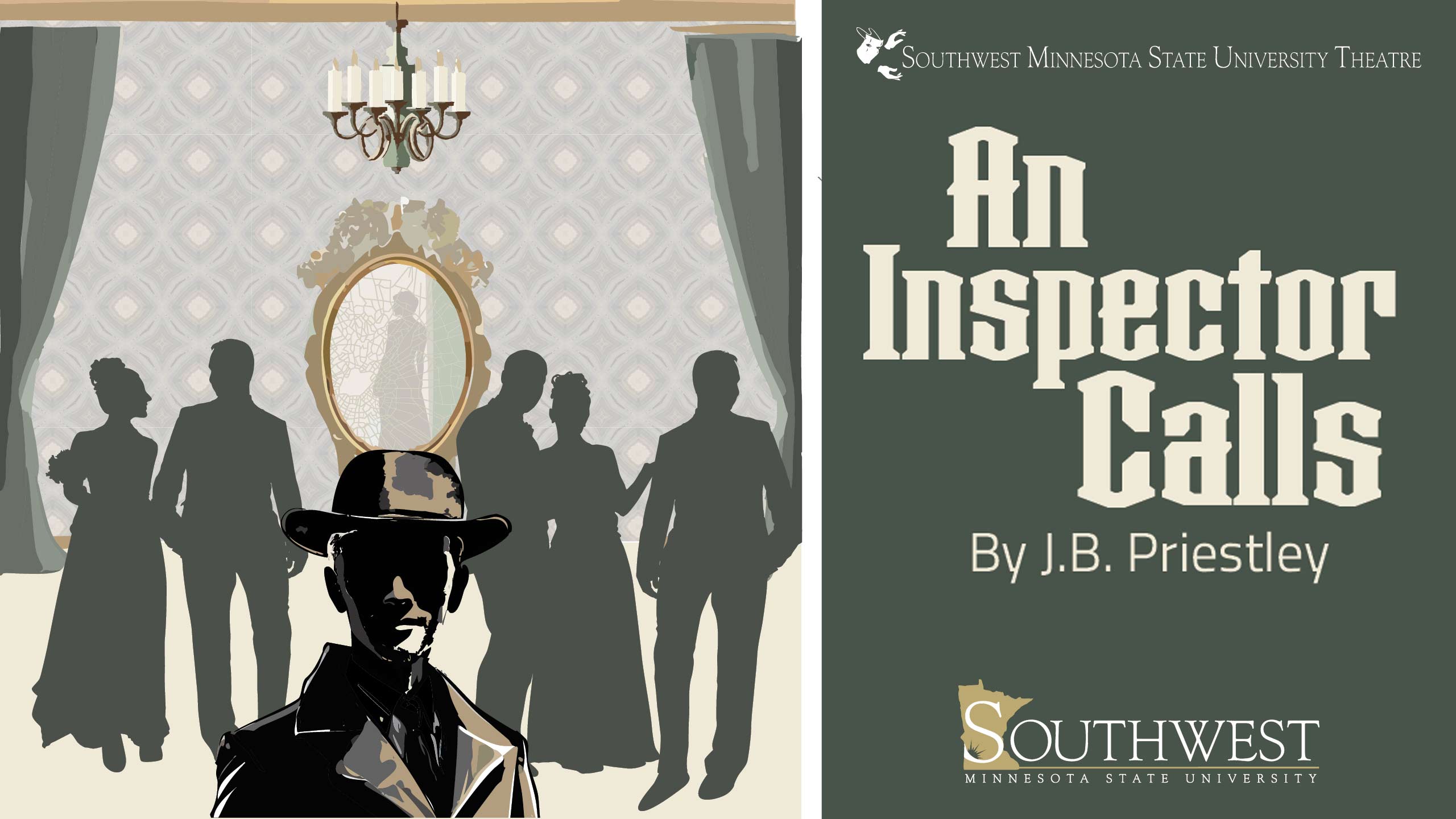
SMSU Theatre Presents "An Inspector Calls" April 10-14
Posted on 04-02-2024
Read Article
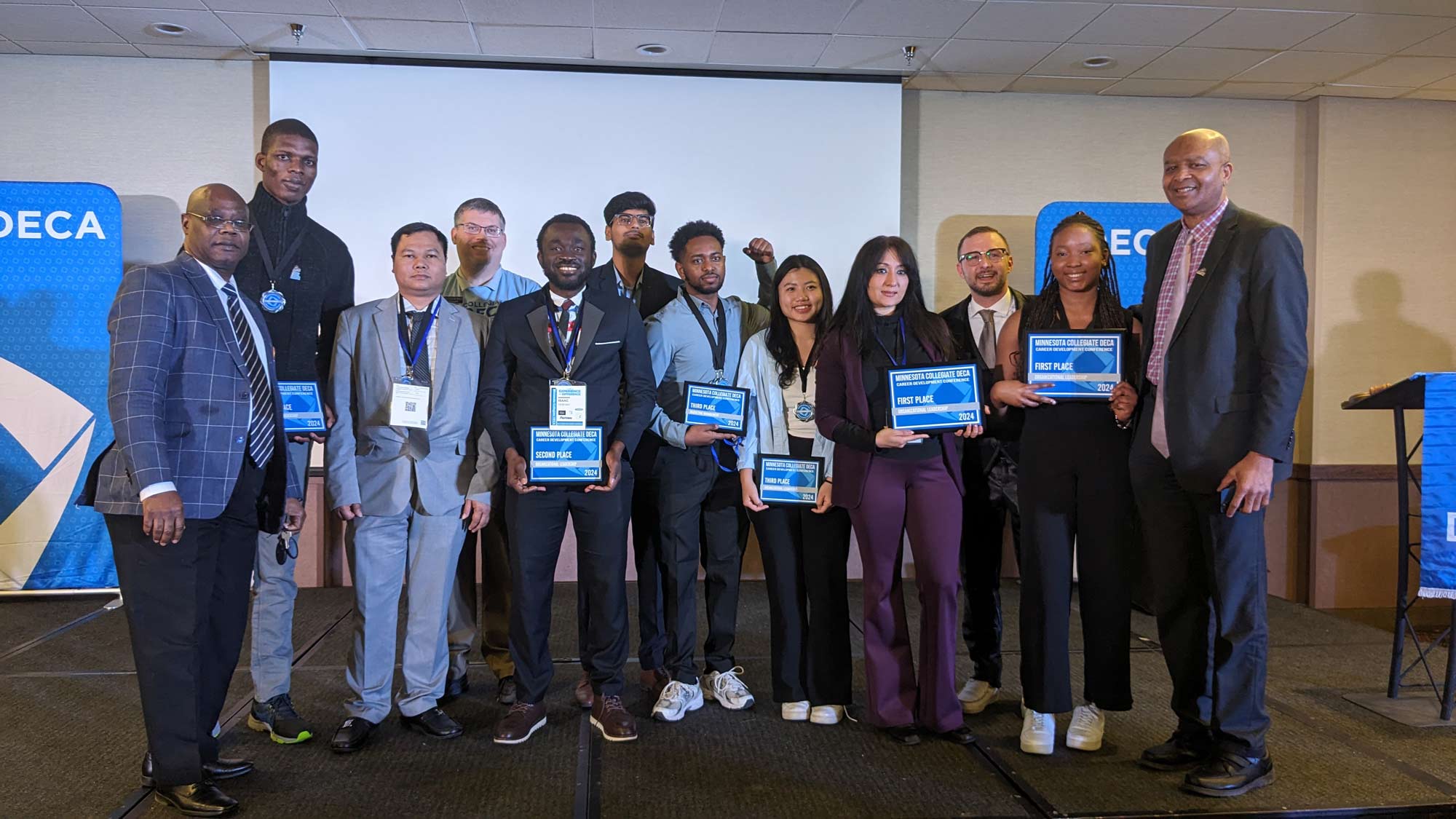
SMSU DECA Teams Sweep State Competition
Posted on 03-29-2024

SMSU to Host Events for Trans Day of Visibility, April 9
Posted on 03-26-2024
- SMSU Today Home
- Recent Articles
- Upcoming Campus Events
- Article Categories
- Faculty & Staff in the News
- external link Athletics News
- Foundation News
- Alumni News
- SMSU Rankings
- Southwest Stories
- external link Campus News Digital Archives
- SMSU Today RSS
- external link Events Calendar RSS
- SMSU Info RSS
- SMSU Featured Stories RSS

IMAGES
VIDEO
COMMENTS
University of Oregon (Eugene, OR) Visitor7, Knight Library, CC BY-SA 3.0. Starting off the list is one of the oldest and most venerated Creative Writing programs in the country, the MFA at the University of Oregon. Longtime mentor, teacher, and award-winning poet Garrett Hongo directs the program, modeling its studio-based approach to one-on ...
Best MFA Creative Writing Programs (Continued) 6) University of Arizona (Tucson, AZ) This 3-year program has many attractive qualities. It's in "the lushest desert in the world", and was recently ranked #4 in creative writing programs, and #2 in Nonfiction. You can take classes in multiple genres, and in fact, are encouraged to do so.
University of New Orleans. The University of New Orleans in New Orleans, Louisiana, offers both online and on-campus versions of their MFA in Creative Writing program. Both programs take students around three years to complete and allow for focuses in poetry, fiction, or creative nonfiction. Students of these programs will also have the ...
Its Master of Fine Arts program is one of the best MFA creative writing programs in the country, exposing students to various approaches to the craft. While studying under award-winning poets and writers, students may specialize in either poetry or fiction. 3. University of Texas at Austin - New Writers Project.
In ranking the schools, I considered five major criteria: #1: MFA Ranking —If a school has a great graduate creative writing program, it means you'll be taught by those same professors and the excellent graduate students they attract. Schools with strong MFA programs are also more likely to have solid alumni networks and internship opportunities.
MFA in Creative Writing Program Guide. Whether focusing on poetry, fiction, or nonfiction, a creative writing degree prepares students for a multitude of career options. Spanning two years, a master of fine arts (MFA) program trains you to become a skilled writer, communicator, and editor who can receive and apply feedback effectively.
The MFA + MA in Creative Writing and English program is a unique dual graduate program that provides students with the opportunity to pursue both creative and critical writing. This program boasts intimate classes; close mentorship from a renowned faculty of writers; and a variety of writing workshops in poetry, fiction, or creative nonfiction.
6. Read over the classes offered in the program. You should also review the classes that are offered in the MFA program to see if they are of interest to you and relate to your writing. Look for a program that seems to speak to your interests and goals as a writer, as it will likely be a better fit overall. [12]
Our list of 259 MFA programs for creative writers includes essential information about low-residency and full-residency graduate creative writing programs in the United States and other English-speaking countries to help you decide where to apply. It also includes MA programs and PhD programs.
Earn an MFA in Creative Writing Online. $637/credit (48 credits total) Transfer up to 12 graduate credits. 100% online - no residency required. Four fiction genres to choose from. Career-focused certificate included. No application fee or GRE/GMAT scores required. Request Info Apply Now.
Here is the list of 53 universities that offer fully-funded MFA programs (Master's of Fine Arts) in Creative Writing. University of Alabama (Tuscaloosa, AL): Students admitted to the MFA Program are guaranteed full financial support for up to 4-years. Assistantships include a stipend paid over nine months (currently $14,125), and full payment ...
About the Program Our innovative MFA program includes both studio instruction and literature courses. Writers can take workshop courses in any genre, and they can write a thesis in fiction, nonfiction, poetry or "hybrid" (multi-genre) form. In the second year, they teach popular Creative Writing courses to Davis undergraduates under faculty supervision, gaining valuable
The pursuit of an MFA in Creative Writing may begin as a place to hone your craft as a writer, and many successful career novelists and freelance writers graduate from MFA programs. The intensive writing experience of an MFA will train you for a variety of careers in journalism, marketing, public relations, arts administration, publishing ...
The coursework for a Master of Fine Arts (MFA) in Creative Writing is designed to provide students with a comprehensive and immersive experience in writing, critical analysis, and literary theory. While specific course offerings and structures can vary by program, there are several common elements found across most MFA programs that graduate ...
An MFA in creative writing is a graduate program meant to help refine a writer's craft. The curriculum is designed to give writers a few years after undergrad to focus on their writing while becoming a part of a community of like-minded people. As an MFA, you'll spend the first few semesters in various workshops and then your last year ...
The final project of the MFA program is a creative thesis, an original work of high literary merit (judged on the basis of art as well as craft). The creative thesis is structured and revised under the supervision of a faculty member (or faculty mentor) and a second reader. The project may be one long piece or a series of shorter pieces.
Myth 2: The MFA Is a Shortcut to Getting Published. No agent will sign you and no editor will publish your book based on a credential alone. You have to write something beautiful. If you attend an MFA program and work hard, you will become a better writer.
A good MFA program is hard to find, but we believe the MFA Program at Georgia College & State University in Milledgeville, Georgia offers unique opportunities for MFA students dedicated to the craft and purpose of creative writing. GCSU's famous alumna, Flannery O'Connor, lived in Milledgeville on her farm, Andalusia, and of our beautiful ...
In late 2019 I applied to around 15 of the best Creative Writing MFA's in the United States. All of these programs have less than a 3% acceptance rate--the most competitive among them less than 1% (yes, they received over 1000 applicants and accepted less than 10).
MFA Degree Program. The Master of Fine Arts in Creative Writing provides studies in poetry, fiction, and nonfiction, along with a variety of options for either a studio degree in Creative Writing, or a degree combining work in either the Department of English or other departments in which course work, or independent study, seems particularly ...
Naropa's Creative Writing MFA is a rigorous, generative, low-residency two-year program with 4 writing residencies in beautiful Boulder Colorado. The program combines asynchronous craft courses with on-campus residencies. Annual fall and spring residencies allow writers to connect with other writers and faculty, deepen their craft, and ...
New York, NY 10018. Phone: (646) 472-2025. Fax: (646) 472-2090. E-mail: [email protected]. Located at the Stony Brook Manhattan Center for Creative Writing and Film in New York City, the Stony Brook MFA in Film is the only graduate program in the SUNY system fiercely dedicated to independent filmmaking.
Aram Mrjoian is the editor-in-chief of The Rumpus and a 2022 Creative Armenia-AGBU Fellow. His debut novel, Waterline, is forthcoming with Harper Via in 2025.Aram has previously worked as an editor at the Chicago Review of Books, the Southeast Review, and TriQuarterly.He is the editor of the anthology We Are All Armenian: Voices from the Diaspora, published by the
20 Likes, TikTok video from Alina (@alinas.pen): "If you have done an MFA in Creative Writing or Fiction - please help! #mfa #mfastudent #applyingformfa #creativewriting #aspiringauthortok #pakistaniwriter". Help! 🙈 | ATTN: Anyone w/ a MFA in Fiction or Creative Writing 🏼 original sound - Alina.
DISCOVER THE BIRTHPLACE OF MODERN DRAMA. The Moscow Art Theatre Semester immerses actors in the Stanislavski training method in the very theater where he developed his approach. NTI has partnered with the Moscow Art Theatre School for more than 27 years in one of the longest and most celebrated cultural exchanges between the U.S. and Russia.
18th Annual Fine Arts Celebration. Published Monday, April 01, 2024. 18th Annual Fine Arts Celebration. The SMSU Fine Arts and Communications Department with the Creative Writing Program present the 18 th Annual Fine Arts Celebration the entire month of April through May 2, 2024 showcasing creative works from SMSU students and faculty.
Moscow Urban Renewal Initiative. The Moscow Urban Renewal Initiative (Russian: Инициатива обновления городов Москвы) is a vast public works program commissioned by Mayor of Moscow Sergei Sobyanin and Russian President Vladimir Putin. It began in 2017 and is expected to be completed in 2032. [1]
Welcome to the website of Moscow City University. We have created it so that any user - from applicants to teachers - can freely navigate through the large space of information of the university. Moscow City is a team of students, teachers, alumni and all those who share our values. Become a part of our close-knit team.
Moscow has long, cold winters usually lasting from November to the end of March. Temperatures can fluctuate between the city centre and the suburbs between 5-10°C (41-50°F). Heat waves may occur during summer. Average low temperatures are -10°C (15°F) in February, while average highs reach 24°C (76°F) in July. Study a Master's degree in ...